30/11/20 Saint Andrew, Apostle
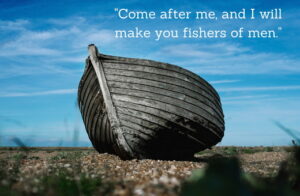 First Reading Romans 10:9-18
First Reading Romans 10:9-18
If your lips confess that Jesus is Lord and if you believe in your heart that God raised him from the dead, then you will be saved. By believing from the heart you are made righteous; by confessing with your lips you are saved. When scripture says: those who believe in him will have no cause for shame, it makes no distinction between Jew and Greek: all belong to the same Lord who is rich enough, however many ask his help, for everyone who calls on the name of the Lord will be saved.
But they will not ask his help unless they believe in him, and they will not believe in him unless they have heard of him, and they will not hear of him unless they get a preacher, and they will never have a preacher unless one is sent, but as scripture says: The footsteps of those who bring good news are a welcome sound. Not everyone, of course, listens to the Good News. As Isaiah says: Lord, how many believed what we proclaimed? So faith comes from what is preached, and what is preached comes from the word of Christ. Let me put the question: is it possible that they did not hear? Indeed they did; in the words of the psalm, their voice has gone out through all the earth, and their message to the ends of the world.
Gospel Matthew 4:18-22
As Jesus was walking by the Sea of Galilee, he saw two brothers, Simon, who was called Peter, and his brother Andrew; they were making a cast in the lake with their net, for they were fishermen. And he said to them, ‘Follow me and I will make you fishers of men.’ And they left their nets at once and followed him. Going on from there he saw another pair of brothers, James son of Zebedee and his brother John; they were in their boat with their father Zebedee, mending their nets, and he called them. At once, leaving the boat and their father, they followed him.
29/11/20 First Sunday of Advent
 First Reading Book of Isaiah 63, 16b-17.19b.64, 2b-7
First Reading Book of Isaiah 63, 16b-17.19b.64, 2b-7
You, LORD, are our father, our redeemer you are named forever.
Why do you let us wander, O LORD, from your ways, and harden our hearts so that we fear you not? Return for the sake of your servants, the tribes of your heritage.
Too long have we been like those you do not rule, who do not bear your name. Oh, that you would rend the heavens and come down, with the mountains quaking before you, While you wrought awesome deeds we could not hope for, such as they had not heard of from of old. No ear has ever heard, no eye ever seen, any God but you doing such deeds for those who wait for him.
Would that you might meet us doing right, that we were mindful of you in our ways! Behold, you are angry, and we are sinful; all of us have become like unclean men, all our good deeds are like polluted rags; We have all withered like leaves, and our guilt carries us away like the wind.
There is none who calls upon your name, who rouses himself to cling to you; For you have hidden your face from us and have delivered us up to our guilt.
Yet, O LORD, you are our father; we are the clay and you the potter: we are all the work of your hands.
Second Reading First Letter to the Corinthians 1, 3-9
Grace to you and peace from God our Father and the Lord Jesus Christ.
I give thanks to my God always on your account for the grace of God bestowed on you in Christ Jesus, that in him you were enriched in every way, with all discourse and all knowledge, as the testimony to Christ was confirmed among you, so that you are not lacking in any spiritual gift as you wait for the revelation of our Lord Jesus Christ.
He will keep you firm to the end, irreproachable on the day of our Lord Jesus (Christ).
God is faithful, and by him you were called to fellowship with his Son, Jesus Christ our Lord.
Gospel Mark 13, 33-37
Be watchful! Be alert! You do not know when the time will come.
It is like a man traveling abroad. He leaves home and places his servants in charge, each with his work, and orders the gatekeeper to be on the watch.
Watch, therefore; you do not know when the lord of the house is coming, whether in the evening, or at midnight, or at cockcrow, or in the morning.
May he not come suddenly and find you sleeping.
What I say to you, I say to all: ‘Watch!'”
28/11/20 Saturday of week 34 in Ordinary Time
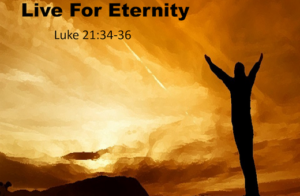 First Reading Book of Revelation 22, 1-7
First Reading Book of Revelation 22, 1-7
John said: An angel showed me the river of life-giving water, sparkling like crystal, flowing from the throne of God and of the Lamb down the middle of its street. On either side of the river grew the tree of life that produces fruit twelve times a year, once each month; the leaves of the trees serve as medicine for the nations.
Nothing accursed will be found there anymore. The throne of God and of the Lamb will be in it, and his servants will worship him.
They will look upon his face, and his name will be on their foreheads.
Night will be no more, nor will they need light from lamp or sun, for the Lord God shall give them light, and they shall reign forever and ever.
And he said to me, “These words are trustworthy and true, and the Lord, the God of prophetic spirits, sent his angel to show his servants what must happen soon.”
“Behold, I am coming soon.” Blessed is the one who keeps the prophetic message of this book.
Gospel Luke 21, 34-36
Jesus said to his disciples: “Beware that your hearts do not become drowsy from carousing and drunkenness and the anxieties of daily life, and that day catch you by surprise like a trap. For that day will assault everyone who lives on the face of the earth.
Be vigilant at all times and pray that you have the strength to escape the tribulations that are imminent and to stand before the Son of Man.”
27/11/20 Friday of the Thirty-fourth week in Ordinary Time
 First Reading Book of Revelation 20, 1-4.11-15.21,1-2.
First Reading Book of Revelation 20, 1-4.11-15.21,1-2.
I, John, saw an angel come down from heaven, holding in his hand the key to the abyss and a heavy chain.
He seized the dragon, the ancient serpent, which is the Devil or Satan, and tied it up for a thousand years
and threw it into the abyss, which he locked over it and sealed, so that it could no longer lead the nations astray until the thousand years are completed. After this, it is to be released for a short time.
Then I saw thrones; those who sat on them were entrusted with judgment. I also saw the souls of those who had been beheaded for their witness to Jesus and for the word of God, and who had not worshiped the beast or its image nor had accepted its mark on their foreheads or hands. They came to life and they reigned with Christ for a thousand years.
Next I saw a large white throne and the one who was sitting on it. The earth and the sky fled from his presence and there was no place for them.
I saw the dead, the great and the lowly, standing before the throne, and scrolls were opened. Then another scroll was opened, the book of life. The dead were judged according to their deeds, by what was written in the scrolls.
The sea gave up its dead; then Death and Hades gave up their dead. All the dead were judged according to their deeds.
Then Death and Hades were thrown into the pool of fire. (This pool of fire is the second death. )
Anyone whose name was not found written in the book of life was thrown into the pool of fire.
Then I saw a new heaven and a new earth. The former heaven and the former earth had passed away, and the sea was no more.
I also saw the holy city, a new Jerusalem, coming down out of heaven from God, prepared as a bride adorned for her husband.
Gospel Luke 21, 29-33
Jesus told his disciples a parable. “Consider the fig tree and all the other trees.
When their buds burst open, you see for yourselves and know that summer is now near; in the same way, when you see these things happening, know that the kingdom of God is near.
Amen, I say to you, this generation will not pass away until all these things have taken place.
Heaven and earth will pass away, but my words will not pass away.”
26/11/20 Thursday of week 34 in Ordinary Time
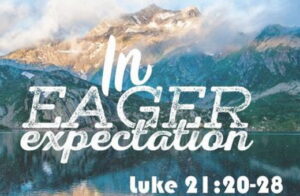 First Reading Book of Revelation 18, 1-2.21-23.19, 1-3.9a
First Reading Book of Revelation 18, 1-2.21-23.19, 1-3.9a
I, John, saw another angel coming down from heaven, having great authority, and the earth became illumined by his splendor.
He cried out in a mighty voice: “Fallen, fallen is Babylon the great. She has become a haunt for demons. She is a cage for every unclean spirit, a cage for every unclean bird, (a cage for every unclean) and disgusting (beast).
A mighty angel picked up a stone like a huge millstone and threw it into the sea and said: “With such force will Babylon the great city be thrown down, and will never be found again.
No melodies of harpists and musicians, flutists and trumpeters, will ever be heard in you again. No craftsmen in any trade will ever be found in you again. No sound of the millstone will ever be heard in you again.
No light from a lamp will ever be seen in you again. No voices of bride and groom will ever be heard in you again. Because your merchants were the great ones of the world, all nations were led astray by your magic potion.
After this I heard what sounded like the loud voice of a great multitude in heaven, saying: “Alleluia! Salvation, glory, and might belong to our God, for true and just are his judgments. He has condemned the great harlot who corrupted the earth with her harlotry. He has avenged on her the blood of his servants.”
They said a second time: “Alleluia! Smoke will rise from her forever and ever.”
Then the angel said to me, “Write this: Blessed are those who have been called to the wedding feast of the Lamb.”
Gospel Luke 21, 20-28
Jesus said to his disciples: “When you see Jerusalem surrounded by armies, know that its desolation is at hand.
Then those in Judea must flee to the mountains. Let those within the city escape from it, and let those in the countryside not enter the city,
for these days are the time of punishment when all the scriptures are fulfilled.
Woe to pregnant women and nursing mothers in those days, for a terrible calamity will come upon the earth and a wrathful judgment upon this people.
They will fall by the edge of the sword and be taken as captives to all the Gentiles; and Jerusalem will be trampled underfoot by the Gentiles until the times of the Gentiles are fulfilled.
There will be signs in the sun, the moon, and the stars, and on earth nations will be in dismay, perplexed by the roaring of the sea and the waves.
People will die of fright in anticipation of what is coming upon the world, for the powers of the heavens will be shaken.
And then they will see the Son of Man coming in a cloud with power and great glory.
But when these signs begin to happen, stand erect and raise your heads because your redemption is at hand.”
25/11/20 Wednesday of week 34 in Ordinary Time
 First Reading Book of Revelation 15, 1-4
First Reading Book of Revelation 15, 1-4
I, John, saw in heaven another sign, great and awe-inspiring: seven angels with the seven last plagues, for through them God’s fury is accomplished.
Then I saw something like a sea of glass mingled with fire. On the sea of glass were standing those who had won the victory over the beast and its image and the number that signified its name. They were holding God’s harps, and they sang the song of Moses, the servant of God, and the song of the Lamb: “Great and wonderful are your works, Lord God almighty. Just and true are your ways, O king of the nations.
Who will not fear you, Lord, or glorify your name? For you alone are holy. All the nations will come and worship before you, for your righteous acts have been revealed.”
Gospel Luke 21, 12-19
Jesus said to the crowd: “They will seize and persecute you, they will hand you over to the synagogues and to prisons, and they will have you led before kings and governors because of my name.
It will lead to your giving testimony.
Remember, you are not to prepare your defense beforehand, for I myself shall give you a wisdom in speaking that all your adversaries will be powerless to resist or refute.
You will even be handed over by parents, brothers, relatives, and friends, and they will put some of you to death.
You will be hated by all because of my name, but not a hair on your head will be destroyed.
By your perseverance you will secure your lives.”
23/11/20 Monday of week 34 in Ordinary Time
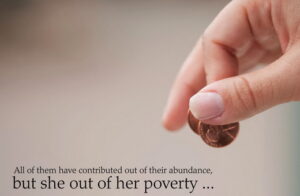 First Reading Book of Revelation 14, 1-3.4b-5
First Reading Book of Revelation 14, 1-3.4b-5
I, John, looked and there was the Lamb standing on Mount Zion, and with him a hundred and forty-four thousand who had his name and his Father’s name written on their foreheads.
I heard a sound from heaven like the sound of rushing water or a loud peal of thunder. The sound I heard was like that of harpists playing their harps.
They were singing (what seemed to be) a new hymn before the throne, before the four living creatures and the elders. No one could learn this hymn except the hundred and forty-four thousand who had been ransomed from the earth.
These are they who were not defiled with women; they are virgins and these are the ones who follow the Lamb wherever he goes. They have been ransomed as the firstfruits of the human race for God and the Lamb.
On their lips no deceit has been found; they are unblemished.
Gospel Luke 21, 1-4
When Jesus looked up he saw some wealthy people putting their offerings into the treasury and he noticed a poor widow putting in two small coins.
He said, “I tell you truly, this poor widow put in more than all the rest; for those others have all made offerings from their surplus wealth, but she, from her poverty, has offered her whole livelihood.”
22/11/20 Sunday Christ the King
 First Reading Book of Ezekiel 34, 11-12.15-17
First Reading Book of Ezekiel 34, 11-12.15-17
Thus says the Lord GOD: I myself will look after and tend my sheep.
As a shepherd tends his flock when he finds himself among his scattered sheep, so will I tend my sheep. I will rescue them from every place where they were scattered when it was cloudy and dark.
I myself will pasture my sheep; I myself will give them rest, says the Lord GOD.
The lost I will seek out, the strayed I will bring back, the injured I will bind up, the sick I will heal but the sleek and the strong I will destroy, shepherding them rightly.
As for you, my sheep, says the Lord GOD, I will judge between one sheep and another, between rams and goats.
Second Reading First Letter to the Corinthians 15, 20-26.28
Brothers and sisters: Christ has been raised from the dead, the firstfruits of those who have fallen asleep.
For since death came through a human being, the resurrection of the dead came also through a human being.
For just as in Adam all die, so too in Christ shall all be brought to life, but each one in proper order: Christ the firstfruits; then, at his coming, those who belong to Christ;
then comes the end, when he hands over the kingdom to his God and Father, when he has destroyed every sovereignty and every authority and power.
For he must reign until he has put all his enemies under his feet.
The last enemy to be destroyed is death,
When everything is subjected to him, then the Son himself will (also) be subjected to the one who subjected everything to him, so that God may be all in all.
Gospel Matthew 25, 31-46
Jesus said to his disciples: “When the Son of Man comes in his glory, and all the angels with him, he will sit upon his glorious throne, and all the nations will be assembled before him. And he will separate them one from another, as a shepherd separates the sheep from the goats.
He will place the sheep on his right and the goats on his left.
Then the king will say to those on his right, ‘Come, you who are blessed by my Father. Inherit the kingdom prepared for you from the foundation of the world.
For I was hungry and you gave me food, I was thirsty and you gave me drink, a stranger and you welcomed me, naked and you clothed me, ill and you cared for me, in prison and you visited me.’
Then the righteous will answer him and say, ‘Lord, when did we see you hungry and feed you, or thirsty and give you drink?
When did we see you a stranger and welcome you, or naked and clothe you?
When did we see you ill or in prison, and visit you?’
And the king will say to them in reply, ‘Amen, I say to you, whatever you did for one of these least brothers of mine, you did for me.’
Then he will say to those on his left, ‘Depart from me, you accursed, into the eternal fire prepared for the devil and his angels.
For I was hungry and you gave me no food, I was thirsty and you gave me no drink,
a stranger and you gave me no welcome, naked and you gave me no clothing, ill and in prison, and you did not care for me.’
Then they will answer and say, ‘Lord, when did we see you hungry or thirsty or a stranger or naked or ill or in prison, and not minister to your needs?’
He will answer them, ‘Amen, I say to you, what you did not do for one of these least ones, you did not do for me.’
And these will go off to eternal punishment, but the righteous to eternal life.”
21/11/20
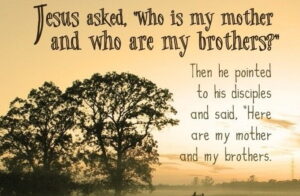 First Reading Zechariah 2:14-17
First Reading Zechariah 2:14-17
Sing, rejoice, daughter of Zion; for I am coming to dwell in the middle of you – it is Yahweh who speaks.
2:15 Many nations will join Yahweh, on that day; they will become his people. (But he will remain among you, and you will know that Yahweh Sabaoth has sent me to you.)
2:16 But Yahweh will hold Judah as his portion in the Holy Land, and again make Jerusalem his very own.
2:17 Let all mankind be silent before Yahweh! For he is awaking and is coming from his holy dwelling.
Gospel Matthew 12:46-50
While Jesus was still speaking to the crowds, his mother and his brothers were standing outside, wanting to speak to him. Someone told him, “Look, your mother and your brothers are standing outside, wanting to speak to you.” But to the one who had told him this, Jesus replied, “Who is my mother, and who are my brothers?” And pointing to his disciples, he said, “Here are my mother and my brothers! For whoever does the will of my Father in heaven is my brother and sister and mother.”
20/11/20 Friday of week 33 in Ordinary Time
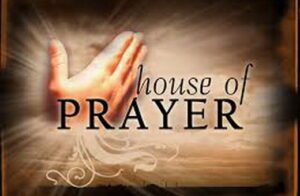 First Reading Book of Revelation 10, 8-11
First Reading Book of Revelation 10, 8-11
I John heard a voice from heaven speak to me saying, “Go, take the scroll that lies open in the hand of the angel who is standing on the sea and on the land.”
So I went up to the angel and told him to give me the small scroll. He said to me, “Take and swallow it. It will turn your stomach sour, but in your mouth it will taste as sweet as honey.”
I took the small scroll from the angel’s hand and swallowed it. In my mouth it was like sweet honey, but when I had eaten it, my stomach turned sour.
Then someone said to me, “You must prophesy again about many peoples, nations, tongues, and kings.”
Gospel Luke 19, 45-48
Jesus entered the temple area and proceeded to drive out those who were selling things, saying to them, “It is written, ‘My house shall be a house of prayer, but you have made it a den of thieves.'”
And every day he was teaching in the temple area. The chief priests, the scribes, and the leaders of the people, meanwhile, were seeking to put him to death, but they could find no way to accomplish their purpose because all the people were hanging on his words.
19/11/20 Thursday of week 33 in Ordinary Time
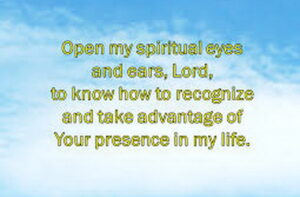 First Reading Book of Revelation 5, 1-10
First Reading Book of Revelation 5, 1-10
I John saw a scroll in the right hand of the one who sat on the throne. It had writing on both sides and was sealed with seven seals.
Then I saw a mighty angel who proclaimed in a loud voice, “Who is worthy to open the scroll and break its seals?”
But no one in heaven or on earth or under the earth was able to open the scroll or to examine it.
I shed many tears because no one was found worthy to open the scroll or to examine it.
One of the elders said to me, “Do not weep. The lion of the tribe of Judah, the root of David, has triumphed, enabling him to open the scroll with its seven seals.”
Then I saw standing in the midst of the throne and the four living creatures and the elders, a Lamb that seemed to have been slain. He had seven horns and seven eyes; these are the (seven) spirits of God sent out into the whole world.
He came and received the scroll from the right hand of the one who sat on the throne.
When he took it, the four living creatures and the twenty-four elders fell down before the Lamb. Each of the elders held a harp and gold bowls filled with incense, which are the prayers of the holy ones.
They sang a new hymn: “Worthy are you to receive the scroll and to break open its seals, for you were slain and with your blood you purchased for God those from every tribe and tongue, people and nation.
You made them a kingdom and priests for our God, and they will reign on earth.”
Gospel Luke 19, 41-44
As Jesus drew near Jerusalem, he saw the city and wept over it,
saying, “If this day you only knew what makes for peace–but now it is hidden from your eyes.
For the days are coming upon you when your enemies will raise a palisade against you; they will encircle you and hem you in on all sides.
They will smash you to the ground and your children within you, and they will not leave one stone upon another within you because you did not recognize the time of your visitation.”
18/11/20 Wednesday of week 33 in Ordinary Time
 First Reading Book of Revelation 4, 1-11
First Reading Book of Revelation 4, 1-11
I John, had a vision of an open door to heaven, and I heard the trumpet like voice that had spoken to me before, saying, “Come up here and I will show you what must happen afterwards.”
At once I was caught up in spirit. A throne was there in heaven, and on the throne sat
one whose appearance sparkled like jasper and carnelian. Around the throne was a halo as brilliant as an emerald.
Surrounding the throne I saw twenty-four other thrones on which twenty-four elders sat, dressed in white garments and with gold crowns on their heads.
From the throne came flashes of lightning, rumblings, and peals of thunder. Seven flaming torches burned in front of the throne, which are the seven spirits of God.
In front of the throne was something that resembled a sea of glass like crystal. In the center and around the throne, there were four living creatures covered with eyes in front and in back.
The first creature resembled a lion, the second was like a calf, the third had a face like that of a human being, and the fourth looked like an eagle in flight.
The four living creatures, each of them with six wings, were covered with eyes inside and out. Day and night they do not stop exclaiming: “Holy, holy, holy is the Lord God almighty, who was, and who is, and who is to come.”
Whenever the living creatures give glory and honor and thanks to the one who sits on the throne, who lives forever and ever,
the twenty-four elders fall down before the one who sits on the throne and worship him, who lives forever and ever. They throw down their crowns before the throne, exclaiming:
“Worthy are you, Lord our God, to receive glory and honor and power, for you created all things; because of your will they came to be and were created.”
Gospel Luke 19, 11-28
While people were listening to Jesus speak, he proceeded to tell a parable because he was near Jerusalem and they thought that the Kingdom of God would appear there immediately.
So he said, “A nobleman went off to a distant country to obtain the kingship for himself and then to return.
He called ten of his servants and gave them ten gold coins and told them, ‘Engage in trade with these until I return.’
His fellow citizens, however, despised him and sent a delegation after him to announce, ‘We do not want this man to be our king.’
But when he returned after obtaining the kingship, he had the servants called, to whom he had given the money, to learn what they had gained by trading.
The first came forward and said, ‘Sir, your gold coin has earned ten additional ones.’
He replied, ‘Well done, good servant! You have been faithful in this very small matter; take charge of ten cities.’
Then the second came and reported, ‘Your gold coin, sir, has earned five more.’
And to this servant too he said, ‘You, take charge of five cities.’
Then the other servant came and said, ‘Sir, here is your gold coin; I kept it stored away in a handkerchief, for I was afraid of you, because you are a demanding person; you take up what you did not lay down and you harvest what you did not plant.’
He said to him, ‘With your own words I shall condemn you, you wicked servant. You knew I was a demanding person, taking up what I did not lay down and harvesting what I did not plant; why did you not put my money in a bank? Then on my return I would have collected it with interest.’
And to those standing by he said, ‘Take the gold coin from him and give it to the servant who has ten.’
But they said to him, ‘Sir, he has ten gold coins.’
‘I tell you, to everyone who has, more will be given, but from the one who has not, even what he has will be taken away.
Now as for those enemies of mine who did not want me as their king, bring them here and slay them before me.'”
After he had said this, he proceeded on his journey up to Jerusalem.
17/11/20 Tuesday of week 33 in Ordinary Time
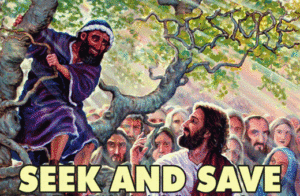 First Reading Book of Revelation 3, 1-6.14-22
First Reading Book of Revelation 3, 1-6.14-22
I, John, heard the Lord saying to me: “To the angel of the church in Sardis, write this: ‘The one who has the seven spirits of God and the seven stars says this: “I know your works, that you have the reputation of being alive, but you are dead.
Be watchful and strengthen what is left, which is going to die, for I have not found your works complete in the sight of my God.
Remember then how you accepted and heard; keep it, and repent. If you are not watchful, I will come like a thief, and you will never know at what hour I will come upon you.
However, you have a few people in Sardis who have not soiled their garments; they will walk with me dressed in white, because they are worthy.” “The victor will thus be dressed in white, and I will never erase his name from the book of life but will acknowledge his name in the presence of my Father and of his angels.
Whoever has ears ought to hear what the Spirit says to the churches.”
“To the angel of the church in Laodicea, write this: ‘The Amen, the faithful and true witness, the source of God’s creation, says this:
“I know your works; I know that you are neither cold nor hot. I wish you were either cold or hot.
So, because you are lukewarm, neither hot nor cold, I will spit you out of my mouth.
For you say, ‘I am rich and affluent and have no need of anything’, and yet do not realize that you are wretched, pitiable, poor, blind, and naked.
I advise you to buy from me gold refined by fire so that you may be rich, and white garments to put on so that your shameful nakedness may not be exposed, and buy ointment to smear on your eyes so that you may see.
Those whom I love, I reprove and chastise. Be earnest, therefore, and repent.
“Behold, I stand at the door and knock. If anyone hears my voice and opens the door, (then) I will enter his house and dine with him, and he with me.
I will give the victor the right to sit with me on my throne, as I myself first won the victory and sit with my Father on his throne.
Whoever has ears ought to hear what the Spirit says to the churches.”
Gospel Luke 19, 1-10
At that time, Jesus came to Jericho and intended to pass through the town.
Now a man there named Zacchaeus, who was a chief tax collector and also a wealthy man, was seeking to see who Jesus was; but he could not see him because of the crowd, for he was short in stature.
So he ran ahead and climbed a sycamore tree in order to see Jesus, who was about to pass that way.
When he reached the place, Jesus looked up and said to him, “Zacchaeus, come down quickly, for today I must stay at your house.”
And he came down quickly and received him with joy.
When they all saw this, they began to grumble, saying, “He has gone to stay at the house of a sinner.”
But Zacchaeus stood there and said to the Lord, “Behold, half of my possessions, Lord, I shall give to the poor, and if I have extorted anything from anyone I shall repay it four times over.”
And Jesus said to him, “Today salvation has come to this house because this man too is a descendant of Abraham.
For the Son of Man has come to seek and to save what was lost.”
16/11/20 Monday of week 33 in Ordinary Time
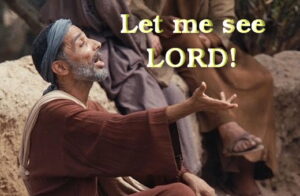 First Reading Book of Revelation 1, 1-4.2,1-5a
First Reading Book of Revelation 1, 1-4.2,1-5a
The revelation of Jesus Christ, which God gave to him, to show his servants what must happen soon. He made it known by sending his angel to his servant John,
who gives witness to the word of God and to the testimony of Jesus Christ by reporting what he saw.
Blessed is the one who reads aloud and blessed are those who listen to this prophetic message and heed what is written in it, for the appointed time is near.
John, to the seven churches in Asia: grace to you and peace from him who is and who was and who is to come, and from the seven spirits before his throne, “To the angel of the church in Ephesus, write this: ‘The one who holds the seven stars in his right hand and walks in the midst of the seven gold lampstands says this:
“I know your works, your labor, and your endurance, and that you cannot tolerate the wicked; you have tested those who call themselves apostles but are not, and discovered that they are impostors.
Moreover, you have endurance and have suffered for my name, and you have not grown weary.
Yet I hold this against you: you have lost the love you had at first.
Realize how far you have fallen. Repent, and do the works you did at first. Otherwise, I will come to you and remove your lampstand from its place, unless you repent.”
Gospel Luke 18, 35-43
As Jesus approached Jericho a blind man was sitting by the roadside begging,
and hearing a crowd going by, he inquired what was happening.
They told him, “Jesus of Nazareth is passing by.”
He shouted, “Jesus, Son of David, have pity on me!”
The people walking in front rebuked him, telling him to be silent, but he kept calling out all the more, “Son of David, have pity on me!”
Then Jesus stopped and ordered that he be brought to him; and when he came near, Jesus asked him, What do you want me to do for you? He replied, “Lord, please let me see.”
Jesus told him, “Have sight; your faith has saved you.”
He immediately received his sight and followed him, giving glory to God. When they saw this, all the people gave praise to God.
15/11/20 Thirty-third Sunday in Ordinary Time
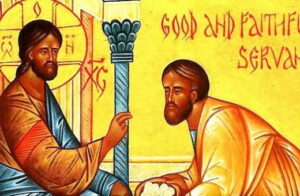 First Reading Book of Proverbs 31, 10-13.19-20.30-31
First Reading Book of Proverbs 31, 10-13.19-20.30-31
When one finds a worthy wife, her value is far beyond pearls.
Her husband, entrusting his heart to her, has an unfailing prize.
She brings him good, and not evil, all the days of her life.
She obtains wool and flax and makes cloth with skillful hands.
She puts her hands to the distaff, and her fingers ply the spindle.
She reaches out her hands to the poor, and extends her arms to the needy.
Charm is deceptive and beauty fleeting; the woman who fears the LORD is to be praised.
Give her a reward of her labors, and let her works praise her at the city gates
Second Reading First Letter to the Thessalonians 5, 1-6
Concerning times and seasons, brothers and sisters, you have no need for anything to be written to you.
For you yourselves know very well that the day of the Lord will come like a thief at night.
When people are saying, “Peace and security,” then sudden disaster comes upon them, like labor pains upon a pregnant woman,and they will not escape.
But you, brothers, are not in darkness, for that day to overtake you like a thief.
For all of you are children of the light and children of the day. We are not of the night or of darkness.
Therefore, let us not sleep as the rest do, but let us stay alert and sober.
Gospel Matthew 25, 14-30
Jesus told his disciples this parable: “A man going on a journey called in his servants and entrusted his possessions to them.
To one he gave five talents; to another, two; to a third, one– to each according to his ability. Then he went away. Immediately
the one who received five talents went and traded with them, and made another five.
Likewise, the one who received two made another two.
But the man who received one went off and dug a hole in the ground and buried his master’s money.
After a long time the master of those servants came back and settled accounts with them.
The one who had received five talents came forward bringing the additional five. He said, ‘Master, you gave me five talents. See, I have made five more.’
His master said to him, ‘Well done, my good and faithful servant. Since you were faithful in small matters, I will give you great responsibilities. Come, share your master’s joy.’
(Then) the one who had received two talents also came forward and said, ‘Master, you gave me two talents. See, I have made two more.’
His master said to him, ‘Well done, my good and faithful servant. Since you were faithful in small matters, I will give you great responsibilities. Come, share your master’s joy.’
Then the one who had received the one talent came forward and said, ‘Master, I knew you were a demanding person, harvesting where you did not plant and gathering where you did not scatter;
so out of fear I went off and buried your talent in the ground. Here it is back.’
His master said to him in reply, ‘You wicked, lazy servant! So you knew that I harvest where I did not plant and gather where I did not scatter?
Should you not then have put my money in the bank so that I could have got it back with interest on my return?
Now then! Take the talent from him and give it to the one with ten.
For to everyone who has, more will be given and he will grow rich; but from the one who has not, even what he has will be taken away.
And throw this useless servant into the darkness outside, where there will be wailing and grinding of teeth.’”
14/11/20 Saturday of the week 32 in Ordinary Time
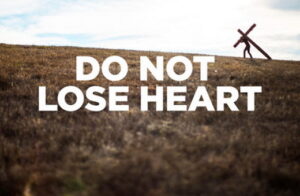 First Reading Third Letter of John 1, 5-8.
First Reading Third Letter of John 1, 5-8.
Beloved, you are faithful in all you do for the brothers, especially for strangers; they have testified to your love before the church. Please help them in a way worthy of God to continue their journey.
For they have set out for the sake of the Name and are accepting nothing from the pagans.
Therefore, we ought to support such persons, so that we may be co-workers in the truth.
Gospel Luke 18, 1-8
Jesus told his disciples a parable about the necessity for them to pray always without becoming weary. He said, “There was a judge in a certain town who neither feared God nor respected any human being.
And a widow in that town used to come to him and say, ‘Render a just decision for me against my adversary.’
For a long time the judge was unwilling, but eventually he thought, ‘While it is true that I neither fear God nor respect any human being, because this widow keeps bothering me I shall deliver a just decision for her lest she finally come and strike me.'”
The Lord said, “Pay attention to what the dishonest judge says.
Will not God then secure the rights of his chosen ones who call out to him day and night? Will he be slow to answer them?
I tell you, he will see to it that justice is done for them speedily. But when the Son of Man comes, will he find faith on earth?”
13/11/20 Friday of week 32 in Ordinary Time
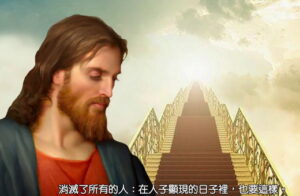 First Reading Second Letter of John 1, 4-9
First Reading Second Letter of John 1, 4-9
(Chosen Lady) I rejoiced greatly to find some of your children walking in the truth just as we were commanded by the Father.
But now, Lady, I ask you, not as though I were writing a new commandment but the one we have had from the beginning: let us love one another.
For this is love, that we walk according to his commandments; this is the commandment, as you heard from the beginning, in which you should walk.
Many deceivers have gone out into the world, those who do not acknowledge Jesus Christ as coming in the flesh; such is the deceitful one and the antichrist.
Look to yourselves that you do not lose what we worked for but may receive a full recompense.
Anyone who is so “progressive” as not to remain in the teaching of the Christ does not have God; whoever remains in the teaching has the Father and the Son.
Gospel Luke 17, 26-37.
Jesus said to his disciples: “As it was in the days of Noah, so it will be in the days of the Son of Man; they were eating and drinking, marrying and giving in marriage up to the day that Noah entered the ark, and the flood came and destroyed them all.
Similarly, as it was in the days of Lot: they were eating, drinking, buying, selling, planting, building; on the day when Lot left Sodom, fire and brimstone rained from the sky to destroy them all.
So it will be on the day the Son of Man is revealed.
On that day, a person who is on the housetop and whose belongings are in the house must not go down to get them, and likewise a person in the field must not return to what was left behind.
Remember the wife of Lot.
Whoever seeks to preserve his life will lose it, but whoever loses it will save it.
I tell you, on that night there will be two people in one bed; one will be taken, the other left.
And there will be two women grinding meal together; one will be taken, the other left.”
12/11/20 Thursday of week 32 in Ordinary Time
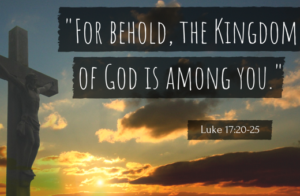 First Reading Letter to Philemon 1, 7-20
First Reading Letter to Philemon 1, 7-20
Beloved, I have experienced much joy and encouragement from your love, because the hearts of the holy ones have been refreshed by you, brother.
Therefore, although I have the full right in Christ to order you to do what is proper,
I rather urge you out of love, being as I am, Paul, an old man, and now also a prisoner for Christ Jesus.
I urge you on behalf of my child Onesimus, whose father I have become in my imprisonment, who was once useless to you but is now useful to (both) you and me.
I am sending him, that is, my own heart, back to you.
I should have liked to retain him for myself, so that he might serve me on your behalf in my imprisonment for the gospel, but I did not want to do anything without your consent, so that the good you do might not be forced but voluntary.
Perhaps this is why he was away from you for a while, that you might have him back forever, no longer as a slave but more than a slave, a brother, beloved especially to me, but even more so to you, as a man and in the Lord.
So if you regard me as a partner, welcome him as you would me.
And if he has done you any injustice or owes you anything, charge it to me.
I, Paul, write this in my own hand: I will pay. May I not tell you that you owe me your very self.
Yes, brother, may I profit from you in the Lord. Refresh my heart in Christ.
Gospel Luke 17, 20-25.
Asked by the Pharisees when the Kingdom of God would come, Jesus said in reply, “The coming of the Kingdom of God cannot be observed,
and no one will announce, ‘Look, here it is,’ or, ‘There it is.’ For behold, the kingdom of God is among you.”
Then he said to his disciples, “The days will come when you will long to see one of the days of the Son of Man, but you will not see it.
There will be those who will say to you, ‘Look, there he is,’ (or) ‘Look, here he is.’ Do not go off, do not run in pursuit.
For just as lightning flashes and lights up the sky from one side to the other, so will the Son of Man be (in his day).
But first he must suffer greatly and be rejected by this generation.”
11/11/20 Wednesday of week 32 in Ordinary Time
 First Reading Letter to Titus 3, 1-7
First Reading Letter to Titus 3, 1-7
Beloved: Remind them to be under the control of magistrates and authorities, to be obedient, to be open to every good enterprise.
They are to slander no one, to be peaceable, considerate, exercising all graciousness toward everyone.
For we ourselves were once foolish, disobedient, deluded, slaves to various desires and pleasures, living in malice and envy, hateful ourselves and hating one another.
But when the kindness and generous love of God our savior appeared, not because of any righteous deeds we had done but because of his mercy, he saved us through the bath of rebirth and renewal by the holy Spirit, whom he richly poured out on us through Jesus Christ our savior, so that we might be justified by his grace and become heirs in hope of eternal life.
Gospel Luke 17, 11-19
As Jesus continued his journey to Jerusalem, he traveled through Samaria and Galilee.
As he was entering a village, ten lepers met him. They stood at a distance from him
and raised their voice, saying, “Jesus, Master! Have pity on us!”
And when he saw them, he said, “Go show yourselves to the priests.” As they were going they were cleansed.
And one of them, realizing he had been healed, returned, glorifying God in a loud voice;
and he fell at the feet of Jesus and thanked him. He was a Samaritan.
Jesus said in reply, “Ten were cleansed, were they not? Where are the other nine?
Has none but this foreigner returned to give thanks to God?”
Then he said to him, “Stand up and go; your faith has saved you.”
10/11/20 Tuesday of the week 32 in Ordinary Time
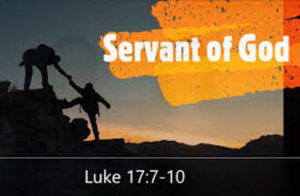 First Reading Letter to Titus 2, 1-8.11-14.
First Reading Letter to Titus 2, 1-8.11-14.
Beloved, you must say what is consistent with sound doctrine, namely, that older men should be temperate, dignified, self-controlled, sound in faith, love, and endurance.
Similarly, older women should be reverent in their behavior, not slanderers, not addicted to drink, teaching what is good, so that they may train younger women to love their husbands and children, to be self-controlled, chaste, good homemakers, under the control of their husbands, so that the word of God may not be discredited.
Urge the younger men, similarly, to control themselves, showing yourself as a model of good deeds in every respect, with integrity in your teaching, dignity, and sound speech that cannot be criticized, so that the opponent will be put to shame without anything bad to say about us.
For the grace of God has appeared, saving all and training us to reject godless ways and worldly desires and to live temperately, justly, and devoutly in this age, as we await the blessed hope, the appearance of the glory of the great God and of our savior Jesus Christ, who gave himself for us to deliver us from all lawlessness and to cleanse for himself a people as his own, eager to do what is good.
Gospel Luke 17, 7-10
Jesus said to the Apostles: “Who among you would say to your servant who has just come in from plowing or tending sheep in the field, ‘Come here immediately and take your place at table’?
Would he not rather say to him, ‘Prepare something for me to eat. Put on your apron and wait on me while I eat and drink. You may eat and drink when I am finished’?
Is he grateful to that servant because he did what was commanded?
So should it be with you. When you have done all you have been commanded, say, ‘We are unprofitable servants; we have done what we were obliged to do.'”
09/11/20 Dedication of the Basilica of St. John Lateran in Rome – Feast
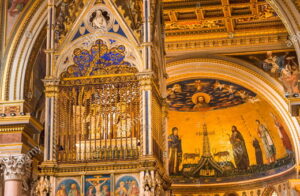 First Reading Ezekiel 47, 1-2.8-9.12.
First Reading Ezekiel 47, 1-2.8-9.12.
The angel brought me, Ezekiel, back to the entrance of the temple of the LORD, and I saw water flowing out from beneath the threshold of the temple toward the east, for the façade of the temple was toward the east; the water flowed down from the right side of the temple, south of the altar.
He led me outside by the north gate, and around to the outer gate facing the east, where I saw water trickling from the southern side.
He said to me, “This water flows into the eastern district down upon the Arabah, and empties into the sea, the salt waters, which it makes fresh.
Wherever the river flows, every sort of living creature that can multiply shall live, and there shall be abundant fish, for wherever this water comes the sea shall be made fresh.
Along both banks of the river, fruit trees of every kind shall grow; their leaves shall not fade, nor their fruit fail. Every month they shall bear fresh fruit, for they shall be watered by the flow from the sanctuary. Their fruit shall serve for food, and their leaves for medicine.”
Second Reading
First Letter to the Corinthians 3, 9c-11.16-17
Brothers and sisters; you are God’s building.
According to the grace of God given to me, like a wise master builder I laid a foundation, and another is building upon it. But each one must be careful how he builds upon it, for no one can lay a foundation other than the one that is there, namely, Jesus Christ.
Do you not know that you are the temple of God, and that the Spirit of God dwells in you?
If anyone destroys God’s temple, God will destroy that person; for the temple of God, which you are, is holy.
Gospel John 2, 13-22
Since the Passover of the Jews was near, Jesus went up to Jerusalem.
He found in the temple area those who sold oxen, sheep, and doves, as well as the money-changers seated there.
He made a whip out of cords and drove them all out of the temple area, with the sheep and oxen, and spilled the coins of the money-changers and overturned their tables, and to those who sold doves he said, “Take these out of here, and stop making my Father’s house a marketplace.”
His disciples recalled the words of scripture, “Zeal for your house will consume me.”
At this the Jews answered and said to him, “What sign can you show us for doing this?”
Jesus answered and said to them, “Destroy this temple and in three days I will raise it up.”
The Jews said, “This temple has been under construction for forty-six years, and you will raise it up in three days?”
But he was speaking about the temple of his body.
Therefore, when he was raised from the dead, his disciples remembered that he had said this, and they came to believe the scripture and the word Jesus had spoken.
08/11/20 Thirty-second Sunday in Ordinary Time
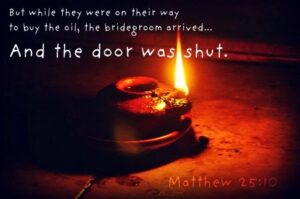 First Reading Book of Wisdom 6, 12-16
First Reading Book of Wisdom 6, 12-16
Resplendent and unfading is Wisdom, and she is readily perceived by those who love her, and found by those who seek her.
She hastens to make herself known in anticipation of men’s desire; he who watches for her at dawn shall not be disappointed, for he shall find her sitting by his gate.
For taking thought of her is the perfection of prudence, and he who for her sake keeps vigil shall quickly be free from care;
Because she makes her own rounds, seeking those worthy of her, and graciously appears to them in the ways, and meets them with all solicitude.
Second Reading First Letter to the Thessalonians 4, 13-18
We do not want you to be unaware, brothers and sisters, about those who have fallen asleep, so that you may not grieve like the rest, who have no hope.
For if we believe that Jesus died and rose, so too will God, through Jesus, bring with him those who have fallen asleep.
Indeed, we tell you this, on the word of the Lord, that we who are alive, who are left until the coming of the Lord, will surely not precede those who have fallen asleep.
For the Lord himself, with a word of command, with the voice of an archangel and with the trumpet of God, will come down from heaven, and the dead in Christ will rise first.
Then we who are alive, who are left, will be caught up together with them in the clouds to meet the Lord in the air. Thus we shall always be with the Lord.
Therefore, console one another with these words.
Gospel Matthew 25, 1-13
Jesus told his disciples this parable: “The kingdom of heaven will be like ten virgins who took their lamps and went out to meet the bridegroom.
Five of them were foolish and five were wise.
The foolish ones, when taking their lamps, brought no oil with them, but the wise brought flasks of oil with their lamps.
Since the bridegroom was long delayed, they all became drowsy and fell asleep.
At midnight, there was a cry, ‘Behold, the bridegroom! Come out to meet him!’
Then all those virgins got up and trimmed their lamps.
The foolish ones said to the wise, ‘Give us some of your oil, for our lamps are going out.’ But the wise ones replied, ‘No, for there may not be enough for us and you. Go instead to the merchants and buy some for yourselves.’
While they went off to buy it, the bridegroom came and those who were ready went into the wedding feast with him. Then the door was locked.
Afterwards the other virgins came and said, ‘Lord, Lord, open the door for us!’
But he said in reply, ‘Amen, I say to you, I do not know you.’
Therefore, stay awake, for you know neither the day nor the hour.”
Saturday of the week 31 in Ordinary Time
 First Reading Philippians 4, 10-19
First Reading Philippians 4, 10-19
Brothers and sisters: I rejoice greatly in the Lord that now at last you revived your concern for me. You were, of course, concerned about me but lacked an opportunity.
Not that I say this because of need, for I have learned, in whatever situation I find myself, to be self-sufficient.
I know indeed how to live in humble circumstances; I know also how to live with abundance. In every circumstance and in all things I have learned the secret of being well fed and of going hungry, of living in abundance and of being in need.
I have the strength for everything through him who empowers me.
Still, it was kind of you to share in my distress.
You Philippians indeed know that at the beginning of the gospel, when I left Macedonia, not a single church shared with me in an account of giving and receiving, except you alone.
For even when I was at Thessalonica you sent me something for my needs, not only once but more than once.
It is not that I am eager for the gift; rather, I am eager for the profit that accrues to your account.
I have received full payment and I abound. I am very well supplied because of what I received from you through Epaphroditus, “a fragrant aroma,” an acceptable sacrifice, pleasing to God.
My God will fully supply whatever you need, in accord with his glorious riches in Christ Jesus.
Gospel Luke 16, 9-15
Jesus said to his disciples: “I tell you, make friends for yourselves with dishonest wealth, so that when it fails, you will be welcomed into eternal dwellings.
The person who is trustworthy in very small matters is also trustworthy in great ones; and the person who is dishonest in very small matters is also dishonest in great ones.
If, therefore, you are not trustworthy with dishonest wealth, who will trust you with true wealth? If you are not trustworthy with what belongs to another, who will give you what is yours?
No servant can serve two masters. He will either hate one and love the other, or be devoted to one and despise the other. You cannot serve God and mammon.”
The Pharisees, who loved money, heard all these things and sneered at him.
And he said to them, “You justify yourselves in the sight of others, but God knows your hearts; for what is of human esteem is an abomination in the sight of God.”
06/11/20 Friday of week 31 in Ordinary Time
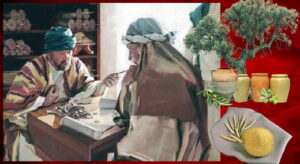 First Reading Philippians 3, 17-21.4,1
First Reading Philippians 3, 17-21.4,1
Join with others in being imitators of me, brothers and sisters, and observe those who thus conduct themselves according to the model you have in us.
For many, as I have often told you and now tell you even in tears, conduct themselves as enemies of the cross of Christ.
Their end is destruction. Their God is their stomach; their glory is in their “shame.” Their minds are occupied with earthly things.
But our citizenship is in heaven, and from it we also await a savior, the Lord Jesus Christ.
He will change our lowly body to conform with his glorified body by the power that enables him also to bring all things into subjection to himself.
Therefore, my brothers, whom I love and long for, my joy and crown, in this way stand firm in the Lord, beloved.
Gospel Luke 16, 1-8
Jesus said to his disciples, “A rich man had a steward who was reported to him for squandering his property.
He summoned him and said, ‘What is this I hear about you? Prepare a full account of your stewardship, because you can no longer be my steward.’
The steward said to himself, ‘What shall I do, now that my master is taking the position of steward away from me? I am not strong enough to dig and I am ashamed to beg.
I know what I shall do so that, when I am removed from the stewardship, they may welcome me into their homes.’
He called in his master’s debtors one by one. To the first he said, ‘How much do you owe my master?’
He replied, ‘One hundred measures of olive oil.’ He said to him, ‘Here is your promissory note. Sit down and quickly write one for fifty.’
Then to another he said, ‘And you, how much do you owe?’ He replied, ‘One hundred kors of wheat.’ He said to him, ‘Here is your promissory note; write one for eighty.’
And the master commended that dishonest steward for acting prudently. “For the children of this world are more prudent in dealing with their own generation than are the children of light.”
05/11/20 Thursday of the week 30 in Ordinary Time
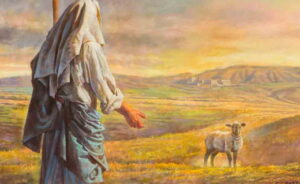 First Reading Philippians 3, 3-8a
First Reading Philippians 3, 3-8a
Brothers and sisters: We are the circumcision, we who worship through the Spirit of God, who boast in Christ Jesus and do not put our confidence in flesh,
although I myself have grounds for confidence even in the flesh.If anyone else thinks he can be confident in flesh, all the more can I.
Circumcised on the eighth day, of the race of Israel, of the tribe of Benjamin, a Hebrew of Hebrew parentage, in observance of the law a Pharisee,
in zeal I persecuted the church, in righteousness based on the law I was blameless.
(But) whatever gains I had, these I have come to consider a loss because of Christ.
More than that, I even consider everything as a loss because of the supreme good of knowing Christ Jesus my Lord.
Gospel Luke 15, 1-10
Tax collectors and sinners were all drawing near to listen to Jesus,
but the Pharisees and scribes began to complain, saying, “This man welcomes sinners and eats with them.”
So to them he addressed this parable.
“What man among you having a hundred sheep and losing one of them would not leave the ninety-nine in the desert and go after the lost one until he finds it?
And when he does find it, he sets it on his shoulders with great joy
and, upon his arrival home, he calls together his friends and neighbors and says to them, ‘Rejoice with me because I have found my lost sheep.’
I tell you, in just the same way there will be more joy in heaven over one sinner who repents than over ninety-nine righteous people who have no need of repentance.”
Or what woman having ten coins and losing one would not light a lamp and sweep the house, searching carefully until she finds it?
And when she does find it, she calls together her friends and neighbors and says to them, ‘Rejoice with me because I have found the coin that I lost.’
In just the same way, I tell you, there will be rejoicing among the angels of God over one sinner who repents.”
04/10/20 Wednesday of week 31 in Ordinary Time
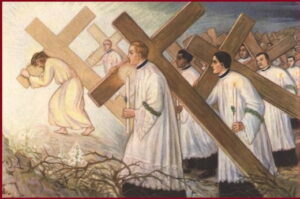 First Reading Philippians 2, 12-18
First Reading Philippians 2, 12-18
My beloved, obedient as you have always been, not only when I am present but all the more now when I am absent, work out your salvation with fear and trembling.
For God is the one who, for his good purpose, works in you both to desire and to work.
Do everything without grumbling or questioning, that you may be blameless and innocent, children of God without blemish in the midst of a crooked and perverse generation, among whom you shine like lights in the world, as you hold on to the word of life, so that my boast for the day of Christ may be that I did not run in vain or labor in vain.
But, even if I am poured out as a libation upon the sacrificial service of your faith, I rejoice and share my joy with all of you.
In the same way you also should rejoice and share your joy with me.
Gospel Luke 14, 25-33
Great crowds were traveling with Jesus, and he turned and addressed them,
“If any one comes to me without hating his father and mother, wife and children, brothers and sisters, and even his own life, he cannot be my disciple.
Whoever does not carry his own cross and come after me cannot be my disciple.
Which of you wishing to construct a tower does not first sit down and calculate the cost to see if there is enough for its completion?
Otherwise, after laying the foundation and finding himself unable to finish the work the onlookers should laugh at him and say, ‘This one began to build but did not have the resources to finish.’
Or what king marching into battle would not first sit down and decide whether with ten thousand troops he can successfully oppose another king advancing upon him with twenty thousand troops?
But if not, while he is still far away, he will send a delegation to ask for peace terms.
In the same way, anyone of you who does not renounce all his possessions cannot be my disciple.”
03/11/20 Tuesday of the week 31 in Ordinary Time
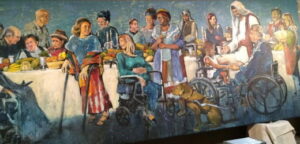 First Reading Philippians 2, 5-11
First Reading Philippians 2, 5-11
Brothers and sisters: Have among yourselves the same attitude that is also yours in Christ Jesus, Who, though he was in the form of God, did not regard equality with God something to be grasped.
Rather, he emptied himself, taking the form of a slave, coming in human likeness; and found human in appearance, he humbled himself, becoming obedient to death, even death on a cross.
Because of this, God greatly exalted him and bestowed on him the name that is above every name, that at the name of Jesus every knee should bend, of those in heaven and on earth and under the earth, and every tongue confess that Jesus Christ is Lord, to the glory of God the Father.
Gospel Luke 14, 15-24
One of those at table with Jesus said to him, “Blessed is the one who will dine in the kingdom of God.”
He replied to him, “A man gave a great dinner to which he invited many.
When the time for the dinner came, he dispatched his servant to say to those invited, ‘Come, everything is now ready.’
But one by one, they all began to excuse themselves. The first said to him, ‘I have purchased a field and must go to examine it; I ask you, consider me excused.’
And another said, ‘I have purchased five yoke of oxen and am on my way to evaluate them; I ask you, consider me excused.’
And another said, ‘I have just married a woman, and therefore I cannot come.’
The servant went and reported this to his master. Then the master of the house in a rage commanded his servant, ‘Go out quickly into the streets and alleys of the town and bring in here the poor and the crippled, the blind and the lame.’
The servant reported, ‘Sir, your orders have been carried out and still there is room.’
The master then ordered the servant, ‘Go out to the highways and hedgerows and make people come in that my home may be filled.
For, I tell you, none of those men who were invited will taste my dinner.'”
02/11/20 Commemoration of All the Faithful Departed (All Souls)
 First Reading Book of Wisdom 3,1-9
First Reading Book of Wisdom 3,1-9
The souls of the just are in the hand of God, and no torment shall touch them.
They seemed, in the view of the foolish, to be dead; and their passing away was thought an affliction and their going forth from us, utter destruction. But they are in peace.
For if before men, indeed, they be punished, yet is their hope full of immortality;
Chastised a little, they shall be greatly blessed, because God tried them and found them worthy of himself.
As gold in the furnace, he proved them, and as sacrificial offerings he took them to himself.
In the time of their visitation they shall shine, and shall dart about as sparks through stubble; They shall judge nations and rule over peoples, and the LORD shall be their King forever.
Those who trust in him shall understand truth, and the faithful shall abide with him in love: Because grace and mercy are with his holy ones, and his care is with the elect.
Second Reading Letter to the Romans 6,3-9.
Brothers and sisters: Are you unaware that we who were baptized into Christ Jesus were baptized into his death?
We were indeed buried with him through baptism into death, so that, just as Christ was raised from the dead by the glory of the Father, we too might live in newness of life.
For if we have grown into union with him through a death like his, we shall also be united with him in the resurrection.
We know that our old self was crucified with him, so that our sinful body might be done away with, that we might no longer be in slavery to sin.
For a dead person has been absolved from sin.
If, then, we have died with Christ, we believe that we shall also live with him.
We know that Christ, raised from the dead, dies no more; death no longer has power over him.
Gospel Matthew 25,31-46
Jesus said to his disciples: “When the Son of Man comes in his glory, and all the angels with him, he will sit upon his glorious throne, and all the nations will be assembled before him. And he will separate them one from another, as a shepherd separates the sheep from the goats.
He will place the sheep on his right and the goats on his left.
Then the king will say to those on his right, ‘Come, you who are blessed by my Father. Inherit the kingdom prepared for you from the foundation of the world.
For I was hungry and you gave me food, I was thirsty and you gave me drink, a stranger and you welcomed me, naked and you clothed me, ill and you cared for me, in prison and you visited me.’
Then the righteous will answer him and say, ‘Lord, when did we see you hungry and feed you, or thirsty and give you drink?
When did we see you a stranger and welcome you, or naked and clothe you?
When did we see you ill or in prison, and visit you?’
And the king will say to them in reply, ‘Amen, I say to you, whatever you did for one of these least brothers of mine, you did for me.’
Then he will say to those on his left, ‘Depart from me, you accursed, into the eternal fire prepared for the devil and his angels.
For I was hungry and you gave me no food, I was thirsty and you gave me no drink,
a stranger and you gave me no welcome, naked and you gave me no clothing, ill and in prison, and you did not care for me.’
Then they will answer and say, ‘Lord, when did we see you hungry or thirsty or a stranger or naked or ill or in prison, and not minister to your needs?’
He will answer them, ‘Amen, I say to you, what you did not do for one of these least ones, you did not do for me.’
And these will go off to eternal punishment, but the righteous to eternal life.”
01/11/20 All Saints” day
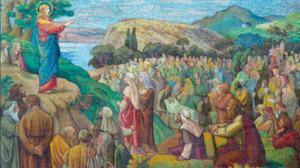 First Reading Book of Revelation 7,2-4.9-14
First Reading Book of Revelation 7,2-4.9-14
I, John, saw another angel come up from the East, holding the seal of the living God. He cried out in a loud voice to the four angels who were given power to damage the land and the sea,
“Do not damage the land or the sea or the trees until we put the seal on the foreheads of the servants of our God.”
I heard the number of those who had been marked with the seal, one hundred and forty-four thousand marked from every tribe of the Israelites:
After this I had a vision of a great multitude, which no one could count, from every nation, race, people, and tongue. They stood before the throne and before the Lamb, wearing white robes and holding palm branches in their hands.
They cried out in a loud voice: “Salvation comes from our God, who is seated on the throne, and from the Lamb.”
All the angels stood around the throne and around the elders and the four living creatures. They prostrated themselves before the throne, worshiped God,
and exclaimed: “Amen. Blessing and glory, wisdom and thanksgiving, honor, power, and might be to our God forever and ever. Amen.”
Then one of the elders spoke up and said to me, “Who are these wearing white robes, and where did they come from?”
I said to him, “My lord, you are the one who knows.” He said to me, “These are the ones who have survived the time of great distress; they have washed their robes and made them white in the blood of the Lamb.”
Second Reading First Letter of John 3,1-3
Beloved: See what love the Father has bestowed on us that we may be called the children of God. Yet so we are. The reason the world does not know us is that it did not know him.
Beloved, we are God’s children now; what we shall be has not yet been revealed. We do know that when it is revealed we shall be like him, for we shall see him as he is.
Everyone who has this hope based on him makes himself pure, as he is pure.
Gospel Matthew 5,1-12a
When Jesus saw the crowds, he went up the mountain, and after he had sat down, his disciples came to him.
He began to teach them, saying:
“Blessed are the poor in spirit, for theirs is the kingdom of heaven.
Blessed are they who mourn, for they will be comforted.
Blessed are the meek, for they will inherit the land.
Blessed are they who hunger and thirst for righteousness, for they will be satisfied.
Blessed are the merciful, for they will be shown mercy.
Blessed are the clean of heart, for they will see God.
Blessed are the peacemakers, for they will be called children of God.
Blessed are they who are persecuted for the sake of righteousness, for theirs is the kingdom of heaven.
Blessed are you when they insult you and persecute you and utter every kind of evil against you (falsely) because of me.
Rejoice and be glad, for your reward will be great in heaven. “
31/10/20 Saturday of the week 30 in Ordinary Time
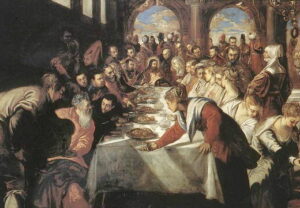 First Reading Philippians 1, 18b-26
First Reading Philippians 1, 18b-26
Brothers and sisters: As long as in every way, whether in pretense or in truth, Christ is being proclaimed? And in that I rejoice. Indeed I shall continue to rejoice,
for I know that this will result in deliverance for me through your prayers and support from the Spirit of Jesus Christ.
My eager expectation and hope is that I shall not be put to shame in any way, but that with all boldness, now as always, Christ will be magnified in my body, whether by life or by death.
For to me life is Christ, and death is gain.
If I go on living in the flesh, that means fruitful labor for me. And I do not know which I shall choose.
I am caught between the two. I long to depart this life and be with Christ, (for) that is far better.
Yet that I remain (in) the flesh is more necessary for your benefit.
And this I know with confidence, that I shall remain and continue in the service of all of you for your progress and joy in the faith,
so that your boasting in Christ Jesus may abound on account of me when I come to you again.
Gospel Luke 14,1.7-11
On a sabbath Jesus went to dine at the home of one of the leading Pharisees, and the people there were observing him carefully.
He told a parable to those who had been invited, noticing how they were choosing the places of honor at the table.
When you are invited by someone to a wedding banquet, do not recline at table in the place of honor. A more distinguished guest than you may have been invited by him, and the host who invited both of you may approach you and say, ‘Give your place to this man,’ and then you would proceed with embarrassment to take the lowest place.
Rather, when you are invited, go and take the lowest place so that when the host comes to you he may say, ‘My friend, move up to a higher position.’ Then you will enjoy the esteem of your companions at the table.
For everyone who exalts himself will be humbled, but the one who humbles himself will be exalted.”
30/10/20 Friday of the week 30 in Ordinary Time
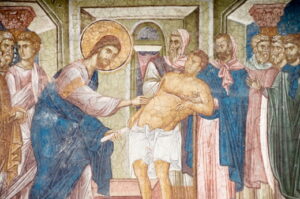 First Reading Philippians 1,1-11
First Reading Philippians 1,1-11
Paul and Timothy, slaves of Christ Jesus, to all the holy ones in Christ Jesus who are in Philippi, with the overseers and ministers:
grace to you and peace from God our Father and the Lord Jesus Christ.
I give thanks to my God at every remembrance of you, praying always with joy in my every prayer for all of you, because of your partnership for the gospel from the first day until now.
I am confident of this, that the one who began a good work in you will continue to complete it until the day of Christ Jesus.
It is right that I should think this way about all of you, because I hold you in my heart, you who are all partners with me in grace, both in my imprisonment and in the defense and confirmation of the gospel.
For God is my witness, how I long for all of you with the affection of Christ Jesus.
And this is my prayer: that your love may increase ever more and more in knowledge and every kind of perception, to discern what is of value, so that you may be pure and blameless for the day of Christ, filled with the fruit of righteousness that comes through Jesus Christ for the glory and praise of God.
Gospel Luke 14,1-6.
On a sabbath Jesus went to dine at the home of one of the leading Pharisees, and the people there were observing him carefully.
In front of him there was a man suffering from dropsy.
Jesus spoke to the scholars of the law and Pharisees in reply, asking, “Is it lawful to cure on the sabbath or not?”
But they kept silent; so he took the man and, after he had healed him, dismissed him.
Then he said to them, “Who among you, if your son or ox falls into a cistern, would not immediately pull him out on the sabbath day?”
But they were unable to answer his question.
29/10/20 Thursday of week 30 in Ordinary Time
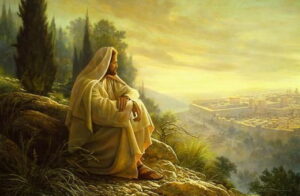 First Reading Ephesians 6,10-20
First Reading Ephesians 6,10-20
Put on the armor of God so that you may be able to stand firm against the tactics of the devil.
For our struggle is not with flesh and blood but with the principalities, with the powers, with the world rulers of this present darkness, with the evil spirits in the heavens.
Therefore, put on the armor of God, that you may be able to resist on the evil day and, having done everything, to hold your ground.
So stand fast with your loins girded in truth, clothed with righteousness as a breastplate,
and your feet shod in readiness for the gospel of peace.
In all circumstances, hold faith as a shield, to quench all (the) flaming arrows of the evil one.
And take the helmet of salvation and the sword of the Spirit, which is the word of God.
With all prayer and supplication, pray at every opportunity in the Spirit. To that end, be watchful with all perseverance and supplication for all the holy ones and also for me, that speech may be given me to open my mouth, to make known with boldness the mystery of the gospel for which I am an ambassador in chains, so that I may have the courage to speak as I must.
Gospel Luke 13,31-35
Some Pharisees came to Jesus and said, “Go away, leave this area because Herod wants to kill you.”
He replied, “Go and tell that fox, ‘Behold, I cast out demons and I perform healings today and tomorrow, and on the third day I accomplish my purpose.
Yet I must continue on my way today, tomorrow, and the following day, for it is impossible that a prophet should die outside of Jerusalem.’
Jerusalem, Jerusalem, you who kill the prophets and stone those sent to you, how many times I yearned to gather your children together as a hen gathers her brood under her wings, but you were unwilling!
Behold, your house will be abandoned. (But) I tell you, you will not see me until (the time comes when) you say, ‘Blessed is he who comes in the name of the Lord.'”
28/10/20 Wednesday of week 30 in Ordinary Time
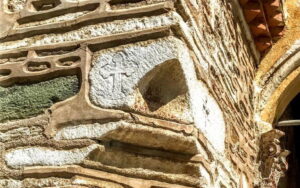 First Reading Ephesians 2,19-22
First Reading Ephesians 2,19-22
Brothers and sisters: You are no longer strangers and sojourners, but you are fellow citizens with the holy ones and members of the household of God,
built upon the foundation of the apostles and prophets, with Christ Jesus himself as the capstone.
Through him the whole structure is held together and grows into a temple sacred in the Lord;
in him you also are being built together into a dwelling place of God in the Spirit.
Gospel Luke 6,12-16
Jesus departed to the mountain to pray, and he spent the night in prayer to God.
When day came, he called his disciples to himself, and from them he chose Twelve, whom he also named apostles:
Simon, whom he named Peter, and his brother Andrew, James, John, Philip, Bartholomew, Matthew, Thomas, James the son of Alphaeus, Simon who was called a Zealot, and Judas the son of James, and Judas Iscariot, who became a traitor.
27/10/20 Tuesday of week 30 in Ordinary Time
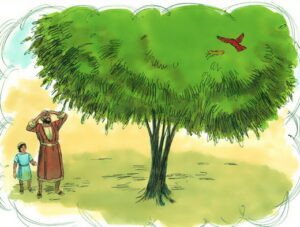 First Reading Ephesians 5,21-33
First Reading Ephesians 5,21-33
Brothers and sisters: be subordinate to one another out of reverence for Christ.
Wives should be subordinate to their husbands as to the Lord.
For the husband is head of his wife just as Christ is head of the church, he himself the savior of the body.
As the church is subordinate to Christ, so wives should be subordinate to their husbands in everything.
Husbands, love your wives, even as Christ loved the church and handed himself over for her
to sanctify her, cleansing her by the bath of water with the word,
that he might present to himself the church in splendor, without spot or wrinkle or any such thing, that she might be holy and without blemish.
So (also) husbands should love their wives as their own bodies. He who loves his wife loves himself.
For no one hates his own flesh but rather nourishes and cherishes it, even as Christ does the church,
because we are members of his body.
“For this reason a man shall leave (his) father and (his) mother and be joined to his wife, and the two shall become one flesh.”
This is a great mystery, but I speak in reference to Christ and the church.
In any case, each one of you should love his wife as himself, and the wife should respect her husband.
Gospel Luke 13,18-21
Jesus said, “What is the Kingdom of God like? To what can I compare it?
It is like a mustard seed that a person took and planted in the garden. When it was fully grown, it became a large bush and ‘the birds of the sky dwelt in its branches.'”
Again he said, “To what shall I compare the kingdom of God?
It is like yeast that a woman took and mixed in with three measures of wheat flour until the whole batch of dough was leavened.”
26/10/20 Monday of week 30 in Ordinary Time
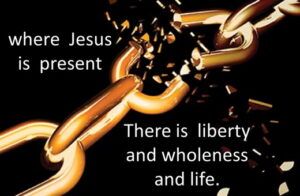 First Reading Ephesians 4,32.5,1-8.
First Reading Ephesians 4,32.5,1-8.
Brothers and sisters: Be kind to one another, compassionate, forgiving one another as God has forgiven you in Christ. So be imitators of God, as beloved children, and live in love, as Christ loved us and handed himself over for us as a sacrificial offering to God for a fragrant aroma. Immorality or any impurity or greed must not even be mentioned among you, as is fitting among holy ones, no obscenity or silly or suggestive talk, which is out of place, but instead, thanksgiving. Be sure of this, that no immoral or impure or greedy person, that is, an idolater, has any inheritance in the kingdom of Christ and of God. Let no one deceive you with empty arguments, for because of these things the wrath of God is coming upon the disobedient. So do not be associated with them. For you were once darkness, but now you are light in the Lord. Live as children of light.
Gospel Luke 13,10-17
Jesus was teaching in a synagogue on the sabbath.
And a woman was there who for eighteen years had been crippled by a spirit; she was bent over, completely incapable of standing erect.
When Jesus saw her, he called to her and said, “Woman, you are set free of your infirmity.”
He laid his hands on her, and she at once stood up straight and glorified God.
But the leader of the synagogue, indignant that Jesus had cured on the sabbath, said to the crowd in reply, “There are six days when work should be done. Come on those days to be cured, not on the sabbath day.”
The Lord said to him in reply, “Hypocrites! Does not each one of you on the sabbath untie his ox or his ass from the manger and lead it out for watering?
This daughter of Abraham, whom Satan has bound for eighteen years now, ought she not to have been set free on the sabbath day from this bondage?”
When he said this, all his adversaries were humiliated; and the whole crowd rejoiced at all the splendid deeds done by him.
25/10/20 Thirtieth Sunday in Ordinary Time
 First Reading Book of Exodus 22,20-26
First Reading Book of Exodus 22,20-26
Thus says the LORD: “You shall not molest or oppress an alien, for you were once aliens yourselves in the land of Egypt. You shall not wrong any widow or orphan.
If ever you wrong them and they cry out to me, I will surely hear their cry.
My wrath will flare up, and I will kill you with the sword; then your own wives will be widows, and your children orphans.
If you lend money to one of your poor neighbors among my people, you shall not act like an extortioner toward him by demanding interest from him.
If you take your neighbor’s cloak as a pledge, you shall return it to him before sunset;
for this cloak of his is the only covering he has for his body. What else has he to sleep in? If he cries out to me, I will hear him; for I am compassionate.”
Second Reading First Letter to the Thessalonians 1,5c-10
For our gospel did not come to you in word alone, but also in power and in the holy Spirit and with much conviction. You know what sort of people we were among you for your sake. And you became imitators of us and of the Lord, receiving the word in great affliction, with joy from the holy Spirit, so that you became a model for all the believers in Macedonia and in Achaia.
For from you the word of the Lord has sounded forth not only in Macedonia and (in) Achaia, but in every place your faith in God has gone forth, so that we have no need to say anything.
For they themselves openly declare about us what sort of reception we had among you, and how you turned to God from idols to serve the living and true God
and to await his Son from heaven, whom he raised from (the) dead, Jesus, who delivers us from the coming wrath.
Gospel Holy Gospel of Jesus Christ according to Saint Matthew 22,34-40.
When the Pharisees heard that Jesus had silenced the Sadducees, they gathered together,
and one of them, a scholar of the law, tested him by asking,
“Teacher, which commandment in the law is the greatest?”
He said to him, “You shall love the Lord, your God, with all your heart, with all your soul, and with all your mind.
This is the greatest and the first commandment.
The second is like it: You shall love your neighbor as yourself.
The whole law and the prophets depend on these two commandments.”
24/10/20 Saturday of week 29 in Ordinary Time
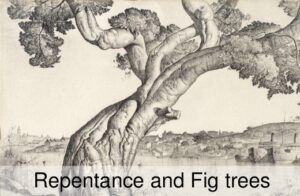 First Reading Ephesians 4:7-16
First Reading Ephesians 4:7-16
Each one of us has been given his own share of grace, given as Christ allotted it. It was said that he would:
When he ascended to the height, he captured prisoners,
he gave gifts to men.
When it says, ‘he ascended’, what can it mean if not that he descended right down to the lower regions of the earth? The one who rose higher than all the heavens to fill all things is none other than the one who descended. And to some, his gift was that they should be apostles; to some, prophets; to some, evangelists; to some, pastors and teachers; so that the saints together make a unity in the work of service, building up the body of Christ. In this way we are all to come to unity in our faith and in our knowledge of the Son of God, until we become the perfect Man, fully mature with the fullness of Christ himself.
Then we shall not be children any longer, or tossed one way and another and carried along by every wind of doctrine, at the mercy of all the tricks men play and their cleverness in practising deceit. If we live by the truth and in love, we shall grow in all ways into Christ, who is the head by whom the whole body is fitted and joined together, every joint adding its own strength, for each separate part to work according to its function. So the body grows until it has built itself up, in love.
Gospel Luke 13:1-9
Some people arrived and told Jesus about the Galileans whose blood Pilate had mingled with that of their sacrifices. At this he said to them, ‘Do you suppose these Galileans who suffered like that were greater sinners than any other Galileans? They were not, I tell you. No; but unless you repent you will all perish as they did. Or those eighteen on whom the tower at Siloam fell and killed them? Do you suppose that they were more guilty than all the other people living in Jerusalem? They were not, I tell you. No; but unless you repent you will all perish as they did.’
He told this parable: ‘A man had a fig tree planted in his vineyard, and he came looking for fruit on it but found none. He said to the man who looked after the vineyard, “Look here, for three years now I have been coming to look for fruit on this fig tree and finding none. Cut it down: why should it be taking up the ground?” “Sir,” the man replied “leave it one more year and give me time to dig round it and manure it: it may bear fruit next year; if not, then you can cut it down.”’
23/10/20 Friday of week 29 in Ordinary Time
 First Reading Ephesians 4:1-6
First Reading Ephesians 4:1-6
I, the prisoner in the Lord, implore you to lead a life worthy of your vocation. Bear with one another charitably, in complete selflessness, gentleness and patience. Do all you can to preserve the unity of the Spirit by the peace that binds you together. There is one Body, one Spirit, just as you were all called into one and the same hope when you were called. There is one Lord, one faith, one baptism, and one God who is Father of all, over all, through all and within all.
Gospel Luke 12:54-59
Jesus said to the crowds: ‘When you see a cloud looming up in the west you say at once that rain is coming, and so it does. And when the wind is from the south you say it will be hot, and it is. Hypocrites! You know how to interpret the face of the earth and the sky. How is it you do not know how to interpret these times?
‘Why not judge for yourselves what is right? For example: when you go to court with your opponent, try to settle with him on the way, or he may drag you before the judge and the judge hand you over to the bailiff and the bailiff have you thrown into prison. I tell you, you will not get out till you have paid the very last penny.’
22/10/20 Thursday of week 29 in Ordinary Time
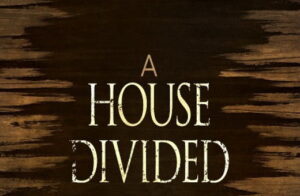 First Reading Ephesians 3:14-21
First Reading Ephesians 3:14-21
This is what I pray, kneeling before the Father, from whom every family, whether spiritual or natural, takes its name:
Out of his infinite glory, may he give you the power through his Spirit for your hidden self to grow strong, so that Christ may live in your hearts through faith, and then, planted in love and built on love, you will with all the saints have strength to grasp the breadth and the length, the height and the depth; until, knowing the love of Christ, which is beyond all knowledge, you are filled with the utter fullness of God.
Glory be to him whose power, working in us, can do infinitely more than we can ask or imagine; glory be to him from generation to generation in the Church and in Christ Jesus for ever and ever. Amen.
Gospel Luke 12:49-53
Jesus said to his disciples: ‘I have come to bring fire to the earth, and how I wish it were blazing already! There is a baptism I must still receive, and how great is my distress till it is over!
‘Do you suppose that I am here to bring peace on earth? No, I tell you, but rather division. For from now on a household of five will be divided: three against two and two against three; the father divided against the son, son against father, mother against daughter, daughter against mother, mother-in-law against daughter-in-law, daughter-in-law against mother-in-law.’
21/10/20 Wednesday of week 29 in Ordinary Time
 First Reading Ephesians 3:2-12
First Reading Ephesians 3:2-12
You have probably heard how I have been entrusted by God with the grace he meant for you, and that it was by a revelation that I was given the knowledge of the mystery, as I have just described it very shortly. If you read my word you will have some idea of the depths that I see in the mystery of Christ. This that has now been revealed through the Spirit to his holy apostles and prophets was unknown to any men in past generations; it means that pagans now share the same inheritance, that they are parts of the same body, and that the same promise has been made to them, in Jesus Christ, through the gospel. I have been made the servant of that gospel by a gift of grace from God who gave it to me by his own power. I, who am less than the least of all the saints have been entrusted with this special grace, not only of proclaiming to the pagans the infinite treasure of Christ but also of explaining how the mystery is to be dispensed. Through all the ages, this has been kept hidden in God, the creator of everything. Why? So that the Sovereignties and Powers should learn only now, through the Church, how comprehensive God’s wisdom really is, exactly according to the plan which he had had from all eternity in Christ Jesus our Lord. This is why we are bold enough to approach God in complete confidence, through our faith in him.
Gospel Luke 12:39-48
Jesus said to his disciples:
‘You may be quite sure of this, that if the householder had known at what hour the burglar would come, he would not have let anyone break through the wall of his house. You too must stand ready, because the Son of Man is coming at an hour you do not expect.’
Peter said, ‘Lord, do you mean this parable for us, or for everyone?’ The Lord replied, ‘What sort of steward, then, is faithful and wise enough for the master to place him over his household to give them their allowance of food at the proper time? Happy that servant if his master’s arrival finds him at this employment. I tell you truly, he will place him over everything he owns. But as for the servant who says to himself, “My master is taking his time coming,” and sets about beating the menservants and the maids, and eating and drinking and getting drunk, his master will come on a day he does not expect and at an hour he does not know. The master will cut him off and send him to the same fate as the unfaithful.
The servant who knows what his master wants, but has not even started to carry out those wishes, will receive very many strokes of the lash. The one who did not know, but deserves to be beaten for what he has done, will receive fewer strokes. When a man has had a great deal given him, a great deal will be demanded of him; when a man has had a great deal given him on trust, even more will be expected of him.’
20/10/20 Tuesday of the Twenty-ninth week in Ordinary Time
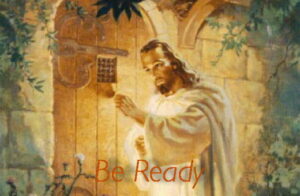 First Reading Ephesians 2,12-22
First Reading Ephesians 2,12-22
Brothers and sisters: You were at that time without Christ, alienated from the community of Israel and strangers to the covenants of promise, without hope and without God in the world.
But now in Christ Jesus you who once were far off have become near by the blood of Christ.
For he is our peace, he who made both one and broke down the dividing wall of enmity, through his flesh,
abolishing the law with its commandments and legal claims, that he might create in himself one new person in place of the two, thus establishing peace,
and might reconcile both with God, in one body, through the cross, putting that enmity to death by it.
He came and preached peace to you who were far off and peace to those who were near,
for through him we both have access in one Spirit to the Father.
So then you are no longer strangers and sojourners, but you are fellow citizens with the holy ones and members of the household of God,
built upon the foundation of the apostles and prophets, with Christ Jesus himself as the capstone.
Through him the whole structure is held together and grows into a temple sacred in the Lord;
in him you also are being built together into a dwelling place of God in the Spirit.
Gospel Luke 12,35-38
Jesus said to his disciples: “Gird your loins and light your lamps
and be like servants who await their master’s return from a wedding, ready to open immediately when he comes and knocks.
Blessed are those servants whom the master finds vigilant on his arrival. Amen, I say to you, he will gird himself, have them recline at table, and proceed to wait on them.
And should he come in the second or third watch and find them prepared in this way, blessed are those servants.”
19/10/20 Monday of week 29 in Ordinary Time
 First Reading Ephesians 2:1-10
First Reading Ephesians 2:1-10
You were dead through the crimes and the sins in which you used to live when you were following the way of this world, obeying the ruler who governs the air, the spirit who is at work in the rebellious. We all were among them too in the past, living sensual lives, ruled entirely by our own physical desires and our own ideas; so that by nature we were as much under God’s anger as the rest of the world. But God loved us with so much love that he was generous with his mercy: when we were dead through our sins, he brought us to life with Christ – it is through grace that you have been saved – and raised us up with him and gave us a place with him in heaven, in Christ Jesus.
This was to show for all ages to come, through his goodness towards us in Christ Jesus, how infinitely rich he is in grace. Because it is by grace that you have been saved, through faith; not by anything of your own, but by a gift from God; not by anything that you have done, so that nobody can claim the credit. We are God’s work of art, created in Christ Jesus to live the good life as from the beginning he had meant us to live it.
Gospel Luke 12:13-21
A man in the crowd said to Jesus, ‘Master, tell my brother to give me a share of our inheritance.’ ‘My friend,’ he replied, ‘who appointed me your judge, or the arbitrator of your claims?’ Then he said to them, ‘Watch, and be on your guard against avarice of any kind, for a man’s life is not made secure by what he owns, even when he has more than he needs.’
Then he told them a parable: ‘There was once a rich man who, having had a good harvest from his land, thought to himself, “What am I to do? I have not enough room to store my crops.” Then he said, “This is what I will do: I will pull down my barns and build bigger ones, and store all my grain and my goods in them, and I will say to my soul: My soul, you have plenty of good things laid by for many years to come; take things easy, eat, drink, have a good time.” But God said to him, “Fool! This very night the demand will be made for your soul; and this hoard of yours, whose will it be then?” So it is when a man stores up treasure for himself in place of making himself rich in the sight of God.’
18/10/20 29th Sunday in Ordinary Time
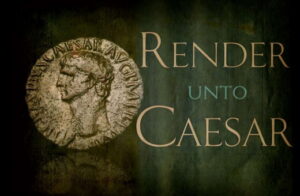 First Reading Isaiah 45:1,4-6
First Reading Isaiah 45:1,4-6
Thus says the LORD to his anointed, Cyrus, whose right hand I grasp, Subduing nations before him, and making kings run in his service, Opening doors before him and leaving the gates unbarred:
For the sake of Jacob, my servant, of Israel my chosen one, I have called you by your name, giving you a title, though you knew me not.
I am the LORD and there is no other, there is no God besides me. It is I who arm you, though you know me not,
so that toward the rising and the setting of the sun men may know that there is none besides me. I am the LORD, there is no other;
Second Reading 1 Thessalonians 1:1-5
From Paul, Silvanus and Timothy, to the Church in Thessalonika which is in God the Father and the Lord Jesus Christ; wishing you grace and peace from God the Father and the Lord Jesus Christ.
We always mention you in our prayers and thank God for you all, and constantly remember before God our Father how you have shown your faith in action, worked for love and persevered through hope, in our Lord Jesus Christ.
We know, brothers, that God loves you and that you have been chosen, because when we brought the Good News to you, it came to you not only as words, but as power and as the Holy Spirit and as utter conviction.
Gospel Matthew 22:15-21
The Pharisees went away to work out between them how to trap Jesus in what he said. And they sent their disciples to him, together with the Herodians, to say, ‘Master, we know that you are an honest man and teach the way of God in an honest way, and that you are not afraid of anyone, because a man’s rank means nothing to you. Tell us your opinion, then. Is it permissible to pay taxes to Caesar or not?’ But Jesus was aware of their malice and replied, ‘You hypocrites! Why do you set this trap for me? Let me see the money you pay the tax with.’ They handed him a denarius, and he said, ‘Whose head is this? Whose name?’ ‘Caesar’s’ they replied. He then said to them, ‘Very well, give back to Caesar what belongs to Caesar – and to God what belongs to God.’
17/10/20 Saturday of week 28 in Ordinary Time
 First Reading Ephesians 1:15-23
First Reading Ephesians 1:15-23
I, having once heard about your faith in the Lord Jesus, and the love that you show towards all the saints, have never failed to remember you in my prayers and to thank God for you. May the God of our Lord Jesus Christ, the Father of glory, give you a spirit of wisdom and perception of what is revealed, to bring you to full knowledge of him. May he enlighten the eyes of your mind so that you can see what hope his call holds for you, what rich glories he has promised the saints will inherit and how infinitely great is the power that he has exercised for us believers. This you can tell from the strength of his power at work in Christ, when he used it to raise him from the dead and to make him sit at his right hand, in heaven, far above every Sovereignty, Authority, Power, or Domination, or any other name that can be named not only in this age but also in the age to come. He has put all things under his feet and made him, as the ruler of everything, the head of the Church; which is his body, the fullness of him who fills the whole creation.
Gospel Luke 12:8-12
Jesus said to his disciples:
‘I tell you, if anyone openly declares himself for me in the presence of men, the Son of Man will declare himself for him in the presence of the angels. But the man who disowns me in the presence of men will be disowned in the presence of God’s angels.
‘Everyone who says a word against the Son of Man will be forgiven, but he who blasphemes against the Holy Spirit will not be forgiven.
‘When they take you before synagogues and magistrates and authorities, do not worry about how to defend yourselves or what to say, because when the time comes, the Holy Spirit will teach you what you must say.’
16/10/20 Friday of week 28 in Ordinary Time
 First Reading Ephesians 1,11-14
First Reading Ephesians 1,11-14
Brothers and sisters: In Christ we were also chosen, destined in accord with the purpose of the one who accomplishes all things according to the intention of his will,
so that we might exist for the praise of his glory, we who first hoped in Christ.
In him you also, who have heard the word of truth, the gospel of your salvation, and have believed in him, were sealed with the promised holy Spirit,
which is the first installment of our inheritance toward redemption as God’s possession, to the praise of his glory.
Gospel Luke 12:1-7
The people had gathered in their thousands so that they were treading on one another. And Jesus began to speak, first of all to his disciples. ‘Be on your guard against the yeast of the Pharisees – that is, their hypocrisy. Everything that is now covered will be uncovered, and everything now hidden will be made clear. For this reason, whatever you have said in the dark will be heard in the daylight, and what you have whispered in hidden places will be proclaimed on the housetops.
‘To you my friends I say: Do not be afraid of those who kill the body and after that can do no more. I will tell you whom to fear: fear him who, after he has killed, has the power to cast into hell. Yes, I tell you, fear him. Can you not buy five sparrows for two pennies? And yet not one is forgotten in God’s sight. Why, every hair on your head has been counted. There is no need to be afraid: you are worth more than hundreds of sparrows.’
15/10/20 Saint Teresa of Ávila Thursday of week 28 in Ordinary Time
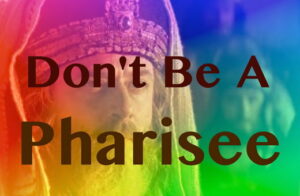 First Reading Ephesians 1:1-10
First Reading Ephesians 1:1-10
From Paul, appointed by God to be an apostle of Christ Jesus, to the saints who are faithful to Christ Jesus. Grace and peace to you from God our Father and from the Lord Jesus Christ. Blessed be God the Father of our Lord Jesus Christ, who has blessed us with all the spiritual blessings of heaven in Christ. Before the world was made, he chose us, chose us in Christ, to be holy and spotless, and to live through love in his presence, determining that we should become his adopted sons, through Jesus Christ for his own kind purposes, to make us praise the glory of his grace, his free gift to us in the Beloved, in whom, through his blood, we gain our freedom, the forgiveness of our sins. Such is the richness of the grace which he has showered on us in all wisdom and insight. He has let us know the mystery of his purpose, the hidden plan he so kindly made in Christ from the beginning to act upon when the times had run their course to the end: that he would bring everything together under Christ, as head, everything in the heavens and everything on earth.
Gospel Luke 11:47-54
Jesus said: ‘Alas for you who build the tombs of the prophets, the men your ancestors killed! In this way you both witness what your ancestors did and approve it; they did the killing, you do the building.
‘And that is why the Wisdom of God said, “I will send them prophets and apostles; some they will slaughter and persecute, so that this generation will have to answer for every prophet’s blood that has been shed since the foundation of the world, from the blood of Abel to the blood of Zechariah, who was murdered between the altar and the sanctuary.” Yes, I tell you, this generation will have to answer for it all.
‘Alas for you lawyers who have taken away the key of knowledge! You have not gone in yourselves, and have prevented others going in who wanted to.’
When he left the house, the scribes and the Pharisees began a furious attack on him and tried to force answers from him on innumerable questions, setting traps to catch him out in something he might say.
14/10/20 Wednesday of week 28 in Ordinary Time
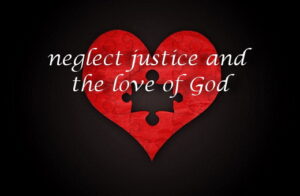 First Reading Galatians 5:18-25
First Reading Galatians 5:18-25
If you are led by the Spirit, no law can touch you. When self-indulgence is at work the results are obvious: fornication, gross indecency and sexual irresponsibility; idolatry and sorcery; feuds and wrangling, jealousy, bad temper and quarrels; disagreements, factions, envy; drunkenness, orgies and similar things. I warn you now, as I warned you before: those who behave like this will not inherit the kingdom of God. What the Spirit brings is very different: love, joy, peace, patience, kindness, goodness, trustfulness, gentleness and self-control. There can be no law against things like that, of course. You cannot belong to Christ Jesus unless you crucify all self-indulgent passions and desires.
Since the Spirit is our life, let us be directed by the Spirit.
Gospel Luke 11:42-46
The Lord said to the Pharisees: ‘Alas for you Pharisees! You who pay your tithe of mint and rue and all sorts of garden herbs and overlook justice and the love of God! These you should have practised, without leaving the others undone. Alas for you Pharisees who like taking the seats of honour in the synagogues and being greeted obsequiously in the market squares! Alas for you, because you are like the unmarked tombs that men walk on without knowing it!
A lawyer then spoke up. ‘Master,’ he said ‘when you speak like this you insult us too.’
‘Alas for you lawyers also,’ he replied ‘because you load on men burdens that are unendurable, burdens that you yourselves do not move a finger to lift.’
13/10/20 Tuesday of week 28 in Ordinary Time
 First Reading Galatians 5:1-6
First Reading Galatians 5:1-6
When Christ freed us, he meant us to remain free. Stand firm, therefore, and do not submit again to the yoke of slavery. It is I, Paul, who tell you this: if you allow yourselves to be circumcised, Christ will be of no benefit to you at all. With all solemnity I repeat my warning: Everyone who accepts circumcision is obliged to keep the whole Law. But if you do look to the Law to make you justified, then you have separated yourselves from Christ, and have fallen from grace. Christians are told by the Spirit to look to faith for those rewards that righteousness hopes for, since in Christ Jesus whether you are circumcised or not makes no difference – what matters is faith that makes its power felt through love.
Gospel Luke 11:37-41
Jesus had just finished speaking when a Pharisee invited him to dine at his house. He went in and sat down at the table. The Pharisee saw this and was surprised that he had not first washed before the meal. But the Lord said to him, ‘Oh, you Pharisees! You clean the outside of cup and plate, while inside yourselves you are filled with extortion and wickedness. Fools! Did not he who made the outside make the inside too? Instead, give alms from what you have and then indeed everything will be clean for you.’
12/10/20 Monday of week 28 in Ordinary Time
 First Reading Galatians 4:22-24,26-27,31-5:1
First Reading Galatians 4:22-24,26-27,31-5:1
The Law says, if you remember, that Abraham had two sons, one by the slave-girl, and one by his free-born wife. The child of the slave-girl was born in the ordinary way; the child of the free woman was born as the result of a promise. This can be regarded as an allegory: the women stand for the two covenants. The first who comes from Mount Sinai, and whose children are slaves, is Hagar. The Jerusalem above, however, is free and is our mother, since scripture says: Shout for joy, you barren women who bore no children! Break into shouts of joy and gladness, you who were never in labour. For there are more sons of the forsaken one than sons of the wedded wife. So, my brothers, we are the children, not of the slave-girl, but of the free-born wife.
When Christ freed us, he meant us to remain free. Stand firm, therefore, and do not submit again to the yoke of slavery.
Gospel Luke 11:29-32
The crowds got even bigger, and Jesus addressed them:
‘This is a wicked generation; it is asking for a sign. The only sign it will be given is the sign of Jonah. For just as Jonah became a sign to the Ninevites, so will the Son of Man be to this generation. On Judgement day the Queen of the South will rise up with the men of this generation and condemn them, because she came from the ends of the earth to hear the wisdom of Solomon; and there is something greater than Solomon here. On Judgement day the men of Nineveh will stand up with this generation and condemn it, because when Jonah preached they repented; and there is something greater than Jonah here.’
11/10/20 28th Sunday in Ordinary Time
 First Reading Isaiah 25:6-10
First Reading Isaiah 25:6-10
On this mountain the LORD of hosts will provide for all peoples a feast of rich food and choice wines, juicy, rich food and pure, choice wines.
On this mountain he will destroy the veil that veils all peoples, The web that is woven over all nations;
he will destroy death forever. The Lord GOD will wipe away the tears from all faces; The reproach of his people he will remove from the whole earth; for the LORD has spoken.
On that day it will be said: “Behold our God, to whom we looked to save us! This is the LORD for whom we looked; let us rejoice and be glad that he has saved us!”
For the hand of the LORD will rest on this mountain.
Second Reading Philippians 4:12-14,19-20
I know how to be poor and I know how to be rich too. I have been through my initiation and now I am ready for anything anywhere: full stomach or empty stomach, poverty or plenty. There is nothing I cannot master with the help of the One who gives me strength. All the same, it was good of you to share with me in my hardships. In return my God will fulfil all your needs, in Christ Jesus, as lavishly as only God can. Glory to God, our Father, for ever and ever. Amen.
Gospel Matthew 22:1-14
Jesus began to speak to the chief priests and elders of the people in parables: ‘The kingdom of heaven may be compared to a king who gave a feast for his son’s wedding. He sent his servants to call those who had been invited, but they would not come. Next he sent some more servants. “Tell those who have been invited” he said “that I have my banquet all prepared, my oxen and fattened cattle have been slaughtered, everything is ready. Come to the wedding.” But they were not interested: one went off to his farm, another to his business, and the rest seized his servants, maltreated them and killed them. The king was furious. He despatched his troops, destroyed those murderers and burnt their town. Then he said to his servants, “The wedding is ready; but as those who were invited proved to be unworthy, go to the crossroads in the town and invite everyone you can find to the wedding.” So these servants went out on to the roads and collected together everyone they could find, bad and good alike; and the wedding hall was filled with guests. When the king came in to look at the guests he noticed one man who was not wearing a wedding garment, and said to him, “How did you get in here, my friend, without a wedding garment?” And the man was silent. Then the king said to the attendants, “Bind him hand and foot and throw him out into the dark, where there will be weeping and grinding of teeth.” For many are called, but few are chosen.’
10/10/20 Saturday of week 27 in Ordinary Time
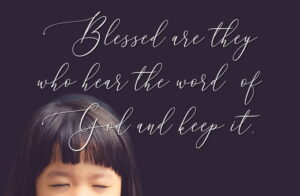 First Reading Galatians 3:22-29
First Reading Galatians 3:22-29
Scripture makes no exceptions when it says that sin is master everywhere. In this way the promise can only be given through faith in Jesus Christ and can only be given to those who have this faith.
Before faith came, we were allowed no freedom by the Law; we were being looked after till faith was revealed. The Law was to be our guardian until the Christ came and we could be justified by faith. Now that that time has come we are no longer under that guardian, and you are, all of you, sons of God through faith in Christ Jesus. All baptised in Christ, you have all clothed yourselves in Christ, and there are no more distinctions between Jew and Greek, slave and free, male and female, but all of you are one in Christ Jesus. Merely by belonging to Christ you are the posterity of Abraham, the heirs he was promised.
Gospel Luke 11:27-28
As Jesus was speaking, a woman in the crowd raised her voice and said, ‘Happy the womb that bore you and the breasts you sucked!’ But he replied, ‘Still happier those who hear the word of God and keep it!’
9/10/20 Friday of the Twenty-seventh week in Ordinary Time
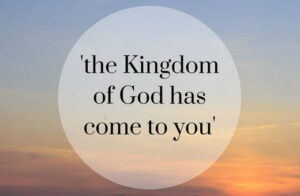 First Reading Letter to the Galatians 3,7-14.
First Reading Letter to the Galatians 3,7-14.
Brothers and sisters: Realize that it is those who have faith who are children of Abraham.
Scripture, which saw in advance that God would justify the Gentiles by faith, foretold the good news to Abraham, saying, “Through you shall all the nations be blessed.”
Consequently, those who have faith are blessed along with Abraham who had faith.
For all who depend on works of the law are under a curse; for it is written, “Cursed be everyone who does not persevere in doing all the things written in the book of the law.”
And that no one is justified before God by the law is clear, for “the one who is righteous by faith will live.”
But the law does not depend on faith; rather, “the one who does these things will live by them.”
Christ ransomed us from the curse of the law by becoming a curse for us, for it is written, “Cursed be everyone who hangs on a tree,”
that the blessing of Abraham might be extended to the Gentiles through Christ Jesus, so that we might receive the promise of the Spirit through faith.
Gospel Luke 11,15-26.
When Jesus had driven out a demon, some of the crowd said: “By the power of Beelzebul, the prince of demons, he drives out demons.”
Others, to test him, asked him for a sign from heaven.
But he knew their thoughts and said to them, “Every kingdom divided against itself will be laid waste and house will fall against house.
And if Satan is divided against himself, how will his kingdom stand? For you say that it is by Beelzebul that I drive out demons.
If I, then, drive out demons by Beelzebul, by whom do your own people drive them out? Therefore they will be your judges.
But if it is by the finger of God that I drive out demons, then the kingdom of God has come upon you.
When a strong man fully armed guards his palace, his possessions are safe.
But when one stronger than he attacks and overcomes him, he takes away the armor on which he relied and distributes the spoils.
Whoever is not with me is against me, and whoever does not gather with me scatters.”
When an unclean spirit goes out of someone, it roams through arid regions searching for rest but, finding none, it says, ‘I shall return to my home from which I came.’
But upon returning, it finds it swept clean and put in order.
Then it goes and brings back seven other spirits more wicked than itself who move in and dwell there, and the last condition of that person is worse than the first.”
8/10/20 Thursday of the Twenty-seventh week in Ordinary Time
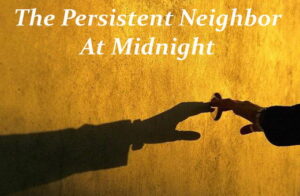 First Reading Letter to the Galatians 3,1-5.
First Reading Letter to the Galatians 3,1-5.
O stupid Galatians! Who has bewitched you, before whose eyes Jesus Christ was publicly portrayed as crucified?
I want to learn only this from you: did you receive the Spirit from works of the law, or from faith in what you heard?
Are you so stupid? After beginning with the Spirit, are you now ending with the flesh?
Did you experience so many things in vain?–if indeed it was in vain.
Does, then, the one who supplies the Spirit to you and works mighty deeds among you do so from works of the law or from faith in what you heard?
Gospel Luke 11,5-13.
Jesus said to his disciples: “Suppose one of you has a friend to whom he goes at midnight and says, ‘Friend, lend me three loaves of bread,
for a friend of mine has arrived at my house from a journey and I have nothing to offer him,’
and he says in reply from within, ‘Do not bother me; the door has already been locked and my children and I are already in bed. I cannot get up to give you anything.’
I tell you, if he does not get up to give him the loaves because of their friendship, he will get up to give him whatever he needs because of his persistence.
And I tell you, ask and you will receive; seek and you will find; knock and the door will be opened to you.
For everyone who asks, receives; and the one who seeks, finds; and to the one who knocks, the door will be opened.
What father among you would hand his son a snake when he asks for a fish?
Or hand him a scorpion when he asks for an egg?
If you then, who are wicked, know how to give good gifts to your children, how much more will the Father in heaven give the Holy Spirit to those who ask him?”
7/10/20 Our Lady of the Rosary on Wednesday of week 27 in Ordinary Time
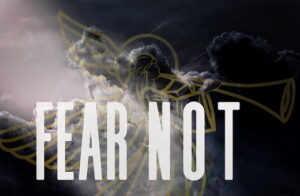 First Reading Acts 1:12-14
First Reading Acts 1:12-14
After Jesus was taken up into heaven the apostles went back from the Mount of Olives, as it is called, to Jerusalem, a short distance away, no more than a sabbath walk; and when they reached the city they went to the upper room where they were staying; there were Peter and John, James and Andrew, Philip and Thomas, Bartholomew and Matthew, James son of Alphaeus and Simon the Zealot, and Jude son of James. All these joined in continuous prayer, together with several women, including Mary the mother of Jesus, and with his brothers.
Gospel Luke 1:26-38
The angel Gabriel was sent by God to a town in Galilee called Nazareth, to a virgin betrothed to a man named Joseph, of the House of David; and the virgin’s name was Mary. He went in and said to her, ‘Rejoice, so highly favoured! The Lord is with you.’ She was deeply disturbed by these words and asked herself what this greeting could mean, but the angel said to her, ‘Mary, do not be afraid; you have won God’s favour. Listen! You are to conceive and bear a son, and you must name him Jesus. He will be great and will be called Son of the Most High. The Lord God will give him the throne of his ancestor David; he will rule over the House of Jacob for ever and his reign will have no end.’ Mary said to the angel, ‘But how can this come about, since I am a virgin?’ ‘The Holy Spirit will come upon you’ the angel answered ‘and the power of the Most High will cover you with its shadow. And so the child will be holy and will be called Son of God. Know this too: your kinswoman Elizabeth has, in her old age, herself conceived a son, and she whom people called barren is now in her sixth month, for nothing is impossible to God.’ ‘I am the handmaid of the Lord,’ said Mary ‘let what you have said be done to me.’ And the angel left her.
6/10/20 Tuesday of week 27 in Ordinary Time
 First Reading Galatians 1:13-24
First Reading Galatians 1:13-24
You must have heard of my career as a practising Jew, how merciless I was in persecuting the Church of God, how much damage I did to it, how I stood out among other Jews of my generation, and how enthusiastic I was for the traditions of my ancestors.
Then God, who had specially chosen me while I was still in my mother’s womb, called me through his grace and chose to reveal his Son in me, so that I might preach the Good News about him to the pagans. I did not stop to discuss this with any human being, nor did I go up to Jerusalem to see those who were already apostles before me, but I went off to Arabia at once and later went straight back from there to Damascus. Even when after three years I went up to Jerusalem to visit Cephas and stayed with him for fifteen days, I did not see any of the other apostles; I only saw James, the brother of the Lord, and I swear before God that what I have just written is the literal truth. After that I went to Syria and Cilicia, and was still not known by sight to the churches of Christ in Judaea, who had heard nothing except that their one-time persecutor was now preaching the faith he had previously tried to destroy; and they gave glory to God for me.
Gospel Luke 10:38-42
Jesus came to a village, and a woman named Martha welcomed him into her house. She had a sister called Mary, who sat down at the Lord’s feet and listened to him speaking. Now Martha who was distracted with all the serving said, ‘Lord, do you not care that my sister is leaving me to do the serving all by myself? Please tell her to help me.’ But the Lord answered: ‘Martha, Martha,’ he said ‘you worry and fret about so many things, and yet few are needed, indeed only one. It is Mary who has chosen the better part; it is not to be taken from her.’
4/10/20 27th Sunday in Ordinary Time
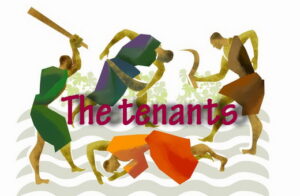 First Reading Isaiah 5:1-7
First Reading Isaiah 5:1-7
Let me now sing of my friend, my friend’s song concerning his vineyard. My friend had a vineyard on a fertile hillside;
He spaded it, cleared it of stones, and planted the choicest vines; Within it he built a watchtower, and hewed out a wine press. Then he looked for the crop of grapes, but what it yielded was wild grapes.
Now, inhabitants of Jerusalem and men of Judah, judge between me and my vineyard:
What more was there to do for my vineyard that I had not done? Why, when I looked for the crop of grapes, did it bring forth wild grapes?
Now, I will let you know what I mean to do to my vineyard: Take away its hedge, give it to grazing, break through its wall, let it be trampled!
Yes, I will make it a ruin: it shall not be pruned or hoed, but overgrown with thorns and briers; I will command the clouds not to send rain upon it.
The vineyard of the LORD of hosts is the house of Israel, and the men of Judah are his cherished plant; He looked for judgment, but see, bloodshed! for justice, but hark, the outcry!
Second Reading Philippians 4:6-9
There is no need to worry; but if there is anything you need, pray for it, asking God for it with prayer and thanksgiving, and that peace of God, which is so much greater than we can understand, will guard your hearts and your thoughts, in Christ Jesus. Finally, brothers, fill your minds with everything that is true, everything that is noble, everything that is good and pure, everything that we love and honour, and everything that can be thought virtuous or worthy of praise. Keep doing all the things that you learnt from me and have been taught by me and have heard or seen that I do. Then the God of peace will be with you.
Gospel Matthew 21:33-43
Jesus said to the chief priests and the elders of the people, ‘Listen to another parable. There was a man, a landowner, who planted a vineyard; he fenced it round, dug a winepress in it and built a tower; then he leased it to tenants and went abroad. When vintage time drew near he sent his servants to the tenants to collect his produce. But the tenants seized his servants, thrashed one, killed another and stoned a third. Next he sent some more servants, this time a larger number, and they dealt with them in the same way. Finally he sent his son to them. “They will respect my son” he said. But when the tenants saw the son, they said to each other, “This is the heir. Come on, let us kill him and take over his inheritance.” So they seized him and threw him out of the vineyard and killed him. Now when the owner of the vineyard comes, what will he do to those tenants?’ They answered, ‘He will bring those wretches to a wretched end and lease the vineyard to other tenants who will deliver the produce to him when the season arrives.’ Jesus said to them, ‘Have you never read in the scriptures:
It was the stone rejected by the builders
that became the keystone.
This was the Lord’s doing
and it is wonderful to see?
‘I tell you, then, that the kingdom of God will be taken from you and given to a people who will produce its fruit.’
3/10/20 Saturday of week 26 in Ordinary Time
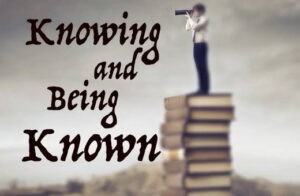 First Reading Job 42:1-3,5-6,12-17
First Reading Job 42:1-3,5-6,12-17
Job answered the LORD and said:
I know that you can do all things, and that no purpose of yours can be hindered.
I have dealt with great things that I do not understand; things too wonderful for me, which I cannot know.
I had heard of you by word of mouth, but now my eye has seen you.
Therefore I disown what I have said, and repent in dust and ashes.
Thus the LORD blessed the latter days of Job more than his earlier ones. For he had fourteen thousand sheep, six thousand camels, a thousand yoke of oxen, and a thousand she-asses.
And he had seven sons and three daughters,
of whom he called the first Jemimah, the second Keziah, and the third Keren-happuch.
In all the land no other women were as beautiful as the daughters of Job; and their father gave them an inheritance among their brethren.
After this, Job lived a hundred and forty years; and he saw his children, his grandchildren, and even his great-grandchildren.
Then Job died, old and full of years.
Gospel Luke 10:17-24
The seventy-two came back rejoicing. ‘Lord,’ they said ‘even the devils submit to us when we use your name.’ He said to them, ‘I watched Satan fall like lightning from heaven. Yes, I have given you power to tread underfoot serpents and scorpions and the whole strength of the enemy; nothing shall ever hurt you. Yet do not rejoice that the spirits submit to you; rejoice rather that your names are written in heaven.’
It was then that, filled with joy by the Holy Spirit, he said:
‘I bless you, Father, Lord of heaven and of earth, for hiding these things from the learned and the clever and revealing them to mere children. Yes, Father, for that is what it pleased you to do. Everything has been entrusted to me by my Father; and no one knows who the Son is except the Father, and who the Father is except the Son and those to whom the Son chooses to reveal him.’
Then turning to his disciples he spoke to them in private, ‘Happy the eyes that see what you see, for I tell you that many prophets and kings wanted to see what you see, and never saw it; to hear what you hear, and never heard it.’
2/10/20 The Holy Guardian Angels
 First Reading Exodus 23:20-23
First Reading Exodus 23:20-23
The Lord says this: ‘I myself will send an angel before you to guard you as you go and to bring you to the place that I have prepared. Give him reverence and listen to all that he says. Offer him no defiance; he would not pardon such a fault, for my name is in him. If you listen carefully to his voice and do all that I say, I shall be enemy to your enemies, foe to your foes. My angel will go before you.’
Gospel Matthew 18:1-5,10
The disciples came to Jesus and said, ‘Who is the greatest in the kingdom of heaven?’ So he called a little child to him and set the child in front of them. Then he said, ‘I tell you solemnly, unless you change and become like little children you will never enter the kingdom of heaven. And so, the one who makes himself as little as this little child is the greatest in the kingdom of heaven.
‘Anyone who welcomes a little child like this in my name welcomes me. See that you never despise any of these little ones, for I tell you that their angels in heaven are continually in the presence of my Father in heaven.’
1/10/20 Saint Thérèse of the Child Jesus
 First Reading Isaiah 66:10-14
First Reading Isaiah 66:10-14
Rejoice, Jerusalem, be glad for her, all you who love her! Rejoice, rejoice for her, all you who mourned her! That you may be suckled, filled, from her consoling breast, that you may savour with delight her glorious breasts. For thus says the Lord: Now towards her I send flowing peace, like a river, and like a stream in spate the glory of the nations. At her breast will her nurslings be carried and fondled in her lap. Like a son comforted by his mother will I comfort you. And by Jerusalem you will be comforted. At the sight your heart will rejoice, and your bones flourish like the grass. To his servants the Lord will reveal his hand.
Gospel Matthew 18:1-5
The disciples came to Jesus and said, ‘Who is the greatest in the kingdom of heaven?’ So he called a little child to him and set the child in front of them. Then he said, ‘I tell you solemnly, unless you change and become like little children you will never enter the kingdom of heaven. And so, the one who makes himself as little as this little child is the greatest in the kingdom of heaven.
‘Anyone who welcomes a little child like this in my name welcomes me.’
30/9/20 Wednesday of week 26 in Ordinary Time
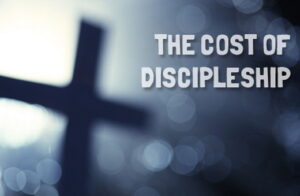 First Reading Job 9:1-13,14-16
First Reading Job 9:1-13,14-16
Job answered his friends and said:
I know well that it is so; but how can a man be justified before God?
Should one wish to contend with him, he could not answer him once in a thousand times.
God is wise in heart and mighty in strength; who has withstood him and remained unscathed?
He removes the mountains before they know it; he overturns them in his anger.
He shakes the earth out of its place, and the pillars beneath it tremble.
He commands the sun, and it rises not; he seals up the stars.
He alone stretches out the heavens and treads upon the crests of the sea.
He made the Bear and Orion, the Pleiades and the constellations of the south;
He does great things past finding out, marvelous things beyond reckoning.
Should he come near me, I see him not; should he pass by, I am not aware of him;
Should he seize me forcibly, who can say him nay? Who can say to him, “What are you doing?”
How much less shall I give him any answer, or choose out arguments against him!
Even though I were right, I could not answer him, but should rather beg for what was due me.
If I appealed to him and he answered my call, I could not believe that he would hearken to my words.
Gospel Luke 9:57-62
As Jesus and his disciples travelled along they met a man on the road who said to him, ‘I will follow you wherever you go.’ Jesus answered, ‘Foxes have holes and the birds of the air have nests, but the Son of Man has nowhere to lay his head.’
Another to whom he said, ‘Follow me’, replied, ‘Let me go and bury my father first.’ But he answered, ‘Leave the dead to bury their dead; your duty is to go and spread the news of the kingdom of God.’
Another said, ‘I will follow you, sir, but first let me go and say goodbye to my people at home.’ Jesus said to him, ‘Once the hand is laid on the plough, no one who looks back is fit for the kingdom of God.’
29/09/20 Saints Michael, Gabriel and Raphael, Archangels
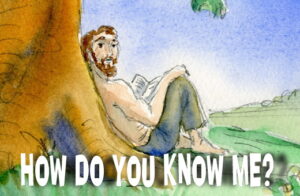 First Reading Daniel 7:9-10,13-14
First Reading Daniel 7:9-10,13-14
As I watched : Thrones were set up and the Ancient One took his throne. His clothing was bright as snow, and the hair on his head as white as wool ; His throne was flames of fire, with wheels of burning fire.
A surging stream of fire flowed out from where he sat; Thousands upon thousands were ministering to him, and myriads upon myriads attended him. The court was convened, and the books were opened.
As the visions during the night continued, I saw One like a son of man coming, on the clouds of heaven; When he reached the Ancient One and was presented before him,
He received dominion, glory, and kingship; nations and peoples of every language serve him. His dominion is an everlasting dominion that shall not be taken away, his kingship shall not be destroyed.
Gospel John 1:47-51
When Jesus saw Nathanael coming he said of him, ‘There is an Israelite who deserves the name, incapable of deceit.’ ‘How do you know me?’ said Nathanael. ‘Before Philip came to call you,’ said Jesus ‘I saw you under the fig tree.’ Nathanael answered, ‘Rabbi, you are the Son of God, you are the King of Israel.’ Jesus replied, ‘You believe that just because I said: I saw you under the fig tree. You will see greater things than that.’ And then he added ‘I tell you most solemnly, you will see heaven laid open and, above the Son of Man, the angels of God ascending and descending.’
28/09/2020 Monday of week 26 in Ordinary Time
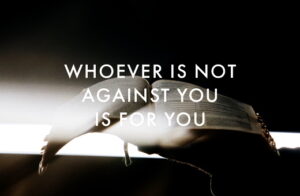 First Reading Job 1:6-22
First Reading Job 1:6-22
One day the Sons of God came to attend on the Lord, and among them was Satan. So the Lord said to Satan, ‘Where have you been?’ ‘Round the earth,’ he answered ‘roaming about.’ So the Lord asked him, ‘Did you notice my servant Job? There is no one like him on the earth: a sound and honest man who fears God and shuns evil.’ ‘Yes,’ Satan said ‘but Job is not God-fearing for nothing, is he? Have you not put a wall round him and his house and all his domain? You have blessed all he undertakes, and his flocks throng the countryside. But stretch out your hand and lay a finger on his possessions: I warrant you, he will curse you to your face.’ ‘Very well,’ the Lord said to Satan ‘all he has is in your power. But keep your hands off his person.’ So Satan left the presence of the Lord.
On the day when Job’s sons and daughters were at their meal and drinking wine at their eldest brother’s house, a messenger came to Job. ‘Your oxen’ he said ‘were at the plough, with the donkeys grazing at their side, when the Sabaeans swept down on them and carried them off. Your servants they put to the sword: I alone escaped to tell you.’ He had not finished speaking when another messenger arrived. ‘The fire of God’ he said ‘has fallen from the heavens and burnt up all your sheep, and your shepherds too: I alone escaped to tell you.’ He had not finished speaking when another messenger arrived. ‘The Chaldaeans,’ he said ‘three bands of them, have raided your camels and made off with them. Your servants they put to the sword: I alone escaped to tell you.’ He had not finished speaking when another messenger arrived. ‘Your sons and daughters’ he said ‘were at their meal and drinking wine at their eldest brother’s house, when suddenly from the wilderness a gale sprang up, and it battered all four corners of the house which fell in on the young people. They are dead: I alone escaped to tell you.’
Job rose and tore his gown and shaved his head. Then falling to the ground he worshipped and said:
‘Naked I came from my mother’s womb,
naked I shall return.
The Lord gave, the Lord has taken back.
Blessed be the name of the Lord!’
In all this misfortune Job committed no sin nor offered any insult to God.
Gospel Luke 9:46-50
An argument started between the disciples about which of them was the greatest. Jesus knew what thoughts were going through their minds, and he took a little child and set him by his side and then said to them, ‘Anyone who welcomes this little child in my name welcomes me; and anyone who welcomes me welcomes the one who sent me. For the least among you all, that is the one who is great.’
John spoke up. ‘Master,’ he said ‘we saw a man casting out devils in your name, and because he is not with us we tried to stop him.’ But Jesus said to him, ‘You must not stop him: anyone who is not against you is for you.’
27/09/20 26th Sunday in Ordinary Time
 First Reading Ezekiel 18:25-28
First Reading Ezekiel 18:25-28
The word of the Lord was addressed to me as follows: ‘You object, “What the Lord does is unjust.” Listen, you House of Israel: is what I do unjust? Is it not what you do that is unjust? When the upright man renounces his integrity to commit sin and dies because of this, he dies because of the evil that he himself has committed. When the sinner renounces sin to become law-abiding and honest, he deserves to live. He has chosen to renounce all his previous sins; he shall certainly live; he shall not die.’
Second Reading Philippians 2:1-11
Brothers and sisters: If there is any encouragement in Christ, any solace in love, any participation in the Spirit, any compassion and mercy,
complete my joy by being of the same mind, with the same love, united in heart, thinking one thing.
Do nothing out of selfishness or out of vainglory; rather, humbly regard others as more important than yourselves,
each looking out not for his own interests, but (also) everyone for those of others.
Have among yourselves the same attitude that is also yours in Christ Jesus,
Who, though he was in the form of God, did not regard equality with God something to be grasped.
Rather, he emptied himself, taking the form of a slave, coming in human likeness; and found human in appearance,
he humbled himself, becoming obedient to death, even death on a cross.
Because of this, God greatly exalted him and bestowed on him the name that is above every name,
that at the name of Jesus every knee should bend, of those in heaven and on earth and under the earth,
and every tongue confess that Jesus Christ is Lord, to the glory of God the Father.
Gospel Matthew 21:28-32
Jesus said to the chief priests and elders of the people, ‘What is your opinion? A man had two sons. He went and said to the first, “My boy, you go and work in the vineyard today.” He answered, “I will not go,” but afterwards thought better of it and went. The man then went and said the same thing to the second who answered, “Certainly, sir,” but did not go. Which of the two did the father’s will?’ ‘The first’ they said. Jesus said to them, ‘I tell you solemnly, tax collectors and prostitutes are making their way into the kingdom of God before you. For John came to you, a pattern of true righteousness, but you did not believe him, and yet the tax collectors and prostitutes did. Even after seeing that, you refused to think better of it and believe in him.’
26/9/20 Saturday of week 25 in Ordinary Time
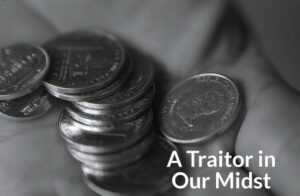 First Reading Ecclesiastes 11:9-12:8
First Reading Ecclesiastes 11:9-12:8
Rejoice, O young man, while you are young and let your heart be glad in the days of your youth. Follow the ways of your heart, the vision of your eyes ; Yet understand that as regards all this God will bring you to judgment.
Ward off grief from your heart and put away trouble from your presence, though the dawn of youth is fleeting.
Remember your Creator in the days of your youth, before the evil days come and the years approach of which you will say, I have no pleasure in them;
Before the sun is darkened. and the light, and the moon, and the stars, while the clouds return after the rain;
When the guardians of the house tremble, and the strong men are bent, And the grinders are idle because they are few, and they who look through the windows grow blind;
When the doors to the street are shut, and the sound of the mill is low; When one waits for the chirp of a bird, but all the daughters of song are suppressed;
And one fears heights, and perils in the street; When the almond tree blooms, and the locust grows sluggish and the caper berry is without effect, Because man goes to his lasting home, and mourners go about the streets;
Before the silver cord is snapped and the golden bowl is broken, And the pitcher is shattered at the spring, and the broken pulley falls into the well,
And the dust returns to the earth as it once was, and the life breath returns to God who gave it.
Vanity of vanities, says Qoheleth, all things are vanity!
Gospel Luke 9:43-45
At a time when everyone was full of admiration for all he did, Jesus said to his disciples, ‘For your part, you must have these words constantly in your mind: “The Son of Man is going to be handed over into the power of men.”’ But they did not understand him when he said this; it was hidden from them so that they should not see the meaning of it, and they were afraid to ask him about what he had just said.
25/9/20 Friday of week 25 in Ordinary Time

First Reading Ecclesiastes 3:1-11
There is an appointed time for everything, and a time for every thing under the heavens.
A time to be born, and a time to die; a time to plant, and a time to uproot the plant.
A time to kill, and a time to heal; a time to tear down, and a time to build.
A time to weep, and a time to laugh; a time to mourn, and a time to dance.
A time to scatter stones, and a time to gather them; a time to embrace, and a time to refrain from embraces.
A time to seek, and a time to lose; a time to keep, and a time to cast away.
A time to rend, and a time to sew; a time to be silent, and a time to speak.
A time to love, and a time to hate; a time of war, and a time of peace.
What advantage has the worker from his toil?
I have considered the task which God has appointed for men to be busied about.
He has made everything appropriate to its time, and has put the timeless into their hearts, without men’s ever discovering, from beginning to end, the work which God has done.
Gospel Luke 9:18-22
One day when Jesus was praying alone in the presence of his disciples he put this question to them, ‘Who do the crowds say I am?’ And they answered, ‘John the Baptist; others Elijah; and others say one of the ancient prophets come back to life.’ ‘But you,’ he said ‘who do you say I am?’ It was Peter who spoke up. ‘The Christ of God’ he said. But he gave them strict orders not to tell anyone anything about this.
‘The Son of Man’ he said ‘is destined to suffer grievously, to be rejected by the elders and chief priests and scribes and to be put to death, and to be raised up on the third day.’
24/9/20 Thursday of week 25 in Ordinary Time
 First Reading Ecclesiastes 1:2-11
First Reading Ecclesiastes 1:2-11
Vanity of vanities, the Preacher says. Vanity of vanities. All is vanity! For all his toil, his toil under the sun, what does man gain by it?
A generation goes, a generation comes, yet the earth stands firm for ever. The sun rises, the sun sets; then to its place it speeds and there it rises. Southward goes the wind, then turns to the north; it turns and turns again; back then to its circling goes the wind. Into the sea all the rivers go, and yet the sea is never filled, and still to their goal the rivers go. All things are wearisome. No man can say that eyes have not had enough of seeing, ears their fill of hearing. What was will be again; what has been done will be done again; and there is nothing new under the sun. Take anything of which it may be said, ‘Look now, this is new.’ Already, long before our time, it existed. Only no memory remains of earlier times, just as in times to come next year itself will not be remembered.
Gospel Luke 9:7-9
Herod the tetrarch had heard about all that was being done by Jesus; and he was puzzled, because some people were saying that John had risen from the dead, others that Elijah had reappeared, still others that one of the ancient prophets had come back to life. But Herod said, ‘John? I beheaded him. So who is this I hear such reports about?’ And he was anxious to see Jesus.
22/9/20 Tuesday of week 25 in Ordinary Time
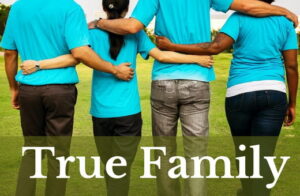 First Reading Proverbs 21:1-6,10-13
First Reading Proverbs 21:1-6,10-13
Like flowing water is the heart of the king in the hand of the Lord,
who turns it where he pleases.
A man’s conduct may strike him as upright,
the Lord, however, weighs the heart.
To act virtuously and with justice
is more pleasing to the Lord than sacrifice.
Haughty eye, proud heart,
lamp of the wicked, nothing but sin.
The hardworking man is thoughtful, and all is gain;
too much haste, and all that comes of it is want.
To make a fortune with the help of a lying tongue,
such the idle fantasy of those who look for death.
The wicked man’s soul is intent on evil,
he looks on his neighbour with dislike.
When a mocker is punished, the ignorant man grows wiser,
when a wise man is instructed he acquires more knowledge.
The Just One watches the house of the wicked:
he hurls the wicked to destruction.
He who shuts his ear to the poor man’s cry
shall himself plead and not be heard.
Gospel Luke 8:19-21
The mother and the brothers of Jesus came looking for him, but they could not get to him because of the crowd. He was told, ‘Your mother and brothers are standing outside and want to see you.’ But he said in answer, ‘My mother and my brothers are those who hear the word of God and put it into practice.’
21/9/20 Saint Matthew, Apostle, Evangelist
 First Reading Ephesians 4:1-7,11-13
First Reading Ephesians 4:1-7,11-13
I, the prisoner in the Lord, implore you to lead a life worthy of your vocation. Bear with one another charitably, in complete selflessness, gentleness and patience. Do all you can to preserve the unity of the Spirit by the peace that binds you together. There is one Body, one Spirit, just as you were all called into one and the same hope when you were called. There is one Lord, one faith, one baptism, and one God who is Father of all, over all, through all and within all.
Each one of us, however, has been given his own share of grace, given as Christ allotted it. To some, his gift was that they should be apostles; to some, prophets; to some, evangelists; to some, pastors and teachers; so that the saints together make a unity in the work of service, building up the body of Christ. In this way we are all to come to unity in our faith and in our knowledge of the Son of God, until we become the perfect Man, fully mature with the fullness of Christ himself.
Gospel Matthew 9:9-13
As Jesus was walking on, he saw a man named Matthew sitting by the customs house, and he said to him, ‘Follow me.’ And he got up and followed him.
While he was at dinner in the house it happened that a number of tax collectors and sinners came to sit at the table with Jesus and his disciples. When the Pharisees saw this, they said to his disciples, ‘Why does your master eat with tax collectors and sinners?’ When he heard this he replied, ‘It is not the healthy who need the doctor, but the sick. Go and learn the meaning of the words: What I want is mercy, not sacrifice. And indeed I did not come to call the virtuous, but sinners.’
20/9/20 25th Sunday in Ordinary Time
 First Reading Isaiah 55:6-9
First Reading Isaiah 55:6-9
Seek the Lord while he is still to be found, call to him while he is still near. Let the wicked man abandon his way, the evil man his thoughts. Let him turn back to the Lord who will take pity on him, to our God who is rich in forgiving; for my thoughts are not your thoughts, my ways not your ways – it is the Lord who speaks. Yes, the heavens are as high above earth as my ways are above your ways, my thoughts above your thoughts.
Second Reading Philippians 1:20-24,27
Christ will be glorified in my body, whether by my life or by my death. Life to me, of course, is Christ, but then death would bring me something more; but then again, if living in this body means doing work which is having good results – I do not know what I should choose. I am caught in this dilemma: I want to be gone and be with Christ, which would be very much the better, but for me to stay alive in this body is a more urgent need for your sake.
Avoid anything in your everyday lives that would be unworthy of the gospel of Christ.
Gospel Matthew 20:1-16
Jesus said to his disciples: ‘The kingdom of heaven is like a landowner going out at daybreak to hire workers for his vineyard. He made an agreement with the workers for one denarius a day, and sent them to his vineyard. Going out at about the third hour he saw others standing idle in the market place and said to them, “You go to my vineyard too and I will give you a fair wage.” So they went. At about the sixth hour and again at about the ninth hour, he went out and did the same. Then at about the eleventh hour he went out and found more men standing round, and he said to them, “Why have you been standing here idle all day?” “Because no one has hired us” they answered. He said to them, “You go into my vineyard too.” In the evening, the owner of the vineyard said to his bailiff, “Call the workers and pay them their wages, starting with the last arrivals and ending with the first.” So those who were hired at about the eleventh hour came forward and received one denarius each. When the first came, they expected to get more, but they too received one denarius each. They took it, but grumbled at the landowner. “The men who came last” they said “have done only one hour, and you have treated them the same as us, though we have done a heavy day’s work in all the heat.” He answered one of them and said, “My friend, I am not being unjust to you; did we not agree on one denarius? Take your earnings and go. I choose to pay the last comer as much as I pay you. Have I no right to do what I like with my own? Why be envious because I am generous?” Thus the last will be first, and the first, last.’
19/9/20 Saturday of week 24 in Ordinary Time
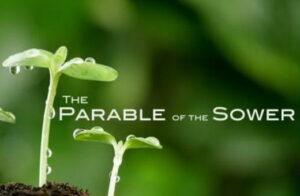 First Reading 1 Corinthians 15:35-37,42-49
First Reading 1 Corinthians 15:35-37,42-49
Someone may ask, ‘How are dead people raised, and what sort of body do they have when they come back?’ They are stupid questions. Whatever you sow in the ground has to die before it is given new life and the thing that you sow is not what is going to come; you sow a bare grain, say of wheat or something like that. It is the same with the resurrection of the dead: the thing that is sown is perishable but what is raised is imperishable; the thing that is sown is contemptible but what is raised is glorious; the thing that is sown is weak but what is raised is powerful; when it is sown it embodies the soul, when it is raised it embodies the spirit.
If the soul has its own embodiment, so does the spirit have its own embodiment. The first man, Adam, as scripture says, became a living soul; but the last Adam has become a life-giving spirit. That is, first the one with the soul, not the spirit, and after that, the one with the spirit. The first man, being from the earth, is earthly by nature; the second man is from heaven. As this earthly man was, so are we on earth; and as the heavenly man is, so are we in heaven. And we, who have been modelled on the earthly man, will be modelled on the heavenly man.
Gospel Luke 8:4-15
With a large crowd gathering and people from every town finding their way to him, Jesus used this parable:
‘A sower went out to sow his seed. As he sowed, some fell on the edge of the path and was trampled on; and the birds of the air ate it up. Some seed fell on rock, and when it came up it withered away, having no moisture. Some seed fell amongst thorns and the thorns grew with it and choked it. And some seed fell into rich soil and grew and produced its crop a hundredfold.’ Saying this he cried, ‘Listen, anyone who has ears to hear!’
His disciples asked him what this parable might mean, and he said, ‘The mysteries of the kingdom of God are revealed to you; for the rest there are only parables, so that
they may see but not perceive,
listen but not understand.
‘This, then, is what the parable means: the seed is the word of God. Those on the edge of the path are people who have heard it, and then the devil comes and carries away the word from their hearts in case they should believe and be saved. Those on the rock are people who, when they first hear it, welcome the word with joy. But these have no root; they believe for a while, and in time of trial they give up. As for the part that fell into thorns, this is people who have heard, but as they go on their way they are choked by the worries and riches and pleasures of life and do not reach maturity. As for the part in the rich soil, this is people with a noble and generous heart who have heard the word and take it to themselves and yield a harvest through their perseverance.’
18/9/20 Friday of week 24 in Ordinary Time
 First Reading 1 Corinthians 15:12-20
First Reading 1 Corinthians 15:12-20
Now if Christ raised from the dead is what has been preached, how can some of you be saying that there is no resurrection of the dead? If there is no resurrection of the dead, Christ himself cannot have been raised, and if Christ has not been raised then our preaching is useless and your believing it is useless; indeed, we are shown up as witnesses who have committed perjury before God, because we swore in evidence before God that he had raised Christ to life. For if the dead are not raised, Christ has not been raised, and if Christ has not been raised, you are still in your sins. And what is more serious, all who have died in Christ have perished. If our hope in Christ has been for this life only, we are the most unfortunate of all people.
But Christ has in fact been raised from the dead, the first-fruits of all who have fallen asleep.
Gospel Luke 8:1-3
Jesus made his way through towns and villages preaching, and proclaiming the Good News of the kingdom of God. With him went the Twelve, as well as certain women who had been cured of evil spirits and ailments: Mary surnamed the Magdalene, from whom seven demons had gone out, Joanna the wife of Herod’s steward Chuza, Susanna, and several others who provided for them out of their own resources.
17/9/20 Thursday of week 24 in Ordinary Time
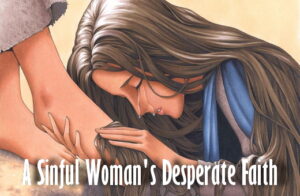 First Reading 1 Corinthians 15:1-11
First Reading 1 Corinthians 15:1-11
Brothers, I want to remind you of the gospel I preached to you, the gospel that you received and in which you are firmly established; because the gospel will save you only if you keep believing exactly what I preached to you – believing anything else will not lead to anything.
Well then, in the first place, I taught you what I had been taught myself, namely that Christ died for our sins, in accordance with the scriptures; that he was buried; and that he was raised to life on the third day, in accordance with the scriptures; that he appeared first to Cephas and secondly to the Twelve. Next he appeared to more than five hundred of the brothers at the same time, most of whom are still alive, though some have died; then he appeared to James, and then to all the apostles; and last of all he appeared to me too; it was as though I was born when no one expected it.
I am the least of the apostles; in fact, since I persecuted the Church of God, I hardly deserve the name apostle; but by God’s grace that is what I am, and the grace that he gave me has not been fruitless. On the contrary, I, or rather the grace of God that is with me, have worked harder than any of the others; but what matters is that I preach what they preach, and this is what you all believed.
Gospel Luke 7:36-50
One of the Pharisees invited Jesus to a meal. When he arrived at the Pharisee’s house and took his place at table, a woman came in, who had a bad name in the town. She had heard he was dining with the Pharisee and had brought with her an alabaster jar of ointment. She waited behind him at his feet, weeping, and her tears fell on his feet, and she wiped them away with her hair; then she covered his feet with kisses and anointed them with the ointment.
When the Pharisee who had invited him saw this, he said to himself, ‘If this man were a prophet, he would know who this woman is that is touching him and what a bad name she has.’ Then Jesus took him up and said, ‘Simon, I have something to say to you.’ ‘Speak, Master’ was the reply. ‘There was once a creditor who had two men in his debt; one owed him five hundred denarii, the other fifty. They were unable to pay, so he pardoned them both. Which of them will love him more?’ ‘The one who was pardoned more, I suppose’ answered Simon. Jesus said, ‘You are right.’
Then he turned to the woman. ‘Simon,’ he said ‘you see this woman? I came into your house, and you poured no water over my feet, but she has poured out her tears over my feet and wiped them away with her hair. You gave me no kiss, but she has been covering my feet with kisses ever since I came in. You did not anoint my head with oil, but she has anointed my feet with ointment. For this reason I tell you that her sins, her many sins, must have been forgiven her, or she would not have shown such great love. It is the man who is forgiven little who shows little love.’ Then he said to her, ‘Your sins are forgiven.’ Those who were with him at table began to say to themselves, ‘Who is this man, that he even forgives sins?’ But he said to the woman, ‘Your faith has saved you; go in peace.’
16/9/20 Wednesday of week 24 in Ordinary Time
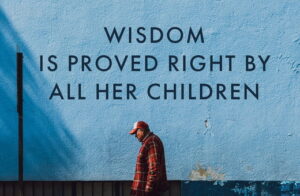 First Reading 1 Corinthians 12:31-13:13
First Reading 1 Corinthians 12:31-13:13
Be ambitious for the higher gifts. And I am going to show you a way that is better than any of them.
If I have all the eloquence of men or of angels, but speak without love, I am simply a gong booming or a cymbal clashing. If I have the gift of prophecy, understanding all the mysteries there are, and knowing everything, and if I have faith in all its fullness, to move mountains, but without love, then I am nothing at all. If I give away all that I possess, piece by piece, and if I even let them take my body to burn it, but am without love, it will do me no good whatever.
Love is always patient and kind; it is never jealous; love is never boastful or conceited; it is never rude or selfish; it does not take offence, and is not resentful. Love takes no pleasure in other people’s sins but delights in the truth; it is always ready to excuse, to trust, to hope, and to endure whatever comes.
Love does not come to an end. But if there are gifts of prophecy, the time will come when they must fail; or the gift of languages, it will not continue for ever; and knowledge – for this, too, the time will come when it must fail. For our knowledge is imperfect and our prophesying is imperfect; but once perfection comes, all imperfect things will disappear. When I was a child, I used to talk like a child, and think like a child, and argue like a child, but now I am a man, all childish ways are put behind me. Now we are seeing a dim reflection in a mirror; but then we shall be seeing face to face. The knowledge that I have now is imperfect; but then I shall know as fully as I am known.
In short, there are three things that last: faith, hope and love; and the greatest of these is love.
Gospel Luke 7:31-35
Jesus said to the people:
‘What description can I find for the men of this generation? What are they like? They are like children shouting to one another while they sit in the market-place:
‘“We played the pipes for you, and you wouldn’t dance; we sang dirges, and you wouldn’t cry.”
‘For John the Baptist comes, not eating bread, not drinking wine, and you say, “He is possessed.” The Son of Man comes, eating and drinking, and you say, “Look, a glutton and a drunkard, a friend of tax collectors and sinners.” Yet Wisdom has been proved right by all her children.’
15/9/20 Our Lady of Sorrows
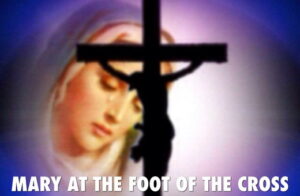 First Reading 1 Corinthians 12:12-14,27-31
First Reading 1 Corinthians 12:12-14,27-31
Just as a human body, though it is made up of many parts, is a single unit because all these parts, though many, make one body, so it is with Christ. In the one Spirit we were all baptised, Jews as well as Greeks, slaves as well as citizens, and one Spirit was given to us all to drink.
Nor is the body to be identified with any one of its many parts. Now you together are Christ’s body; but each of you is a different part of it. In the Church, God has given the first place to apostles, the second to prophets, the third to teachers; after them, miracles, and after them the gift of healing; helpers, good leaders, those with many languages. Are all of them apostles, or all of them prophets, or all of them teachers? Do they all have the gift of miracles, or all have the gift of healing? Do all speak strange languages, and all interpret them? Be ambitious for the higher gifts.
Gospel John 19:25-27
Near the cross of Jesus stood his mother and his mother’s sister, Mary the wife of Clopas, and Mary of Magdala. Seeing his mother and the disciple he loved standing near her, Jesus said to his mother, ‘Woman, this is your son.’ Then to the disciple he said, ‘This is your mother.’ And from that moment the disciple made a place for her in his home.
九月十四日 光榮十字聖架
 讀經一(那些被蛇咬了的人,一瞻仰銅蛇,就保存了生命。)
讀經一(那些被蛇咬了的人,一瞻仰銅蛇,就保存了生命。)
恭讀戶籍紀 21:4-9
那時候,以色列子民在曠野,很不耐煩。
他們抱怨天主和梅瑟,說:「你們為什麼領我們由埃及上來,死在曠野?這裡沒有糧食,又沒有水,我們對這些輕淡的食物,已感厭惡。」
上主就打發火蛇,到人民當中,咬死了許多以色列人。人民於是來到梅瑟面前,說:「我們犯了罪,抱怨了上主和你;請你轉求上主,給我們趕走這些蛇。」梅瑟於是為人民轉求。
上主對梅瑟說:「你做一條火蛇,掛在木竿上;凡是被咬的,一瞻仰牠,必得生存。」 梅瑟就做了一條銅蛇,掛在木竿上;那些被蛇咬了的人,一瞻仰銅蛇,就保存了生命。
福音(人子也應照樣被舉起來。)
恭讀聖若望福音 3:13-17
那時候,耶穌對尼苛德摩說:
「沒有人上過天,除了那自天降下,而仍在天上的人子。正如梅瑟曾在曠野裡高舉了蛇,人子也應照樣,被舉起來,使凡信的人,在他內獲得永生。」
天主竟然這樣愛了世界,甚至賜下了自己的獨生子,使凡信他的人,不至喪亡,反而獲得永生,因為天主沒有派遣子到世界上來,審判世界,而是為叫世界,藉著他而獲救。
13/9/20 24th Sunday in Ordinary Time
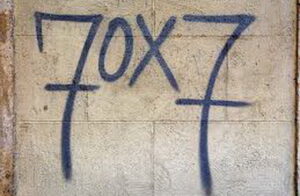 First Reading Ecclesiasticus 27:33-28:9
First Reading Ecclesiasticus 27:33-28:9
Resentment and anger, these are foul things, and both are found with the sinner. He who exacts vengeance will experience the vengeance of the Lord, who keeps strict account of sin. Forgive your neighbour the hurt he does you, and when you pray, your sins will be forgiven. If a man nurses anger against another, can he then demand compassion from the Lord? Showing no pity for a man like himself, can he then plead for his own sins? Mere creature of flesh, he cherishes resentment; who will forgive him his sins? Remember the last things, and stop hating, remember dissolution and death, and live by the commandments. Remember the commandments, and do not bear your neighbour ill-will; remember the covenant of the Most High, and overlook the offence.
Second Reading Romans 14:7-9
The life and death of each of us has its influence on others; if we live, we live for the Lord; and if we die, we die for the Lord, so that alive or dead we belong to the Lord. This explains why Christ both died and came to life: it was so that he might be Lord both of the dead and of the living.
Gospel Matthew 18:21-35
Peter went up to Jesus and said, ‘Lord, how often must I forgive my brother if he wrongs me? As often as seven times?’ Jesus answered, ‘Not seven, I tell you, but seventy-seven times.
‘And so the kingdom of heaven may be compared to a king who decided to settle his accounts with his servants. When the reckoning began, they brought him a man who owed ten thousand talents; but he had no means of paying, so his master gave orders that he should be sold, together with his wife and children and all his possessions, to meet the debt. At this, the servant threw himself down at his master’s feet. “Give me time” he said “and I will pay the whole sum.” And the servant’s master felt so sorry for him that he let him go and cancelled the debt. Now as this servant went out, he happened to meet a fellow servant who owed him one hundred denarii; and he seized him by the throat and began to throttle him. “Pay what you owe me” he said. His fellow servant fell at his feet and implored him, saying, “Give me time and I will pay you.” But the other would not agree; on the contrary, he had him thrown into prison till he should pay the debt. His fellow servants were deeply distressed when they saw what had happened, and they went to their master and reported the whole affair to him. Then the master sent for him. “You wicked servant,” he said “I cancelled all that debt of yours when you appealed to me. Were you not bound, then, to have pity on your fellow servant just as I had pity on you?” And in his anger the master handed him over to the torturers till he should pay all his debt. And that is how my heavenly Father will deal with you unless you each forgive your brother from your heart.’
12/9/20 Saturday of week 23 in Ordinary Time
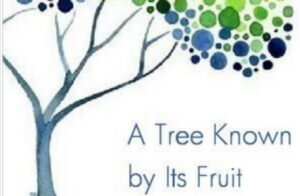 First Reading 1 Corinthians 10:14-22
First Reading 1 Corinthians 10:14-22
My dear brothers, you must keep clear of idolatry. I say to you as sensible people: judge for yourselves what I am saying. The blessing-cup that we bless is a communion with the blood of Christ, and the bread that we break is a communion with the body of Christ. The fact that there is only one loaf means that, though there are many of us, we form a single body because we all have a share in this one loaf. Look at the other Israel, the race, where those who eat the sacrifices are in communion with the altar.
Does this mean that the food sacrificed to idols has a real value, or that the idol itself is real? Not at all. It simply means that the sacrifices that they offer they sacrifice to demons who are not God. I have no desire to see you in communion with demons. You cannot drink the cup of the Lord and the cup of demons. You cannot take your share at the table of the Lord and at the table of demons. Do we want to make the Lord angry; are we stronger than he is?
Gospel Luke 6:43-49
Jesus said to his disciples:
‘There is no sound tree that produces rotten fruit, nor again a rotten tree that produces sound fruit. For every tree can be told by its own fruit: people do not pick figs from thorns, nor gather grapes from brambles. A good man draws what is good from the store of goodness in his heart; a bad man draws what is bad from the store of badness. For a man’s words flow out of what fills his heart.
‘Why do you call me, “Lord, Lord” and not do what I say?
‘Everyone who comes to me and listens to my words and acts on them – I will show you what he is like. He is like the man who when he built his house dug, and dug deep, and laid the foundations on rock; when the river was in flood it bore down on that house but could not shake it, it was so well built. But the one who listens and does nothing is like the man who built his house on soil, with no foundations: as soon as the river bore down on it, it collapsed; and what a ruin that house became!’
11/9/20 Friday of week 23 in Ordinary Time
 First Reading 1 Corinthians 9:16-19,22-27
First Reading 1 Corinthians 9:16-19,22-27
I do not boast of preaching the gospel, since it is a duty which has been laid on me; I should be punished if I did not preach it! If I had chosen this work myself, I might have been paid for it, but as I have not, it is a responsibility which has been put into my hands. Do you know what my reward is? It is this: in my preaching, to be able to offer the Good News free, and not insist on the rights which the gospel gives me.
So though I am not a slave of any man I have made myself the slave of everyone so as to win as many as I could. I made myself all things to all men in order to save some at any cost; and I still do this, for the sake of the gospel, to have a share in its blessings.
All the runners at the stadium are trying to win, but only one of them gets the prize. You must run in the same way, meaning to win. All the fighters at the games go into strict training; they do this just to win a wreath that will wither away, but we do it for a wreath that will never wither. That is how I run, intent on winning; that is how I fight, not beating the air. I treat my body hard and make it obey me, for, having been an announcer myself, I should not want to be disqualified.
Gospel Luke 6:39-42
Jesus told a parable to the disciples: ‘Can one blind man guide another? Surely both will fall into a pit? The disciple is not superior to his teacher; the fully trained disciple will always be like his teacher. Why do you observe the splinter in your brother’s eye and never notice the plank in your own? How can you say to your brother, “Brother, let me take out the splinter that is in your eye,” when you cannot see the plank in your own? Hypocrite! Take the plank out of your own eye first, and then you will see clearly enough to take out the splinter that is in your brother’s eye.’
10/9/20 Thursday of week 23 in Ordinary Time
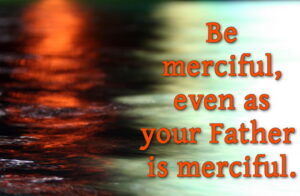 First Reading 1 Corinthians 8:1-7,11-13
First Reading 1 Corinthians 8:1-7,11-13
Now about food sacrificed to idols. ‘We all have knowledge’; yes, that is so, but knowledge gives self-importance – it is love that makes the building grow. A man may imagine he understands something, but still not understand anything in the way that he ought to. But any man who loves God is known by him. Well then, about eating food sacrificed to idols: we know that idols do not really exist in the world and that there is no god but the One. And even if there were things called gods, either in the sky or on earth – where there certainly seem to be ‘gods’ and ‘lords’ in plenty – still for us there is one God, the Father, from whom all things come and for whom we exist; and there is one Lord, Jesus Christ, through whom all things come and through whom we exist.
Some people, however, do not have this knowledge. There are some who have been so long used to idols that they eat this food as though it really had been sacrificed to the idol, and their conscience, being weak, is defiled by it. In this way your knowledge could become the ruin of someone weak, of a brother for whom Christ died. By sinning in this way against your brothers, and injuring their weak consciences, it would be Christ against whom you sinned. That is why, since food can be the occasion of my brother’s downfall, I shall never eat meat again in case I am the cause of a brother’s downfall.
Gospel Luke 6:27-38
Jesus said to his disciples: ‘I say this to you who are listening: Love your enemies, do good to those who hate you, bless those who curse you, pray for those who treat you badly. To the man who slaps you on one cheek, present the other cheek too; to the man who takes your cloak from you, do not refuse your tunic. Give to everyone who asks you, and do not ask for your property back from the man who robs you. Treat others as you would like them to treat you. If you love those who love you, what thanks can you expect? Even sinners love those who love them. And if you do good to those who do good to you, what thanks can you expect? For even sinners do that much. And if you lend to those from whom you hope to receive, what thanks can you expect? Even sinners lend to sinners to get back the same amount. Instead, love your enemies and do good, and lend without any hope of return. You will have a great reward, and you will be sons of the Most High, for he himself is kind to the ungrateful and the wicked.
‘Be compassionate as your Father is compassionate. Do not judge, and you will not be judged yourselves; do not condemn, and you will not be condemned yourselves; grant pardon, and you will be pardoned. Give, and there will be gifts for you: a full measure, pressed down, shaken together, and running over, will be poured into your lap; because the amount you measure out is the amount you will be given back.’
9/9/20 Wednesday of week 23 in Ordinary Time
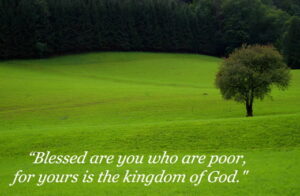 First Reading 1 Corinthians 7:25-31
First Reading 1 Corinthians 7:25-31
About remaining celibate, I have no directions from the Lord but give my own opinion as one who, by the Lord’s mercy, has stayed faithful. Well then, I believe that in these present times of stress this is right: that it is good for a man to stay as he is. If you are tied to a wife, do not look for freedom; if you are free of a wife, then do not look for one. But if you marry, it is no sin, and it is not a sin for a young girl to get married. They will have their troubles, though, in their married life, and I should like to spare you that.
Brothers, this is what I mean: our time is growing short. Those who have wives should live as though they had none, and those who mourn should live as though they had nothing to mourn for; those who are enjoying life should live as though there were nothing to laugh about; those whose life is buying things should live as though they had nothing of their own; and those who have to deal with the world should not become engrossed in it. I say this because the world as we know it is passing away.
Gospel Luke 6:20-26
Fixing his eyes on his disciples Jesus said:
‘How happy are you who are poor: yours is the kingdom of God.
Happy you who are hungry now: you shall be satisfied.
Happy you who weep now: you shall laugh.
Happy are you when people hate you, drive you out, abuse you, denounce your name as criminal, on account of the Son of Man. Rejoice when that day comes and dance for joy, for then your reward will be great in heaven. This was the way their ancestors treated the prophets.
‘But alas for you who are rich: you are having your consolation now.
Alas for you who have your fill now: you shall go hungry.
Alas for you who laugh now: you shall mourn and weep.
‘Alas for you when the world speaks well of you! This was the way their ancestors treated the false prophets.’
8/9/20 The Birthday of the Blessed Virgin Mary
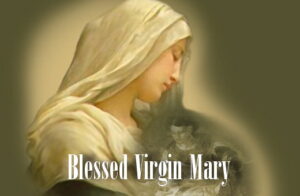 First Reading Micah 5:1-4
First Reading Micah 5:1-4
The Lord says this: But you, Bethlehem Ephrathah, the least of the clans of Judah, out of you will be born for me the one who is to rule over Israel; his origin goes back to the distant past, to the days of old. The Lord is therefore going to abandon them till the time when she who is to give birth gives birth. Then the remnant of his brothers will come back to the sons of Israel. He will stand and feed his flock with the power of the Lord, with the majesty of the name of his God. They will live secure, for from then on he will extend his power to the ends of the land. He himself will be peace.
Gospel Matthew 1:1-16,18-23
The Book of the genealogy of Jesus Christ, the son of David, the son of Abraham.
Abraham became the father of Isaac, Isaac the father of Jacob, Jacob the father of Judah and his brothers.
Judah became the father of Perez and Zerah, whose mother was Tamar. Perez became the father of Hezron, Hezron the father of Ram,
Ram the father of Amminadab. Amminadab became the father of Nahshon, Nahshon the father of Salmon,
Salmon the father of Boaz, whose mother was Rahab. Boaz became the father of Obed, whose mother was Ruth. Obed became the father of Jesse,
Jesse the father of David the king. David became the father of Solomon, whose mother had been the wife of Uriah.
Solomon became the father of Rehoboam, Rehoboam the father of Abijah, Abijah the father of Asaph.
Asaph became the father of Jehoshaphat, Jehoshaphat the father of Joram, Joram the father of Uzziah.
Uzziah became the father of Jotham, Jotham the father of Ahaz, Ahaz the father of Hezekiah.
Hezekiah became the father of Manasseh, Manasseh the father of Amos, Amos the father of Josiah.
Josiah became the father of Jechoniah and his brothers at the time of the Babylonian exile.
After the Babylonian exile, Jechoniah became the father of Shealtiel, Shealtiel the father of Zerubbabel,
Zerubbabel the father of Abiud. Abiud became the father of Eliakim, Eliakim the father of Azor,
Azor the father of Zadok. Zadok became the father of Achim, Achim the father of Eliud,
Eliud the father of Eleazar. Eleazar became the father of Matthan, Matthan the father of Jacob,
Jacob the father of Joseph, the husband of Mary. Of her was born Jesus who is called the Messiah.
Now this is how the birth of Jesus Christ came about. When his mother Mary was betrothed to Joseph, but before they lived together, she was found with child through the holy Spirit.
Joseph her husband, since he was a righteous man, yet unwilling to expose her to shame, decided to divorce her quietly.
Such was his intention when, behold, the angel of the Lord appeared to him in a dream and said, “Joseph, son of David, do not be afraid to take Mary your wife into your home. For it is through the holy Spirit that this child has been conceived in her.
She will bear a son and you are to name him Jesus, because he will save his people from their sins.”
All this took place to fulfill what the Lord had said through the prophet:
Behold, the virgin shall be with child and bear a son, and they shall name him Emmanuel, which means “God is with us.”
7/9/20 Monday of week 23 in Ordinary Time
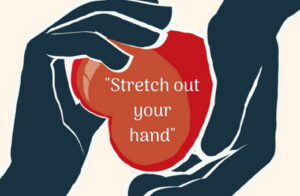 First Reading 1 Corinthians 5:1-8
First Reading 1 Corinthians 5:1-8
I have been told as an undoubted fact that one of you is living with his father’s wife. This is a case of sexual immorality among you that must be unparalleled even among pagans. How can you be so proud of yourselves? You should be in mourning. A man who does a thing like that ought to have been expelled from the community. Though I am far away in body, I am with you in spirit, and have already condemned the man who did this thing as if I were actually present. When you are assembled together in the name of the Lord Jesus, and I am spiritually present with you, then with the power of our Lord Jesus he is to be handed over to Satan so that his sensual body may be destroyed and his spirit saved on the day of the Lord.
The pride that you take in yourselves is hardly to your credit. You must know how even a small amount of yeast is enough to leaven all the dough, so get rid of all the old yeast, and make yourselves into a completely new batch of bread, unleavened as you are meant to be. Christ, our passover, has been sacrificed; let us celebrate the feast, then, by getting rid of all the old yeast of evil and wickedness, having only the unleavened bread of sincerity and truth.
Gospel Luke 6:6-11
On the sabbath Jesus went into the synagogue and began to teach, and a man was there whose right hand was withered. The scribes and the Pharisees were watching him to see if he would cure a man on the sabbath, hoping to find something to use against him. But he knew their thoughts; and he said to the man with the withered hand, ‘Stand up! Come out into the middle.’ And he came out and stood there. Then Jesus said to them, ‘I put it to you: is it against the law on the sabbath to do good, or to do evil; to save life, or to destroy it?’ Then he looked round at them all and said to the man, ‘Stretch out your hand.’ He did so, and his hand was better. But they were furious, and began to discuss the best way of dealing with Jesus.
5/9/20 Saturday of week 22 in Ordinary Time
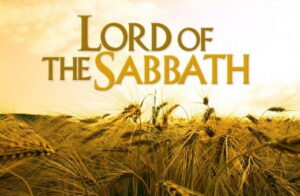 First Reading 1 Corinthians 4:6-15
First Reading 1 Corinthians 4:6-15
Take Apollos and myself as an example and remember the maxim: ‘Keep to what is written.’ It is not for you, so full of your own importance, to go taking sides for one man against another. In any case, brother, has anybody given you some special right? What do you have that was not given to you? And if it was given, how can you boast as though it were not? Is it that you have everything you want – that you are rich already, in possession of your kingdom, with us left outside? Indeed I wish you were really kings, and we could be kings with you! But instead, it seems to me, God has put us apostles at the end of his parade, with the men sentenced to death; it is true – we have been put on show in front of the whole universe, angels as well as men. Here we are, fools for the sake of Christ, while you are the learned men in Christ; we have no power, but you are influential; you are celebrities, we are nobodies. To this day, we go without food and drink and clothes; we are beaten and have no homes; we work for our living with our own hands. When we are cursed, we answer with a blessing; when we are hounded, we put up with it; we are insulted and we answer politely. We are treated as the offal of the world, still to this day, the scum of the earth.
I am saying all this not just to make you ashamed but to bring you, as my dearest children, to your senses. You might have thousands of guardians in Christ, but not more than one father and it was I who begot you in Christ Jesus by preaching the Good News.
Gospel Luke 6:1-5
One sabbath Jesus happened to be taking a walk through the cornfields, and his disciples were picking ears of corn, rubbing them in their hands and eating them. Some of the Pharisees said, ‘Why are you doing something that is forbidden on the sabbath day?’ Jesus answered them, ‘So you have not read what David did when he and his followers were hungry how he went into the house of God, took the loaves of offering and ate them and gave them to his followers, loaves which only the priests are allowed to eat?’ And he said to them, ‘The Son of Man is master of the sabbath.’
4/9/20 Friday of week 22 in Ordinary Time
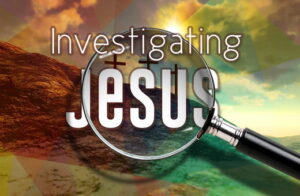 First Reading 1 Corinthians 4:1-5
First Reading 1 Corinthians 4:1-5
People must think of us as Christ’s servants, stewards entrusted with the mysteries of God. What is expected of stewards is that each one should be found worthy of his trust. Not that it makes the slightest difference to me whether you, or indeed any human tribunal, find me worthy or not. I will not even pass judgement on myself. True, my conscience does not reproach me at all, but that does not prove that I am acquitted: the Lord alone is my judge. There must be no passing of premature judgement. Leave that until the Lord comes; he will light up all that is hidden in the dark and reveal the secret intentions of men’s hearts. Then will be the time for each one to have whatever praise he deserves, from God.
Gospel Luke 5:33-39
The Pharisees and the scribes said to Jesus, ‘John’s disciples are always fasting and saying prayers, and the disciples of the Pharisees too, but yours go on eating and drinking.’ Jesus replied, ‘Surely you cannot make the bridegroom’s attendants fast while the bridegroom is still with them? But the time will come, the time for the bridegroom to be taken away from them; that will be the time when they will fast.’
He also told them this parable, ‘No one tears a piece from a new cloak to put it on an old cloak; if he does, not only will he have torn the new one, but the piece taken from the new will not match the old.
‘And nobody puts new wine into old skins; if he does, the new wine will burst the skins and then run out, and the skins will be lost. No; new wine must be put into fresh skins. And nobody who has been drinking old wine wants new. “The old is good” he says.’
3/9/20 Saint Gregory the Great Thursday of week 22 in Ordinary Time
 First Reading 1 Corinthians 3:18-23
First Reading 1 Corinthians 3:18-23
Make no mistake about it: if any one of you thinks of himself as wise, in the ordinary sense of the word, then he must learn to be a fool before he really can be wise. Why? Because the wisdom of this world is foolishness to God. As scripture says: The Lord knows wise men’s thoughts: he knows how useless they are; or again: God is not convinced by the arguments of the wise. So there is nothing to boast about in anything human: Paul, Apollos, Cephas, the world, life and death, the present and the future, are all your servants; but you belong to Christ and Christ belongs to God.
Gospel Luke 5:1-11
Jesus was standing one day by the Lake of Gennesaret, with the crowd pressing round him listening to the word of God, when he caught sight of two boats close to the bank. The fishermen had gone out of them and were washing their nets. He got into one of the boats – it was Simon’s – and asked him to put out a little from the shore. Then he sat down and taught the crowds from the boat.
When he had finished speaking he said to Simon, ‘Put out into deep water and pay out your nets for a catch.’ ‘Master,’ Simon replied, ‘we worked hard all night long and caught nothing, but if you say so, I will pay out the nets.’ And when they had done this they netted such a huge number of fish that their nets began to tear, so they signalled to their companions in the other boat to come and help them; when these came, they filled the two boats to sinking point.
When Simon Peter saw this he fell at the knees of Jesus saying, ‘Leave me, Lord; I am a sinful man.’ For he and all his companions were completely overcome by the catch they had made; so also were James and John, sons of Zebedee, who were Simon’s partners. But Jesus said to Simon, ‘Do not be afraid; from now on it is men you will catch.’ Then, bringing their boats back to land, they left everything and followed him.
2/9/20 Wednesday of week 22 in Ordinary Time
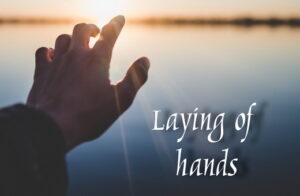 First Reading 1 Corinthians 3:1-9
First Reading 1 Corinthians 3:1-9
Brothers, I myself was unable to speak to you as people of the Spirit: I treated you as sensual men, still infants in Christ. What I fed you with was milk, not solid food, for you were not ready for it; and indeed, you are still not ready for it since you are still unspiritual. Isn’t that obvious from all the jealousy and wrangling that there is among you, from the way that you go on behaving like ordinary people? What could be more unspiritual than your slogans, ‘I am for Paul’ and ‘I am for Apollos’?
After all, what is Apollos and what is Paul? They are servants who brought the faith to you. Even the different ways in which they brought it were assigned to them by the Lord. I did the planting, Apollos did the watering, but God made things grow. Neither the planter nor the waterer matters: only God, who makes things grow. It is all one who does the planting and who does the watering, and each will duly be paid according to his share in the work. We are fellow workers with God; you are God’s farm, God’s building.
Gospel Luke 4:38-44
Leaving the synagogue, Jesus went to Simon’s house. Now Simon’s mother-in-law was suffering from a high fever and they asked him to do something for her. Leaning over her he rebuked the fever and it left her. And she immediately got up and began to wait on them.
At sunset all those who had friends suffering from diseases of one kind or another brought them to him, and laying his hands on each he cured them. Devils too came out of many people, howling, ‘You are the Son of God.’ But he rebuked them and would not allow them to speak because they knew that he was the Christ.
When daylight came he left the house and made his way to a lonely place. The crowds went to look for him, and when they had caught up with him they wanted to prevent him leaving them, but he answered, ‘I must proclaim the Good News of the kingdom of God to the other towns too, because that is what I was sent to do.’ And he continued his preaching in the synagogues of Judaea.
1/9/20 Tuesday of week 22 in Ordinary Time
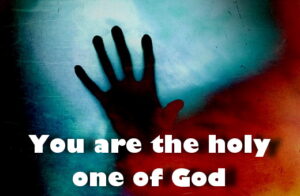 First Reading 1 Corinthians 2:10-16
First Reading 1 Corinthians 2:10-16
The Spirit reaches the depths of everything, even the depths of God. After all, the depths of a man can only be known by his own spirit, not by any other man, and in the same way the depths of God can only be known by the Spirit of God. Now instead of the spirit of the world, we have received the Spirit that comes from God, to teach us to understand the gifts that he has given us. Therefore we teach, not in the way in which philosophy is taught, but in the way that the Spirit teaches us: we teach spiritual things spiritually. An unspiritual person is one who does not accept anything of the Spirit of God: he sees it all as nonsense; it is beyond his understanding because it can only be understood by means of the Spirit. A spiritual man, on the other hand, is able to judge the value of everything, and his own value is not to be judged by other men. As scripture says: Who can know the mind of the Lord, so who can teach him? But we are those who have the mind of Christ.
Gospel Luke 4:31-37
Jesus went down to Capernaum, a town in Galilee, and taught them on the sabbath. And his teaching made a deep impression on them because he spoke with authority.
In the synagogue there was a man who was possessed by the spirit of an unclean devil, and it shouted at the top of its voice, ‘Ha! What do you want with us, Jesus of Nazareth? Have you come to destroy us? I know who you are: the Holy One of God.’ But Jesus said sharply, ‘Be quiet! Come out of him!’ And the devil, throwing the man down in front of everyone, went out of him without hurting him at all. Astonishment seized them and they were all saying to one another, ‘What teaching! He gives orders to unclean spirits with authority and power and they come out.’ And reports of him went all through the surrounding countryside.

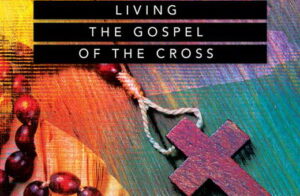 And you who are reading this today, what will you do? Do you not think that God calls you into his service? What have you already done for God in your life? Is it not time to prefer God to your father and mother, to your sons and daughters? The Lord needs you for his Church! It is time! Wait no longer! It is now or never! Who among you will be the next priest of the Lord, even if your father or mother have other plans for you? Who will be the next monk or nun who will leave his or her parents to gain brothers and sisters in Jesus Christ? Who will say “YES” to the Lord’s call in the year 2002?
And you who are reading this today, what will you do? Do you not think that God calls you into his service? What have you already done for God in your life? Is it not time to prefer God to your father and mother, to your sons and daughters? The Lord needs you for his Church! It is time! Wait no longer! It is now or never! Who among you will be the next priest of the Lord, even if your father or mother have other plans for you? Who will be the next monk or nun who will leave his or her parents to gain brothers and sisters in Jesus Christ? Who will say “YES” to the Lord’s call in the year 2002? If God calls you into his service, look at how much good you can accomplish with the help of his grace! All who will receive you as a servant of the Lord will be rewarded by God himself! Is this not wonderful? Is this not an extraordinary service that you can provide to those around you? So who would still hesitate? Who would not rush to consecrate himself to God for his entire life, knowing that he can accomplish so much good for the entire world? Where is the noble heart that would betray itself by refusing to hear the Lord’s call?
If God calls you into his service, look at how much good you can accomplish with the help of his grace! All who will receive you as a servant of the Lord will be rewarded by God himself! Is this not wonderful? Is this not an extraordinary service that you can provide to those around you? So who would still hesitate? Who would not rush to consecrate himself to God for his entire life, knowing that he can accomplish so much good for the entire world? Where is the noble heart that would betray itself by refusing to hear the Lord’s call?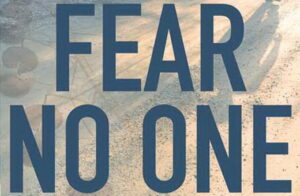 In the Gospel reading for this Sunday Jesus says, “Do not let others intimidate you.” He tells us to keep our priorities straight. He tells us that we should not even be afraid of people who could kill us. “Do not fear those who deprive the body of life but cannot destroy the soul.” In one of the most beautiful passages in the New Testament, Jesus says, “Are not two sparrows sold for next to nothing? Yet not a single sparrow falls to the ground without your Father’s consent. As for you, every hair of your head has been counted; so do not be afraid of anything. You are worth more than an entire flock of sparrows.”
In the Gospel reading for this Sunday Jesus says, “Do not let others intimidate you.” He tells us to keep our priorities straight. He tells us that we should not even be afraid of people who could kill us. “Do not fear those who deprive the body of life but cannot destroy the soul.” In one of the most beautiful passages in the New Testament, Jesus says, “Are not two sparrows sold for next to nothing? Yet not a single sparrow falls to the ground without your Father’s consent. As for you, every hair of your head has been counted; so do not be afraid of anything. You are worth more than an entire flock of sparrows.” The devil has three terrible lies with which he assails us, sometimes directly, sometimes subtly. The first of the devil’s lies is: You are not good enough. To that God answers, “I have made you good enough. I became one of you. I died for you; so I could raise you up with me to eternal life.” The second lie of the devil is: You are alone. God answers, “I am with you always. I know you. I know every hair on your head. I know what you are going through. Together we can conquer all challenges, all fear.” The third lie of the devil is one which all liars try to convince others of, that lie is simply: the other person is lying. In the case of the devil, his third great lie is that God has deceived us. He used this to great effect in the biblical sages’ story about original sin. The devil told Adam and Eve that God was deceiving them to keep them from being like God. In our modern times, some people question that there might be other ways to live than that presented by the Church. To the accusation that God lies, God answers, “I am the Way, the Truth and the Life.”
The devil has three terrible lies with which he assails us, sometimes directly, sometimes subtly. The first of the devil’s lies is: You are not good enough. To that God answers, “I have made you good enough. I became one of you. I died for you; so I could raise you up with me to eternal life.” The second lie of the devil is: You are alone. God answers, “I am with you always. I know you. I know every hair on your head. I know what you are going through. Together we can conquer all challenges, all fear.” The third lie of the devil is one which all liars try to convince others of, that lie is simply: the other person is lying. In the case of the devil, his third great lie is that God has deceived us. He used this to great effect in the biblical sages’ story about original sin. The devil told Adam and Eve that God was deceiving them to keep them from being like God. In our modern times, some people question that there might be other ways to live than that presented by the Church. To the accusation that God lies, God answers, “I am the Way, the Truth and the Life.”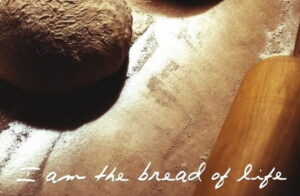 Today’s celebration focuses on the Gift of the Last Supper, the Gift of the Eucharist. This feast is relatively new in the Church. It was instituted in the thirteenth century through the influence of St. Julianna of Monte Cornellion, sometimes referred to as Julianna of Liege. She was deeply devoted to the Eucharist and wanted others to stop their lives for one day and celebrate this great gift. In 1246, she persuaded her bishop to make this a feast day for the Diocese of Liege. Pope Urban IV declared it a Feast for the entire Church in 1264.
Today’s celebration focuses on the Gift of the Last Supper, the Gift of the Eucharist. This feast is relatively new in the Church. It was instituted in the thirteenth century through the influence of St. Julianna of Monte Cornellion, sometimes referred to as Julianna of Liege. She was deeply devoted to the Eucharist and wanted others to stop their lives for one day and celebrate this great gift. In 1246, she persuaded her bishop to make this a feast day for the Diocese of Liege. Pope Urban IV declared it a Feast for the entire Church in 1264.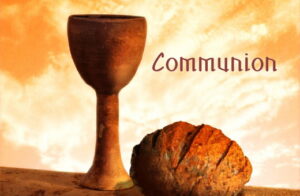 I am shocked and saddened when I hear about people who leave the Catholic Church and join other faiths. I do not doubt their good intentions. Nor do I doubt that they can have an experience of God’s presence in another worshiping community, but how can we, who have been called to the Eucharist, ever leave the Eucharist? Certainly, many good holy people have not been called to the Eucharist. But we have been called. Once we have been admitted into this Presence we cannot leave it. The beliefs of those of other denominations are to be respected. The beliefs of those who do not acknowledge Christ are to be respected. However, we are not respecting others if we hedge on our own faith. No, we need to be who we are. We are Catholics. We need to exalt in that which makes us uniquely Catholic. We need to celebrate the Great, Awesome Gift of the Eucharist.
I am shocked and saddened when I hear about people who leave the Catholic Church and join other faiths. I do not doubt their good intentions. Nor do I doubt that they can have an experience of God’s presence in another worshiping community, but how can we, who have been called to the Eucharist, ever leave the Eucharist? Certainly, many good holy people have not been called to the Eucharist. But we have been called. Once we have been admitted into this Presence we cannot leave it. The beliefs of those of other denominations are to be respected. The beliefs of those who do not acknowledge Christ are to be respected. However, we are not respecting others if we hedge on our own faith. No, we need to be who we are. We are Catholics. We need to exalt in that which makes us uniquely Catholic. We need to celebrate the Great, Awesome Gift of the Eucharist. Once a land was claimed for a king it was considered part of the Kingdom. Any assault on that colony would be treated as an assault on the Kingdom, not on a remote land.
Once a land was claimed for a king it was considered part of the Kingdom. Any assault on that colony would be treated as an assault on the Kingdom, not on a remote land.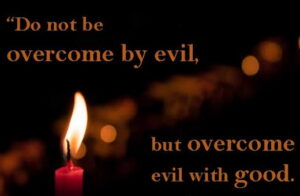 In the sacrament of penance, good people come to a recognition that they have not behaved as well as they should. Sometimes people will have a huge laundry list of serious sins they wish to confess. They will go on and on talking about sexual sin, sins of hatred, sins of disrespecting themselves and others, etc. When they finish, if they have sat across from me, they will often look at me sheepishly expecting a scolding or something. I do not scold people. I simply mention to them, “You are better than that, and you know that. That is why you are here. And I know also that I am better than the many times I have strayed from God.” By better I mean that we are sons and daughters of God. We are children of God. We are better than the forces of the world that are trying to destroy us.
In the sacrament of penance, good people come to a recognition that they have not behaved as well as they should. Sometimes people will have a huge laundry list of serious sins they wish to confess. They will go on and on talking about sexual sin, sins of hatred, sins of disrespecting themselves and others, etc. When they finish, if they have sat across from me, they will often look at me sheepishly expecting a scolding or something. I do not scold people. I simply mention to them, “You are better than that, and you know that. That is why you are here. And I know also that I am better than the many times I have strayed from God.” By better I mean that we are sons and daughters of God. We are children of God. We are better than the forces of the world that are trying to destroy us. 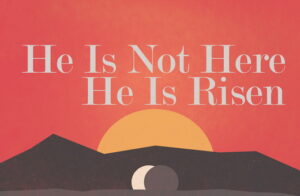 Today is also the birthday of the Church. What is the Church? The Church is basically that community and complex of communities spread all over the world which is continuing the visible presence of God and his work by living openly in the Spirit of Jesus and offering its experience of knowing Christ to the world.
Today is also the birthday of the Church. What is the Church? The Church is basically that community and complex of communities spread all over the world which is continuing the visible presence of God and his work by living openly in the Spirit of Jesus and offering its experience of knowing Christ to the world. We are like a body. Each body has many members, each with its own particular function, yet they all are ordered to one purpose – the good functioning of the body as a whole. So it is with the Christian community, which is the Body of Christ. Each member is to be aware of his or her particular gift. This gift indicates the role the member has to play in building up the whole Body, the whole community.
We are like a body. Each body has many members, each with its own particular function, yet they all are ordered to one purpose – the good functioning of the body as a whole. So it is with the Christian community, which is the Body of Christ. Each member is to be aware of his or her particular gift. This gift indicates the role the member has to play in building up the whole Body, the whole community. This is basically the meaning of the Ascension, namely, that Jesus, our triumphant Messiah-King, reigns in glory over all creation. There is no mention of “where” he is or how he got there. Familiar account If we go to the Acts of the Apostles (First Reading) we come to a description which, for many Christians, is the definitive account of the Ascension. Jesus rose on Easter Sunday and then spent 40 days instructing his disciples about the Reign or Kingship of God. During this time they wondered when Jesus was going to restore the Kingdom of Israel. They were still in a state of great misunderstanding about the nature of Jesus’ mission – and their own. As they will eventually come to understand, it is they themselves who will become the agents not of restoring the Kingdom of Israel but, much more importantly, helping to establish the Kingship of God all over the world.
This is basically the meaning of the Ascension, namely, that Jesus, our triumphant Messiah-King, reigns in glory over all creation. There is no mention of “where” he is or how he got there. Familiar account If we go to the Acts of the Apostles (First Reading) we come to a description which, for many Christians, is the definitive account of the Ascension. Jesus rose on Easter Sunday and then spent 40 days instructing his disciples about the Reign or Kingship of God. During this time they wondered when Jesus was going to restore the Kingdom of Israel. They were still in a state of great misunderstanding about the nature of Jesus’ mission – and their own. As they will eventually come to understand, it is they themselves who will become the agents not of restoring the Kingdom of Israel but, much more importantly, helping to establish the Kingship of God all over the world.  The community has standards to keep in order to be a living and credible witness of Jesus and his Gospel. It has a corporate right to maintain those standards. They are to teach, to heal, to break down the divisions that separate people. Baptism in the name of the Father, the Son and the Holy Spirit will be the symbol of incorporation as members of Christ’s Body, as disciples of Jesus. Always with us Third, the Risen and Ascended Jesus is not far away. He is with his followers and will be with them to the end of time. It is a reminder of the promise made at the very beginning of Matthew’s Gospel, before the birth of Jesus: “Behold, a virgin shall conceive and bear a son, and his name will be called Emmanuel and again later on, “Wherever two or three are gathered in my name, there am I among them”. The gift of the Spirit is not mentioned but is clearly implied by the promise of the ongoing presence of Jesus. Today’s feast then is a celebration of Jesus’ glory after his suffering and death – a glory in which we also hope to share. At the same time, we celebrate the ongoing presence of the Risen Jesus among us, a presence which calls on every one of us to be living witnesses to that presence here in our own community and to the ends of the earth.
The community has standards to keep in order to be a living and credible witness of Jesus and his Gospel. It has a corporate right to maintain those standards. They are to teach, to heal, to break down the divisions that separate people. Baptism in the name of the Father, the Son and the Holy Spirit will be the symbol of incorporation as members of Christ’s Body, as disciples of Jesus. Always with us Third, the Risen and Ascended Jesus is not far away. He is with his followers and will be with them to the end of time. It is a reminder of the promise made at the very beginning of Matthew’s Gospel, before the birth of Jesus: “Behold, a virgin shall conceive and bear a son, and his name will be called Emmanuel and again later on, “Wherever two or three are gathered in my name, there am I among them”. The gift of the Spirit is not mentioned but is clearly implied by the promise of the ongoing presence of Jesus. Today’s feast then is a celebration of Jesus’ glory after his suffering and death – a glory in which we also hope to share. At the same time, we celebrate the ongoing presence of the Risen Jesus among us, a presence which calls on every one of us to be living witnesses to that presence here in our own community and to the ends of the earth. We see this clearly expressed in today’s gospel passage. Jesus is telling his disciples at the Last Supper that, through the Spirit, he will continue to be with them – and us – forever. He calls the Spirit an ‘Advocate’. In other biblical translations he is called a Counsellor, Helper, Intercessor, Advocate, Strengthener. The Greek word is parakletos. Basically a ‘paraclete’ is someone like a defence lawyer, someone who stands by you in court, gives you support, advice and comfort in difficult situations where you need help. That is precisely the role of the Spirit in our Christian life. He teaches, he guides, he supports, he consoles, he comforts as we try to be faithful in our following of Christ’s Way.
We see this clearly expressed in today’s gospel passage. Jesus is telling his disciples at the Last Supper that, through the Spirit, he will continue to be with them – and us – forever. He calls the Spirit an ‘Advocate’. In other biblical translations he is called a Counsellor, Helper, Intercessor, Advocate, Strengthener. The Greek word is parakletos. Basically a ‘paraclete’ is someone like a defence lawyer, someone who stands by you in court, gives you support, advice and comfort in difficult situations where you need help. That is precisely the role of the Spirit in our Christian life. He teaches, he guides, he supports, he consoles, he comforts as we try to be faithful in our following of Christ’s Way.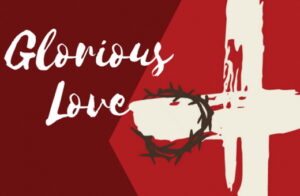 And Peter adds, “If it is the will of God that you should suffer, it is better to suffer for doing right than for doing wrong.” Indeed the Eighth Beatitude describes as happy and fortunate those who are privileged to be maligned and persecuted for their faithfulness to truth and love and justice. And, if we think that strange, let us not forget that “Christ himself, innocent though he was, died for the guilty , to lead us to God”.
And Peter adds, “If it is the will of God that you should suffer, it is better to suffer for doing right than for doing wrong.” Indeed the Eighth Beatitude describes as happy and fortunate those who are privileged to be maligned and persecuted for their faithfulness to truth and love and justice. And, if we think that strange, let us not forget that “Christ himself, innocent though he was, died for the guilty , to lead us to God”.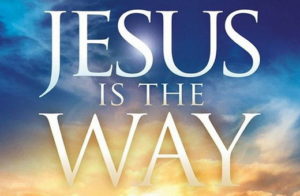 “Do not let your hearts be troubled,” are the encouraging words he speaks to them. “Trust in God still, and trust in me” is a call to total faith in the Father and in Jesus. It is a single act of trust for to have faith in the one is to have equal faith in the other. And, towards the end of the passage, Jesus appeals to the evidence of all they have seen him say and do. “You must believe me when I say that I am in the Father and the Father is in me; believe it on the evidence of this work, if for no other reason.”
“Do not let your hearts be troubled,” are the encouraging words he speaks to them. “Trust in God still, and trust in me” is a call to total faith in the Father and in Jesus. It is a single act of trust for to have faith in the one is to have equal faith in the other. And, towards the end of the passage, Jesus appeals to the evidence of all they have seen him say and do. “You must believe me when I say that I am in the Father and the Father is in me; believe it on the evidence of this work, if for no other reason.”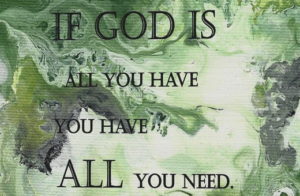 There are now very few places where Jesus’ message has not been heard. Moreover the Pope or some other religious leader, hooked up to satellites, can simultaneously reach literally billions of people. Jesus on earth could not do that.
There are now very few places where Jesus’ message has not been heard. Moreover the Pope or some other religious leader, hooked up to satellites, can simultaneously reach literally billions of people. Jesus on earth could not do that.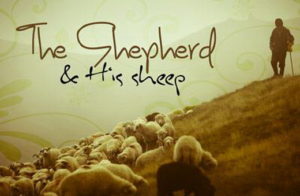 In today’s Gospel passage, which consists of the first 10 verses of Chapter 10, there seem to be two separate parables. The first is a warning against people who would want to steal the sheep and the second focuses on the relationship between the sheep and their shepherd. The central image, too, is not so much that of the shepherd as of the gate. In fact, later on in the passage, Jesus says, “I AM the Gate”. Here it would seem that Jesus is the Gate of the sheepfold, while the shepherds who come in and out are pastors who are faithful to Jesus. Anyone who does not enter the sheepfold by the gate, for instance, by climbing over the fence or breaking through it, is dangerous and should be avoided. He is “a thief and a brigand” who comes to steal and do harm to the sheep. The genuine shepherd, however, enters by the Gate (Jesus). He is recognised and admitted by the watchman (the leader of the community?) at the gate.
In today’s Gospel passage, which consists of the first 10 verses of Chapter 10, there seem to be two separate parables. The first is a warning against people who would want to steal the sheep and the second focuses on the relationship between the sheep and their shepherd. The central image, too, is not so much that of the shepherd as of the gate. In fact, later on in the passage, Jesus says, “I AM the Gate”. Here it would seem that Jesus is the Gate of the sheepfold, while the shepherds who come in and out are pastors who are faithful to Jesus. Anyone who does not enter the sheepfold by the gate, for instance, by climbing over the fence or breaking through it, is dangerous and should be avoided. He is “a thief and a brigand” who comes to steal and do harm to the sheep. The genuine shepherd, however, enters by the Gate (Jesus). He is recognised and admitted by the watchman (the leader of the community?) at the gate. Today we are asked to “pray” for vocations. There is a danger that, although many will fervently do so, they are praying for other people’s vocations and not their own. To say this prayer with sincerity involves my reflecting on how God is asking me to make a meaningful contribution of myself (not just money) to the building up of our community, our parish.
Today we are asked to “pray” for vocations. There is a danger that, although many will fervently do so, they are praying for other people’s vocations and not their own. To say this prayer with sincerity involves my reflecting on how God is asking me to make a meaningful contribution of myself (not just money) to the building up of our community, our parish. It begins with two disciples on the road leaving Jerusalem. For Luke the focal point of Jesus’ mission is Jerusalem – it was the goal to which all Jesus’ public life was headed and from there the new community would bring his Message to the rest of the world.
It begins with two disciples on the road leaving Jerusalem. For Luke the focal point of Jesus’ mission is Jerusalem – it was the goal to which all Jesus’ public life was headed and from there the new community would bring his Message to the rest of the world.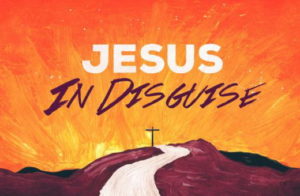 – The importance of hospitality and kindness to the stranger. “I was hungry… and you did/did not feed…” Jesus is especially present and to be found and loved in the very least of my brothers and sisters.
– The importance of hospitality and kindness to the stranger. “I was hungry… and you did/did not feed…” Jesus is especially present and to be found and loved in the very least of my brothers and sisters.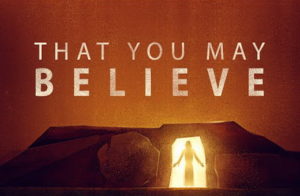 “Peace with you!” is his greeting. It is the normal Jewish greeting of “Shalom”. But, coming from Jesus, the Prince of Peace, to this group of frightened people, it has special meaning. And, in the Greek, there is no verb so it can be taken either as a wish or a statement of fact – where Jesus is truly present to us, there is peace.
“Peace with you!” is his greeting. It is the normal Jewish greeting of “Shalom”. But, coming from Jesus, the Prince of Peace, to this group of frightened people, it has special meaning. And, in the Greek, there is no verb so it can be taken either as a wish or a statement of fact – where Jesus is truly present to us, there is peace. Thomas yields completely to the experience. “My Lord and my God!” It is one of the most powerful acknowledgements of Jesus’ real identity in the whole Gospel and the only time anyone directly calls him God.
Thomas yields completely to the experience. “My Lord and my God!” It is one of the most powerful acknowledgements of Jesus’ real identity in the whole Gospel and the only time anyone directly calls him God.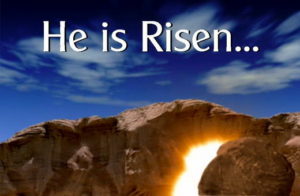 The message of Easter is first communicated by the empty tomb. The death of Jesus was an observable and observed fact by both friends and enemies. No one saw the resurrection. It did not involve resuscitation of a corpse.
The message of Easter is first communicated by the empty tomb. The death of Jesus was an observable and observed fact by both friends and enemies. No one saw the resurrection. It did not involve resuscitation of a corpse.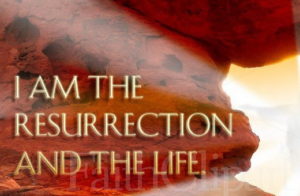 Finally, Peter in the First Reading from the Acts of the Apostles speaks of the mandate that follows from the resurrection. He and his fellow disciples are to proclaim the Good News about the Risen Jesus. The Jesus who will give new life to every single person who accepts him as Lord, who accepts him as the Way, Truth and Life. Peter and his fellow disciples are called “apostles”, people sent out on a mission, “ambassadors for Christ”, Paul calls them.
Finally, Peter in the First Reading from the Acts of the Apostles speaks of the mandate that follows from the resurrection. He and his fellow disciples are to proclaim the Good News about the Risen Jesus. The Jesus who will give new life to every single person who accepts him as Lord, who accepts him as the Way, Truth and Life. Peter and his fellow disciples are called “apostles”, people sent out on a mission, “ambassadors for Christ”, Paul calls them.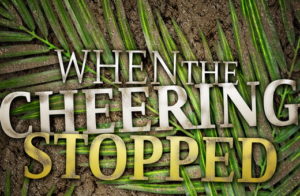 Today’s liturgy combines both a sense of triumph and tragedy. Very importantly, we are reminded at the beginning, that we are about to commemorate the triumph of Christ our King. We do this through the blessing of palms, the procession and the joyful singing. And the celebrant wears red vestments. We need to keep this in mind as we proceed in the second half to hear the long tale of the sufferings and indignities to which Jesus was subjected. A tale not relieved — yet — by the proper end of the story: the Resurrection to new life. So as we listen to the Passion story unfolding let us keep in mind the Hosannas as Jesus our King entered Jerusalem, his city. Very soon it will be difficult to recognise our King in the battered, scourged, crowned-with-thorns, crucified remnant of a human being.
Today’s liturgy combines both a sense of triumph and tragedy. Very importantly, we are reminded at the beginning, that we are about to commemorate the triumph of Christ our King. We do this through the blessing of palms, the procession and the joyful singing. And the celebrant wears red vestments. We need to keep this in mind as we proceed in the second half to hear the long tale of the sufferings and indignities to which Jesus was subjected. A tale not relieved — yet — by the proper end of the story: the Resurrection to new life. So as we listen to the Passion story unfolding let us keep in mind the Hosannas as Jesus our King entered Jerusalem, his city. Very soon it will be difficult to recognise our King in the battered, scourged, crowned-with-thorns, crucified remnant of a human being.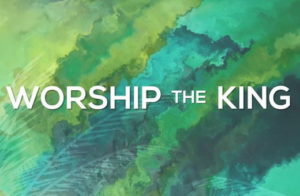 Jesus’ disciples, energised by the power of their Lord and Master, will go through similar experiences to his. They, like Jesus in the garden, will be filled with fear but, later on, they will be filled with a fearless courage and joy. No matter who threatens them, no matter that they are thrown into jail or that members of their communities are murdered and executed, they will continue to preach fearlessly the Gospel of Truth and Love. The death of Jesus, which we commemorate today, was not in the end a sign of failure. It was Jesus’ moment of triumph and victory. The same can be said of the long line of martyrs and witnesses over 2,000 years.
Jesus’ disciples, energised by the power of their Lord and Master, will go through similar experiences to his. They, like Jesus in the garden, will be filled with fear but, later on, they will be filled with a fearless courage and joy. No matter who threatens them, no matter that they are thrown into jail or that members of their communities are murdered and executed, they will continue to preach fearlessly the Gospel of Truth and Love. The death of Jesus, which we commemorate today, was not in the end a sign of failure. It was Jesus’ moment of triumph and victory. The same can be said of the long line of martyrs and witnesses over 2,000 years.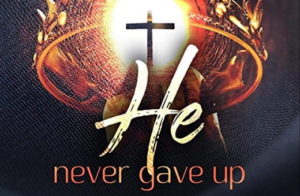 Jesus then gives his reason for wanting to go south. “Our friend Lazarus is ‘asleep’ and I am going to wake him.” You can almost hear the reaction of the disciples: “You are putting yourself – and us – in great danger just to wake someone up?! Why disturb him? Sleep is good for him.”
Jesus then gives his reason for wanting to go south. “Our friend Lazarus is ‘asleep’ and I am going to wake him.” You can almost hear the reaction of the disciples: “You are putting yourself – and us – in great danger just to wake someone up?! Why disturb him? Sleep is good for him.”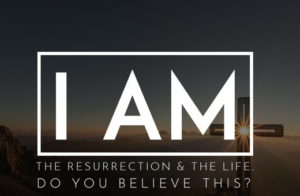 Like the gospels of the last two Sundays (the Samaritan Woman and the Man Born Blind), this reading is directed at those preparing for Baptism at Easter. Baptism, as Paul tells us, is both a dying to one’s past and an entry into new life. The newly baptised person is “a new person” with a new life.
Like the gospels of the last two Sundays (the Samaritan Woman and the Man Born Blind), this reading is directed at those preparing for Baptism at Easter. Baptism, as Paul tells us, is both a dying to one’s past and an entry into new life. The newly baptised person is “a new person” with a new life. The story keeps emphasising that the man was blind from birth. To heal him then means the beginning of a completely new life, a life where he can see. He will enter a new world of brightness. Not to know Jesus is to live in blindness and darkness. In fact, this story is an illustration of Jesus’ statement: “I am the light of the world”.
The story keeps emphasising that the man was blind from birth. To heal him then means the beginning of a completely new life, a life where he can see. He will enter a new world of brightness. Not to know Jesus is to live in blindness and darkness. In fact, this story is an illustration of Jesus’ statement: “I am the light of the world”. But the Gospel is also for us already baptised. We also need to see Jesus and the Gospel more clearly. The words of Paul in the Second Reading are very appropriate: “You were darkness once, but now you are light in the Lord; be like children of light, for the effects of the light are seen in complete goodness and right living and truth.”
But the Gospel is also for us already baptised. We also need to see Jesus and the Gospel more clearly. The words of Paul in the Second Reading are very appropriate: “You were darkness once, but now you are light in the Lord; be like children of light, for the effects of the light are seen in complete goodness and right living and truth.” THE THEME of today’s Mass centres around water. The links with Baptism are obvious. Water is the source of life but also of destruction.
THE THEME of today’s Mass centres around water. The links with Baptism are obvious. Water is the source of life but also of destruction. Many Samaritans came to believe in Jesus because of the woman’s witnessing. Then they asked him to stay with them, otherwise he would have continued on his journey. Jesus often needs to be invited to stay. Remember the two men walking to Emmaus? He would not have stopped if they had not invited him to stay the night. He stands at the door and knocks but he will not come in unless invited.
Many Samaritans came to believe in Jesus because of the woman’s witnessing. Then they asked him to stay with them, otherwise he would have continued on his journey. Jesus often needs to be invited to stay. Remember the two men walking to Emmaus? He would not have stopped if they had not invited him to stay the night. He stands at the door and knocks but he will not come in unless invited. The Lord Jesus is the fulfillment of all the promises made to Abraham and to his spiritual descendants. In all that Jesus did and said he sought to please his Father in heaven and to bring him glory. Like Abraham, he was ready to part with anything that might stand in the way of doing the will of God. He knew that the success of his mission would depend on his willingness to embrace his Father’s will no matter what it might cost him personally.
The Lord Jesus is the fulfillment of all the promises made to Abraham and to his spiritual descendants. In all that Jesus did and said he sought to please his Father in heaven and to bring him glory. Like Abraham, he was ready to part with anything that might stand in the way of doing the will of God. He knew that the success of his mission would depend on his willingness to embrace his Father’s will no matter what it might cost him personally. Jesus went to the mountain knowing full well what awaited him in Jerusalem – betrayal, rejection, and crucifixion. Jesus very likely discussed this momentous decision to go to the cross with Moses and Elijah. God the Father also spoke with Jesus and gave his approval: This is my beloved Son; listen to him. The Father glorified his son because he was faithful and willing to obey him in everything. The cloud which overshadowed Jesus and his apostles fulfilled the dream of the Jews that when the Messiah came the cloud of God’s presence would fill the temple again.
Jesus went to the mountain knowing full well what awaited him in Jerusalem – betrayal, rejection, and crucifixion. Jesus very likely discussed this momentous decision to go to the cross with Moses and Elijah. God the Father also spoke with Jesus and gave his approval: This is my beloved Son; listen to him. The Father glorified his son because he was faithful and willing to obey him in everything. The cloud which overshadowed Jesus and his apostles fulfilled the dream of the Jews that when the Messiah came the cloud of God’s presence would fill the temple again.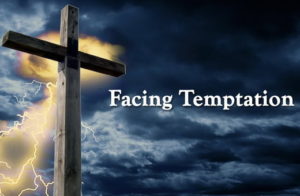 Today’s Gospel story follows immediately on Jesus’ baptism and endorsement by his Father as his “Beloved Son” to whom we are to listen.
Today’s Gospel story follows immediately on Jesus’ baptism and endorsement by his Father as his “Beloved Son” to whom we are to listen.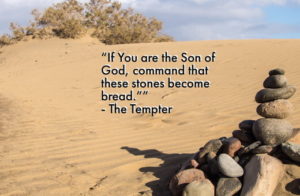 After one of the feedings (as told in John’s gospel), he had the crowd at his feet and they wanted to make him king. Instead, he fled to the mountains to pray to his Father and packed his ambitious disciples off in a boat and into a storm which gave them something else to think about – survival.
After one of the feedings (as told in John’s gospel), he had the crowd at his feet and they wanted to make him king. Instead, he fled to the mountains to pray to his Father and packed his ambitious disciples off in a boat and into a storm which gave them something else to think about – survival. In the Gospel, as Jesus continues to teach his disciples in the Sermon on the Mount, he again reminds his hearers that more is expected of his disciples than was laid down in the Old Testament. “You have heard that it was said, ‘An eye for an eye and a tooth for a tooth’.” That sounds like a command to take vengeance. On the contrary, it was a counsel of self-restraint — only hurt your opponent to the same degree that he/she hurts you and no more. Also, retaliation could only be authorised by a court. In our own time, it is not unusual to see people take vengeance far beyond the hurt that was done to them.
In the Gospel, as Jesus continues to teach his disciples in the Sermon on the Mount, he again reminds his hearers that more is expected of his disciples than was laid down in the Old Testament. “You have heard that it was said, ‘An eye for an eye and a tooth for a tooth’.” That sounds like a command to take vengeance. On the contrary, it was a counsel of self-restraint — only hurt your opponent to the same degree that he/she hurts you and no more. Also, retaliation could only be authorised by a court. In our own time, it is not unusual to see people take vengeance far beyond the hurt that was done to them. All in all we are being called on to recognise and respond to God’s presence in every single person and creature that we meet. Irrespective of how they behave. And that is true even when the person acts in ways totally contrary to God’s way. In fact, it is precisely then that the God in me has to reach out and affirm the God in the other. Mutual violence only weakens God’s presence in both of us. Paradoxically, the worse a person behaves, the more that one is crying out to be loved and cared for.
All in all we are being called on to recognise and respond to God’s presence in every single person and creature that we meet. Irrespective of how they behave. And that is true even when the person acts in ways totally contrary to God’s way. In fact, it is precisely then that the God in me has to reach out and affirm the God in the other. Mutual violence only weakens God’s presence in both of us. Paradoxically, the worse a person behaves, the more that one is crying out to be loved and cared for.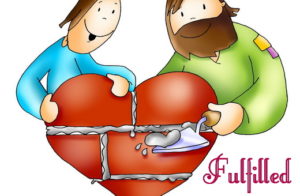 In today’s Gospel Matthew emphasises the relation between Jewish Law and the teaching of Jesus. Matthew reassures his readers that Jesus has not come to abolish the Law and the prophets but to bring them to completion. So, in a sense, the Law still has force. “Until heaven and earth pass away, not one letter, not one stroke of a letter, will pass from the law until all is accomplished.”
In today’s Gospel Matthew emphasises the relation between Jewish Law and the teaching of Jesus. Matthew reassures his readers that Jesus has not come to abolish the Law and the prophets but to bring them to completion. So, in a sense, the Law still has force. “Until heaven and earth pass away, not one letter, not one stroke of a letter, will pass from the law until all is accomplished.”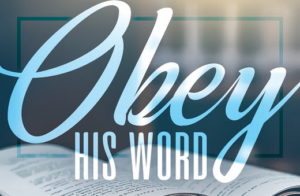 There are not a few Catholics who feel that if they just keep the Commandments they are good Catholics. They often like to ask, “Is this a sin?”, that is, is it against the law? Is it a mortal sin or is it a venial sin? If it is “only” a venial sin, then I can do it.
There are not a few Catholics who feel that if they just keep the Commandments they are good Catholics. They often like to ask, “Is this a sin?”, that is, is it against the law? Is it a mortal sin or is it a venial sin? If it is “only” a venial sin, then I can do it.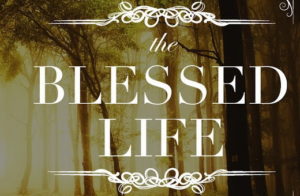 What Jesus emphasises is its distinctive taste. We often judge food by saying it has too little or too much salt. Christians then, by their Gospel-centred lives, are to give a distinctive taste to society. Those who really have the spirit of the Beatitudes (including non-Christians) will permeate the world, renew it and retard its social and moral decay.
What Jesus emphasises is its distinctive taste. We often judge food by saying it has too little or too much salt. Christians then, by their Gospel-centred lives, are to give a distinctive taste to society. Those who really have the spirit of the Beatitudes (including non-Christians) will permeate the world, renew it and retard its social and moral decay. So our lack of talent or influence or education can never be excuses for not sharing our experience of Christ and of working with others to establish the Kingdom among us.
So our lack of talent or influence or education can never be excuses for not sharing our experience of Christ and of working with others to establish the Kingdom among us. Today we celebrate the close of the Christmas with a festival of light. Candles are blessed and they are carried in procession to welcome Christ, the Light to enlighten the Gentiles and the glory of his people. Until the year 1969, the feast, which is of Eastern origin, was known in the West as the feast of the Purification of Our Lady and also as Candlemas. Now we prefer to refer to it as the Presentation of the Lord.
Today we celebrate the close of the Christmas with a festival of light. Candles are blessed and they are carried in procession to welcome Christ, the Light to enlighten the Gentiles and the glory of his people. Until the year 1969, the feast, which is of Eastern origin, was known in the West as the feast of the Purification of Our Lady and also as Candlemas. Now we prefer to refer to it as the Presentation of the Lord. Today’s feast brings to an end a whole period which resonates with a sense of light. Christmas itself, taking place just after the winter solstice, is the celebration of the end of the darkness of winter and the coming of light into the world, especially the Light of the World. Twelve days later there is the feast of the Epiphany when the light of a star guides the Gentile outsiders to pay homage to the Light of the World. Then today, we bring the celebration to a close with this feast of light. It has long been a day for processions as we remember the Lord’s entry into the Temple, the house of his Father, for the first time. These processions originally replaced pagan celebrations. Later, it was identified with the blessing of candles carried in procession in honour of Christ, “the light to enlighten the Gentiles”.
Today’s feast brings to an end a whole period which resonates with a sense of light. Christmas itself, taking place just after the winter solstice, is the celebration of the end of the darkness of winter and the coming of light into the world, especially the Light of the World. Twelve days later there is the feast of the Epiphany when the light of a star guides the Gentile outsiders to pay homage to the Light of the World. Then today, we bring the celebration to a close with this feast of light. It has long been a day for processions as we remember the Lord’s entry into the Temple, the house of his Father, for the first time. These processions originally replaced pagan celebrations. Later, it was identified with the blessing of candles carried in procession in honour of Christ, “the light to enlighten the Gentiles”. The call is not just to be sorry for past sins and not to do them any more. There has to be a complete change of direction, a deep involvement in doing God’s work. That work involves working with others for an end to poverty and destitution, to hunger and joblessness, to communal and religious hatred, to rampant greed, ambition and shameless consumerism and to create a world of love and care – the special attributes of God.
The call is not just to be sorry for past sins and not to do them any more. There has to be a complete change of direction, a deep involvement in doing God’s work. That work involves working with others for an end to poverty and destitution, to hunger and joblessness, to communal and religious hatred, to rampant greed, ambition and shameless consumerism and to create a world of love and care – the special attributes of God.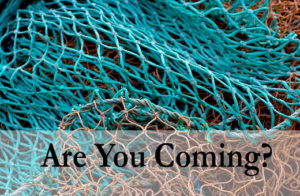 We have, unfortunately, many such divisions among Christians today – “I am a Catholic”, “I am an Anglican… a Lutheran… a Methodist… a Presbyterian…” The list is, alas, endless. This is not the kind of family that Jesus intended. Such a dysfunctional family is not in a good position to give effective witness to the Good News of truth and love and fellowship which Jesus prayed for at the Last Supper (John 17).
We have, unfortunately, many such divisions among Christians today – “I am a Catholic”, “I am an Anglican… a Lutheran… a Methodist… a Presbyterian…” The list is, alas, endless. This is not the kind of family that Jesus intended. Such a dysfunctional family is not in a good position to give effective witness to the Good News of truth and love and fellowship which Jesus prayed for at the Last Supper (John 17).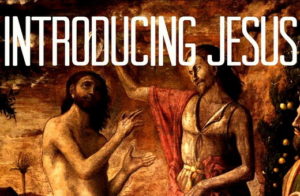 Who is Jesus? We see him today simultaneously in the role of Lord and Servant. Today’s Gospel speaks about Jesus being baptised by John the Baptist. As Jesus approaches, John announces to some of his own disciples: “There is the Lamb of God who takes away the sin of the world!”
Who is Jesus? We see him today simultaneously in the role of Lord and Servant. Today’s Gospel speaks about Jesus being baptised by John the Baptist. As Jesus approaches, John announces to some of his own disciples: “There is the Lamb of God who takes away the sin of the world!” He wants every single person to enter the Kingdom of God. He wants every person to experience the truth, the love and the freedom of the Gospel. The mission of Jesus is to bring all the people of the world back to God, their Creator, their Beginning and their End.
He wants every single person to enter the Kingdom of God. He wants every person to experience the truth, the love and the freedom of the Gospel. The mission of Jesus is to bring all the people of the world back to God, their Creator, their Beginning and their End.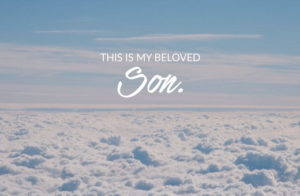 We might very well wonder, along with John the Baptist, why Jesus needed to be baptised. “It is I who need baptism from you,” John said to Jesus, “and yet you come to me!” All those others being baptised in the Jordan by John were doing so as a sign of repentance for their sins and as an expression of their desire to turn around their lives. How could Jesus, the Son of God, be part of this?
We might very well wonder, along with John the Baptist, why Jesus needed to be baptised. “It is I who need baptism from you,” John said to Jesus, “and yet you come to me!” All those others being baptised in the Jordan by John were doing so as a sign of repentance for their sins and as an expression of their desire to turn around their lives. How could Jesus, the Son of God, be part of this? Then, of course, like Jesus, our baptism brings with it a serious obligation to share our faith with others both by word and example. It involves much more than simply ‘saving our souls’ and ‘leading sinless lives’.
Then, of course, like Jesus, our baptism brings with it a serious obligation to share our faith with others both by word and example. It involves much more than simply ‘saving our souls’ and ‘leading sinless lives’.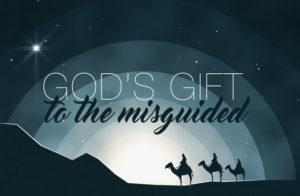 After the birth of Jesus, the Magi, who came from the East, arrived in Jerusalem to worship the Lord of Heaven and earth. We are not certain about the exact amount of time between the birth of the Child God and the arrival of the Magi. But we can make the reasonable assumption that the star of the Lord was seen by the Magi, in the East, long before the birth of Jesus. God disposes all things in number, weight and measure, and it was a very simple thing for him to manifest to the Magi the sign of the star several weeks or months before the birth, according to the flesh, of his Son. Had he not sent his Angel to Joseph to warn him in time that Mary would give birth to the Savior of mankind? Thus, if an Angel, a purely spiritual creature, announced to Joseph the future birth of Jesus, it is completely suitable that, in a similar way, and as a complement to this, a star, a purely material creature, would also announce the coming birth of the Son of God made man. In this way, both the spiritual and material world participated in announcing to mankind the most important birth that has ever taken place. Moreover, isn’t it the same evangelist – Saint Matthew – who relates both the announcement of the Angel and that of the star?
After the birth of Jesus, the Magi, who came from the East, arrived in Jerusalem to worship the Lord of Heaven and earth. We are not certain about the exact amount of time between the birth of the Child God and the arrival of the Magi. But we can make the reasonable assumption that the star of the Lord was seen by the Magi, in the East, long before the birth of Jesus. God disposes all things in number, weight and measure, and it was a very simple thing for him to manifest to the Magi the sign of the star several weeks or months before the birth, according to the flesh, of his Son. Had he not sent his Angel to Joseph to warn him in time that Mary would give birth to the Savior of mankind? Thus, if an Angel, a purely spiritual creature, announced to Joseph the future birth of Jesus, it is completely suitable that, in a similar way, and as a complement to this, a star, a purely material creature, would also announce the coming birth of the Son of God made man. In this way, both the spiritual and material world participated in announcing to mankind the most important birth that has ever taken place. Moreover, isn’t it the same evangelist – Saint Matthew – who relates both the announcement of the Angel and that of the star?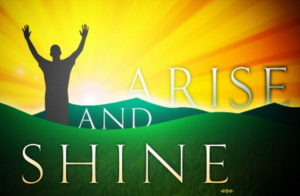 Where did the Magi find the Child Jesus? In a house, says Saint Matthew. But which one? In what town or village? Probably Bethlehem. But Saint Matthew does not say… The Magi knew, but the star told them this by guiding them there. For us, it remains an enigma… Is this not another way of proclaiming the Return of the Lord? Saint Matthew reports the following words of the Lord, speaking of his return: “Then if any one says to you, «Lo, here is the Christ!» or «There he is!» do not believe it… So, if they say to you, «Lo, he is in the wilderness,» do not go out; if they say, «Lo, he is in the inner rooms,» do not believe it.” We do not know where the Magi worshipped the Child Jesus, for, at the end of time, Jesus will not be in one place or another, but instead he will be everywhere at the same time, for the notion of time is always relative to the the notion of place, and when the time is full, place will also be full, so that what is here will also be there, all of creation no longer having any dimension. “For as the lightning comes from the east and shines as far as the west, so will be the coming of the Son of man.”
Where did the Magi find the Child Jesus? In a house, says Saint Matthew. But which one? In what town or village? Probably Bethlehem. But Saint Matthew does not say… The Magi knew, but the star told them this by guiding them there. For us, it remains an enigma… Is this not another way of proclaiming the Return of the Lord? Saint Matthew reports the following words of the Lord, speaking of his return: “Then if any one says to you, «Lo, here is the Christ!» or «There he is!» do not believe it… So, if they say to you, «Lo, he is in the wilderness,» do not go out; if they say, «Lo, he is in the inner rooms,» do not believe it.” We do not know where the Magi worshipped the Child Jesus, for, at the end of time, Jesus will not be in one place or another, but instead he will be everywhere at the same time, for the notion of time is always relative to the the notion of place, and when the time is full, place will also be full, so that what is here will also be there, all of creation no longer having any dimension. “For as the lightning comes from the east and shines as far as the west, so will be the coming of the Son of man.” First Reading 1 Corinthians 2:1-5
First Reading 1 Corinthians 2:1-5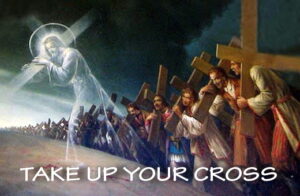 First Reading Jeremiah 20:7-9
First Reading Jeremiah 20:7-9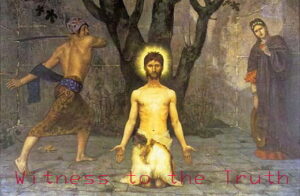 First Reading Jeremiah 1:17-19
First Reading Jeremiah 1:17-19 First Reading 1 Corinthians 1:17-25
First Reading 1 Corinthians 1:17-25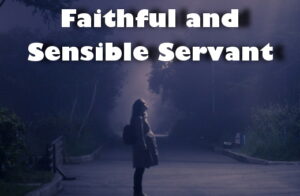 First Reading 1 Corinthians 1:1-9
First Reading 1 Corinthians 1:1-9 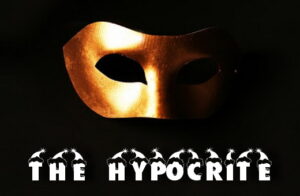 First Reading 2 Thessalonians 3:6-10,16-18
First Reading 2 Thessalonians 3:6-10,16-18 First Reading 2 Thessalonians 2:1-3,14-17
First Reading 2 Thessalonians 2:1-3,14-17 First Reading Apocalypse 21:9-14
First Reading Apocalypse 21:9-14 First Reading Isaiah 22:19-23
First Reading Isaiah 22:19-23 First Reading Isaiah 9:1-7
First Reading Isaiah 9:1-7 First Reading Ezekiel 37:1-14
First Reading Ezekiel 37:1-14 First Reading Ezekiel 36:23-28
First Reading Ezekiel 36:23-28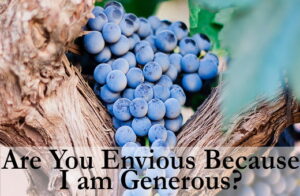 First Reading Ezekiel 34:1-11
First Reading Ezekiel 34:1-11 First Reading Ezekiel 28:1-10
First Reading Ezekiel 28:1-10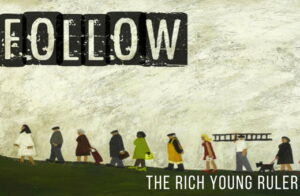 First Reading Ezekiel 24:15-24
First Reading Ezekiel 24:15-24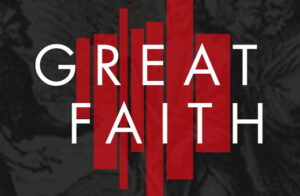 First Reading Isaiah 56:1,6-7
First Reading Isaiah 56:1,6-7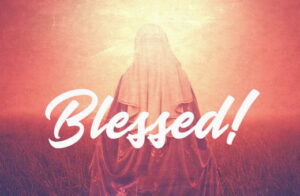 First Reading Apocalypse 11:19,12:1-6,10
First Reading Apocalypse 11:19,12:1-6,10 First Reading Ezekiel 16:1-15,60,63
First Reading Ezekiel 16:1-15,60,63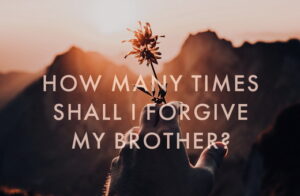 First Reading Ezekiel 12:1-12
First Reading Ezekiel 12:1-12 First Reading Ezekiel 9:1-7,10:18-22
First Reading Ezekiel 9:1-7,10:18-22 First Reading Ezekiel 2:8-3:4
First Reading Ezekiel 2:8-3:4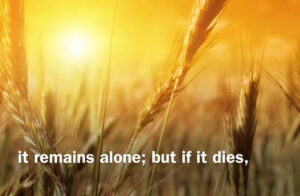 First Reading 2 Corinthians 9:6-10
First Reading 2 Corinthians 9:6-10 First Reading 1 Kings 19:9,11-13
First Reading 1 Kings 19:9,11-13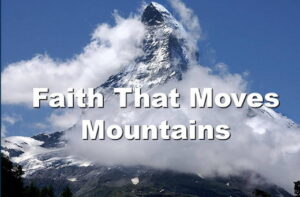 First Reading
First Reading 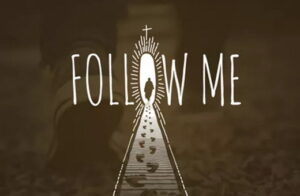 First Reading Nahum 2:1,3,3:1-3,6-7
First Reading Nahum 2:1,3,3:1-3,6-7 First Reading Daniel 7:9-10,13-14
First Reading Daniel 7:9-10,13-14 First Reading Jeremiah 31:1-7
First Reading Jeremiah 31:1-7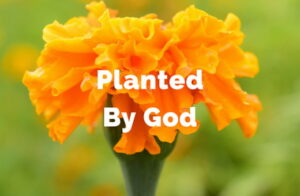
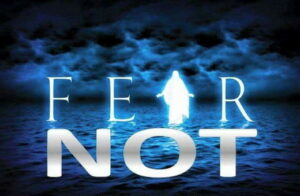 At the beginning of the reign of Zedekiah king of Judah in the fifth month of the fourth year, the prophet Hananiah son of Azzur, a Gibeonite, spoke as follows to Jeremiah in the Temple of the Lord in the presence of the priests and of all the people. ‘The Lord, the God of Israel, says this, “I have broken the yoke of the king of Babylon. In two years’ time I will bring back all the vessels of the Temple of the Lord which Nebuchadnezzar king of Babylon carried off from this place and took to Babylon. And I will also bring back Jeconiah son of Jehoiakim, king of Judah, and all the exiles of Judah who have gone to Babylon – it is the Lord who speaks. Yes, I am going to break the yoke of the king of Babylon.”’
At the beginning of the reign of Zedekiah king of Judah in the fifth month of the fourth year, the prophet Hananiah son of Azzur, a Gibeonite, spoke as follows to Jeremiah in the Temple of the Lord in the presence of the priests and of all the people. ‘The Lord, the God of Israel, says this, “I have broken the yoke of the king of Babylon. In two years’ time I will bring back all the vessels of the Temple of the Lord which Nebuchadnezzar king of Babylon carried off from this place and took to Babylon. And I will also bring back Jeconiah son of Jehoiakim, king of Judah, and all the exiles of Judah who have gone to Babylon – it is the Lord who speaks. Yes, I am going to break the yoke of the king of Babylon.”’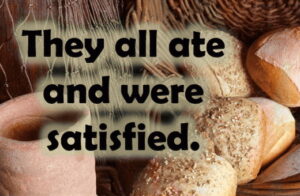 First Reading Isaiah 55:1-3
First Reading Isaiah 55:1-3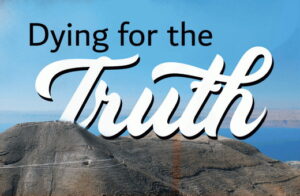 First Reading Jeremiah 26:11-16,24
First Reading Jeremiah 26:11-16,24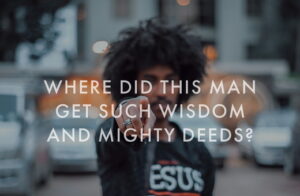 First Reading Jeremiah 26:1-9
First Reading Jeremiah 26:1-9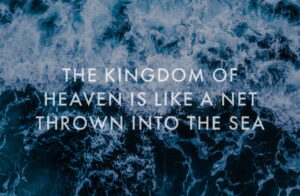 First Reading Jeremiah 18:1-6
First Reading Jeremiah 18:1-6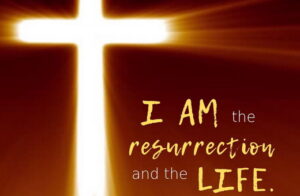 First Reading First Letter of John 4,7-16
First Reading First Letter of John 4,7-16 First Reading Jeremiah 14:17-22
First Reading Jeremiah 14:17-22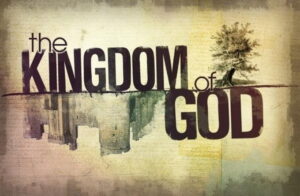 First Reading 1 Kings 3:5,7-12
First Reading 1 Kings 3:5,7-12 First Reading 1st book of Kings 3,5.7-12
First Reading 1st book of Kings 3,5.7-12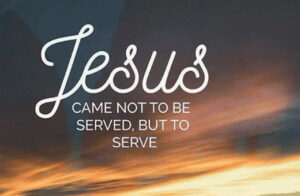 First Reading 2 Corinthians 4:7-15
First Reading 2 Corinthians 4:7-15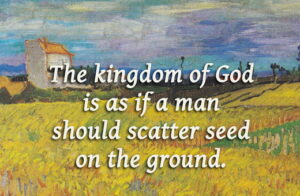 First Reading Jeremiah 3:14-17
First Reading Jeremiah 3:14-17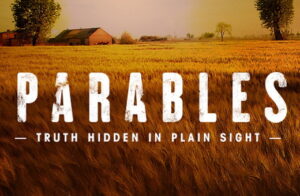 First Reading Jeremiah 2:1-3,7-8,12-13
First Reading Jeremiah 2:1-3,7-8,12-13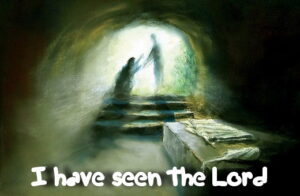 First Reading Song of Songs 3:1-4
First Reading Song of Songs 3:1-4 First Reading Micah 7:14-15,18-20
First Reading Micah 7:14-15,18-20 First Reading Micah 6:1-4,6-8
First Reading Micah 6:1-4,6-8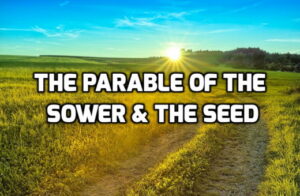 First Reading Wisdom 12:13,16-19
First Reading Wisdom 12:13,16-19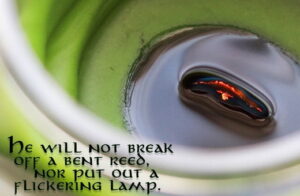 First Reading Micah 2:1-5
First Reading Micah 2:1-5 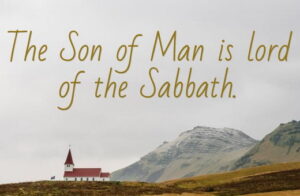 First Reading Isaiah 38:1-6,21-22,7-8
First Reading Isaiah 38:1-6,21-22,7-8 First Reading Isaiah 26:7-9,12,16-19
First Reading Isaiah 26:7-9,12,16-19 First Reading Isaiah 10:5-7,13-16
First Reading Isaiah 10:5-7,13-16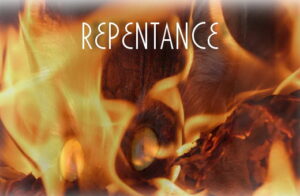 First Reading Isaiah 7:1-9
First Reading Isaiah 7:1-9 First Reading Isaiah 1:10-17
First Reading Isaiah 1:10-17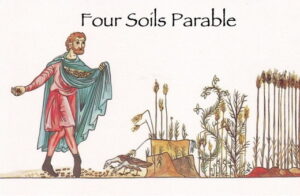 First Reading Isaiah 55:10-11
First Reading Isaiah 55:10-11 First Reading Isaiah 6:1-8
First Reading Isaiah 6:1-8 First Reading Hosea 14:2-10
First Reading Hosea 14:2-10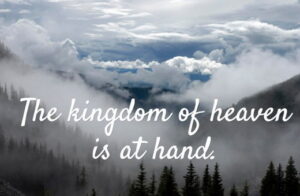 First Reading Hosea 11:1-4,8-9
First Reading Hosea 11:1-4,8-9 First Reading Hosea 10:1-3,7-8,12
First Reading Hosea 10:1-3,7-8,12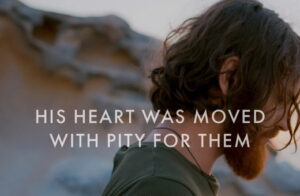 First Reading Hosea 8:4-7,11-13
First Reading Hosea 8:4-7,11-13 First Reading Hosea 2:16,17-18,21-22
First Reading Hosea 2:16,17-18,21-22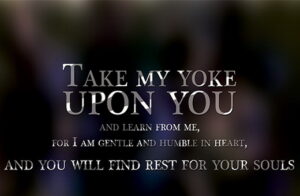 First Reading Zechariah 9:9-10
First Reading Zechariah 9:9-10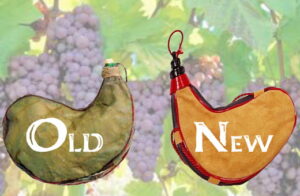 First Reading Amos 9:11-15
First Reading Amos 9:11-15
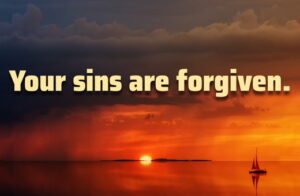 First Reading Amos 7:10-17
First Reading Amos 7:10-17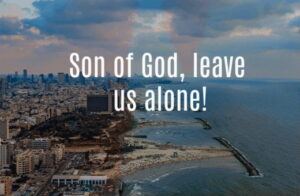 First Reading Amos 5:14-15,21-24
First Reading Amos 5:14-15,21-24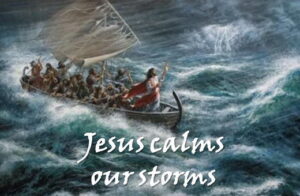 First Reading Amos 3:1-8,4:11-12
First Reading Amos 3:1-8,4:11-12 First Reading Acts 12:1-11
First Reading Acts 12:1-11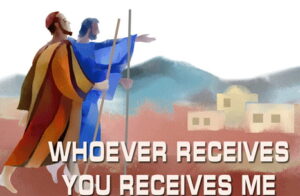 First Reading 2 Kings 4:8-11,13-16
First Reading 2 Kings 4:8-11,13-16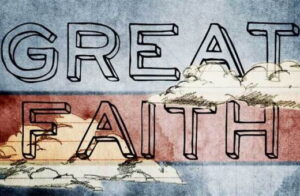 First Reading Lamentations 2:2,10-14,18-19
First Reading Lamentations 2:2,10-14,18-19 First Reading 2 Kings 25:1-12
First Reading 2 Kings 25:1-12 First Reading 2 Kings 24:8-17
First Reading 2 Kings 24:8-17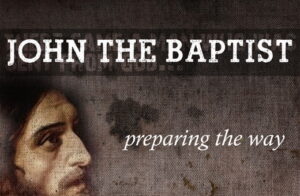 First Reading Jeremiah 1:4-10
First Reading Jeremiah 1:4-10 First Reading 2 Kings 19:9-11,14-21,31-36
First Reading 2 Kings 19:9-11,14-21,31-36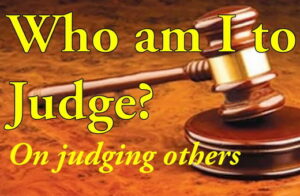 First Reading 2 Kings 17:5-8,13-15,18
First Reading 2 Kings 17:5-8,13-15,18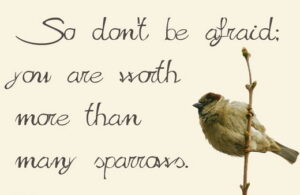 First Reading Jeremiah 20:10-13
First Reading Jeremiah 20:10-13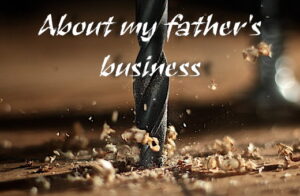 First reading Isaiah 61:9-11
First reading Isaiah 61:9-11 First Reading Deuteronomy 7:6-11
First Reading Deuteronomy 7:6-11 First Reading Ecclesiasticus 48:1-15
First Reading Ecclesiasticus 48:1-15 First Reading 2 Kings 2:1,6-14
First Reading 2 Kings 2:1,6-14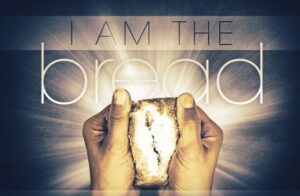 First Reading Deuteronomy 8:2-3,14-16
First Reading Deuteronomy 8:2-3,14-16 First Reading 1 Kings 19:9,11-16
First Reading 1 Kings 19:9,11-16 First Reading Acts 11:21-26,13:1-3
First Reading Acts 11:21-26,13:1-3 First Reading 1 Kings 18:20-39
First Reading 1 Kings 18:20-39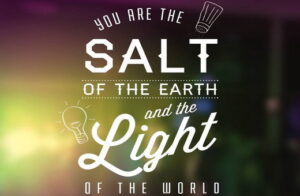 First Reading 1 Kings 17:7-16
First Reading 1 Kings 17:7-16 First Reading 1 Kings 17:1-6
First Reading 1 Kings 17:1-6  First Reading Exodus 34:4-6,8-9
First Reading Exodus 34:4-6,8-9 First Reading 2 Timothy 4:1-8
First Reading 2 Timothy 4:1-8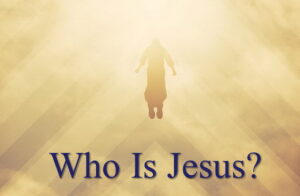 First Reading 2 Timothy 3:10-17
First Reading 2 Timothy 3:10-17 First Reading 2 Timothy 2:8-1
First Reading 2 Timothy 2:8-1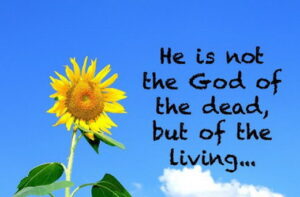 First Reading 2 Timothy 1:1-3,6-12
First Reading 2 Timothy 1:1-3,6-12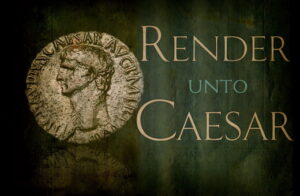 First Reading 2 Peter 3:11-15,17-18
First Reading 2 Peter 3:11-15,17-18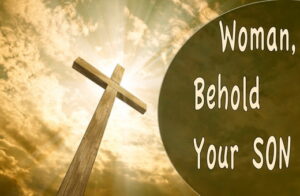 First Reading Genesis 3:9-15,20
First Reading Genesis 3:9-15,20 First Reading Acts 2:1-11
First Reading Acts 2:1-11 First Reading Acts 28:16-20,30-31
First Reading Acts 28:16-20,30-31 First Reading Acts of the Apostles 25,13b-21
First Reading Acts of the Apostles 25,13b-21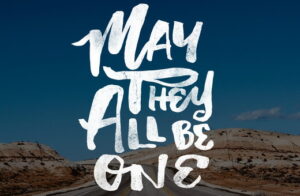 First Reading Acts 22:30,23:6-11
First Reading Acts 22:30,23:6-11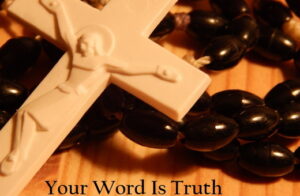 First Reading Acts 20:28-38
First Reading Acts 20:28-38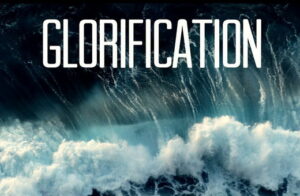 First Reading Acts 20:17-27
First Reading Acts 20:17-27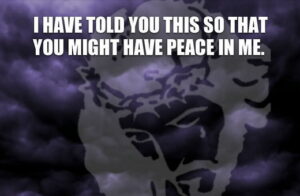 First Reading Acts of the Apostles 19,1-8
First Reading Acts of the Apostles 19,1-8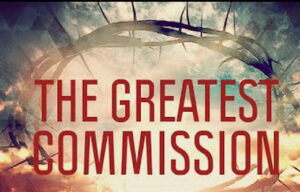 First Reading Acts 1:1-11
First Reading Acts 1:1-11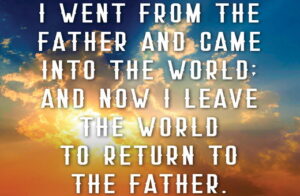 First Reading Acts 18:23-28
First Reading Acts 18:23-28 First Reading Acts 18:9-18
First Reading Acts 18:9-18 First Reading Acts 18:1-8
First Reading Acts 18:1-8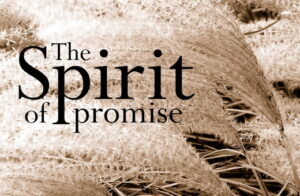 First Reading Acts 17:15,22-18:1
First Reading Acts 17:15,22-18:1 First Reading Acts 16:22-34
First Reading Acts 16:22-34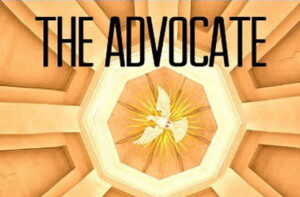 First Reading Acts 16:11-15
First Reading Acts 16:11-15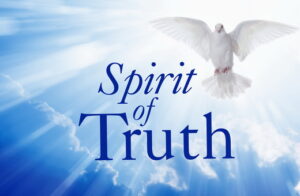 First Reading Acts 8:5-8,14-17
First Reading Acts 8:5-8,14-17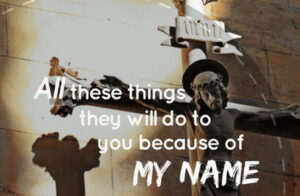 First Reading Acts 16:1-10
First Reading Acts 16:1-10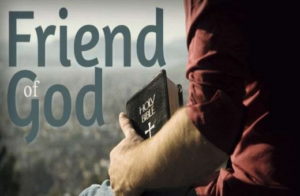 First Reading Acts 15:22-31
First Reading Acts 15:22-31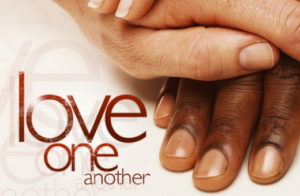 First Reading Acts 1:15-17,20-26
First Reading Acts 1:15-17,20-26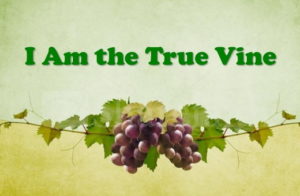 First Reading Acts 15:1-6
First Reading Acts 15:1-6 First Reading Acts 14:19-28
First Reading Acts 14:19-28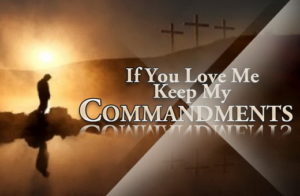 First Reading Acts 14:5-18
First Reading Acts 14:5-18 First Reading Acts 6:1-7
First Reading Acts 6:1-7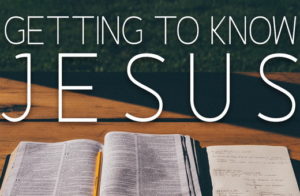 First Reading Acts 13:44-52
First Reading Acts 13:44-52 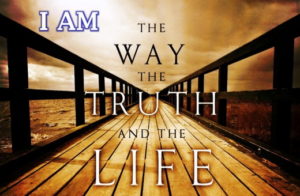 First Reading Acts 13:26-33
First Reading Acts 13:26-33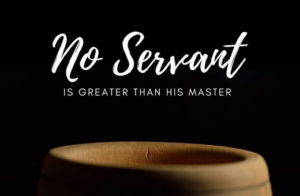 First Reading Acts 13:13-25
First Reading Acts 13:13-25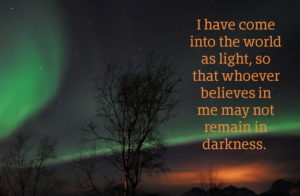 First Reading Acts 12:24-13:5
First Reading Acts 12:24-13:5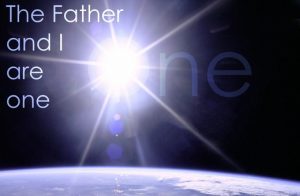 First Reading Acts 11:19-26
First Reading Acts 11:19-26 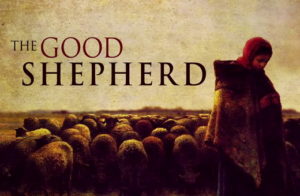 First Reading Acts 11:1-18
First Reading Acts 11:1-18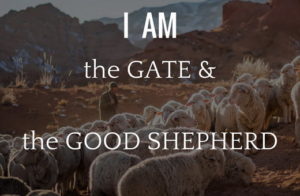 First Reading Acts 2:14,36-41
First Reading Acts 2:14,36-41 First Reading Acts 9:31-42
First Reading Acts 9:31-42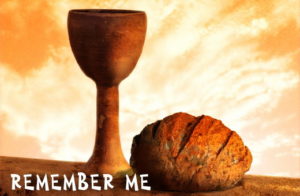 First Reading Acts 9:1-20
First Reading Acts 9:1-20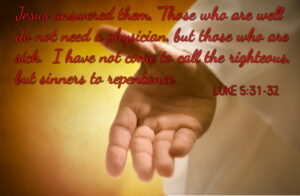 First Reading Book of Isaiah 58, 9b-14.
First Reading Book of Isaiah 58, 9b-14.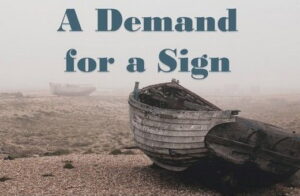 First Reading Book of Genesis 4, 1-15.25.
First Reading Book of Genesis 4, 1-15.25. First Reading Book of Leviticus 13, 1-2.44-46
First Reading Book of Leviticus 13, 1-2.44-46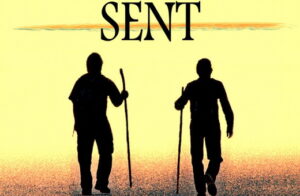 First Reading Letter to the Hebrews 12, 18-19.21-24
First Reading Letter to the Hebrews 12, 18-19.21-24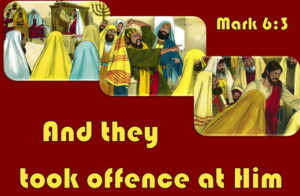 First Reading Letter to the Hebrews 12, 4-7.11-15.
First Reading Letter to the Hebrews 12, 4-7.11-15.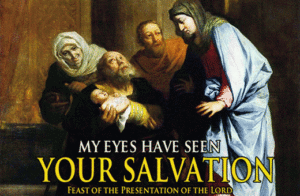 First reading Book of Malachi 3, 1-4
First reading Book of Malachi 3, 1-4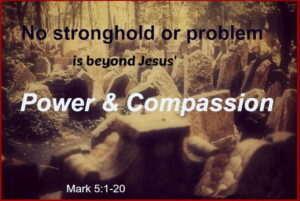 First reading Letter to the Hebrews 11, 32-40
First reading Letter to the Hebrews 11, 32-40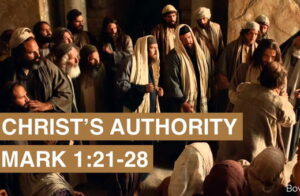 First Reading Book of Deuteronomy 18, 15-20
First Reading Book of Deuteronomy 18, 15-20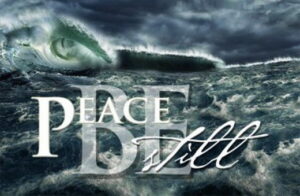 First Reading Letter to the Hebrews 11, 1-2.8-19
First Reading Letter to the Hebrews 11, 1-2.8-19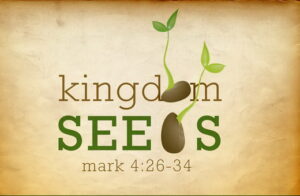 First Reading Letter to the Hebrews 10, 32-39
First Reading Letter to the Hebrews 10, 32-39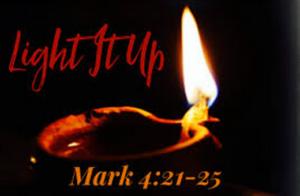 First Reading Letter to the Hebrews 10, 19-25
First Reading Letter to the Hebrews 10, 19-25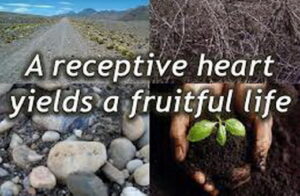 First Reading Letter to the Hebrews 10, 11-18
First Reading Letter to the Hebrews 10, 11-18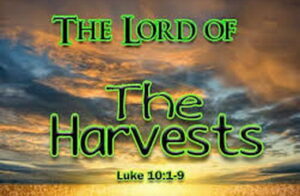 First Reading Second Letter to Timothy 1, 1-8.
First Reading Second Letter to Timothy 1, 1-8.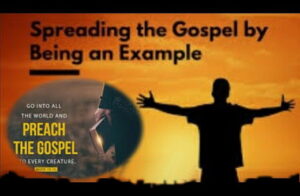 First Reading Acts of the Apostles 22, 3-16
First Reading Acts of the Apostles 22, 3-16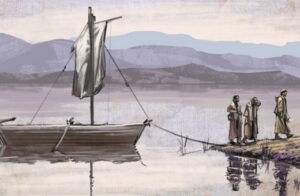 First Reading Book of Jonah 3, 1-5.10
First Reading Book of Jonah 3, 1-5.10 First Reading Letter to the Hebrews 9, 2-3.11-14.
First Reading Letter to the Hebrews 9, 2-3.11-14.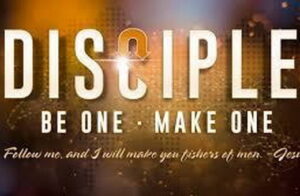 First Reading Letter to the Hebrews 8, 6-13
First Reading Letter to the Hebrews 8, 6-13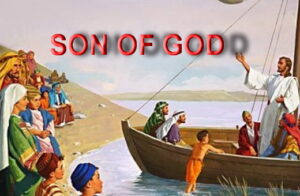 First Reading Letter to the Hebrews 7, 25-28.8,1-6
First Reading Letter to the Hebrews 7, 25-28.8,1-6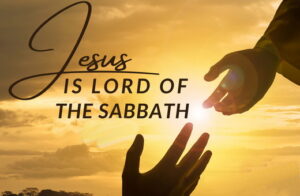 First Reading Letter to the Hebrews 7, 1-3.15-17
First Reading Letter to the Hebrews 7, 1-3.15-17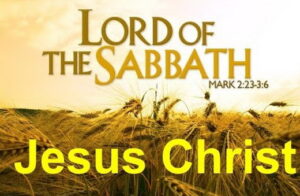 First Reading Letter to the Hebrews 6, 10-20
First Reading Letter to the Hebrews 6, 10-20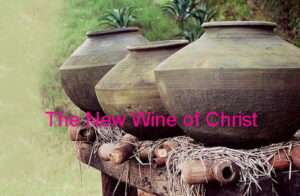 First Reading Letter to the Hebrews 5, 1-10
First Reading Letter to the Hebrews 5, 1-10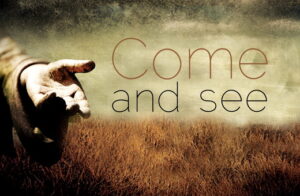 First Reading 1st book of Samuel 3, 3b-10.19
First Reading 1st book of Samuel 3, 3b-10.19 First Reading Letter to the Hebrews 4, 12-16
First Reading Letter to the Hebrews 4, 12-16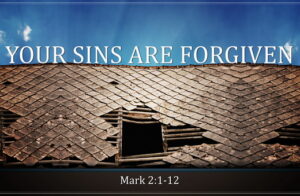 First Reading Letter to the Hebrews 4, 1-5.11
First Reading Letter to the Hebrews 4, 1-5.11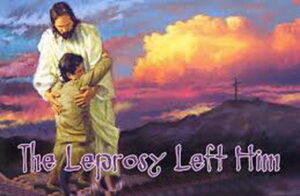 First Reading Letter to the Hebrews 3, 7-14.
First Reading Letter to the Hebrews 3, 7-14.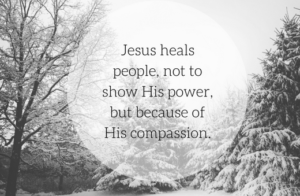 First Reading Letter to the Hebrews 2, 14-18
First Reading Letter to the Hebrews 2, 14-18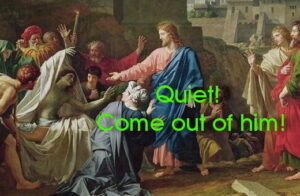 First Reading Letter to the Hebrews 2, 5-12
First Reading Letter to the Hebrews 2, 5-12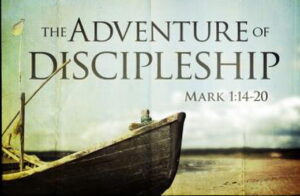 First Reading Letter to the Hebrews 1, 1-6.
First Reading Letter to the Hebrews 1, 1-6.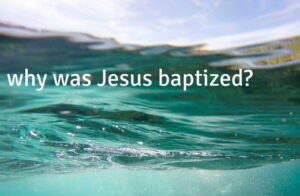 First Reading Book of Isaiah 55,1-11.
First Reading Book of Isaiah 55,1-11.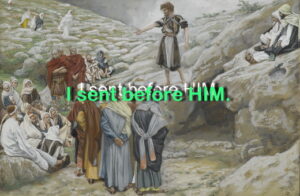 First Reading First Letter of John 5, 14-21
First Reading First Letter of John 5, 14-21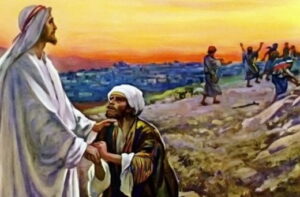 First Reading First Letter of John 5, 5-13
First Reading First Letter of John 5, 5-13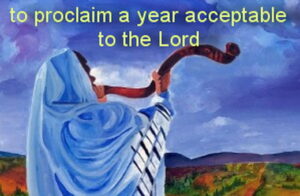 First Reading First Letter of John 4, 19-21.5,1-4
First Reading First Letter of John 4, 19-21.5,1-4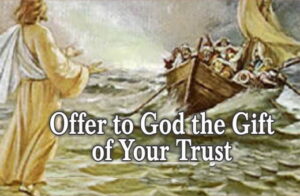 First Reading First Letter of John 4, 11-18
First Reading First Letter of John 4, 11-18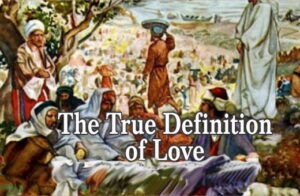 First Reading First Letter of John 3, 11-21
First Reading First Letter of John 3, 11-21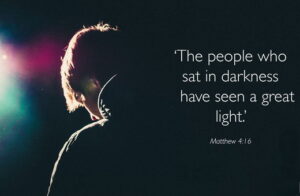 First Reading First Letter of John 3, 7-10
First Reading First Letter of John 3, 7-10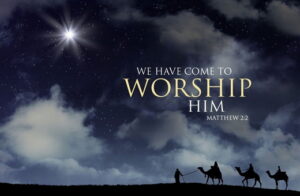 First Reading Book of Isaiah 60, 1-6
First Reading Book of Isaiah 60, 1-6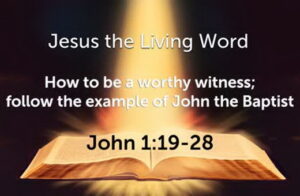 First Reading First Letter of John 2, 22-28
First Reading First Letter of John 2, 22-28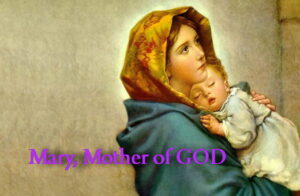 First Reading Book of Numbers 6, 22-27
First Reading Book of Numbers 6, 22-27 First Reading First Letter of John 2, 18-21
First Reading First Letter of John 2, 18-21 First Reading First Letter of John 2, 12-17
First Reading First Letter of John 2, 12-17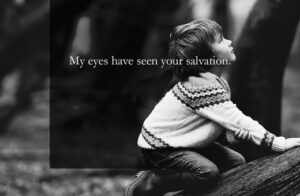 First Reading First Letter of John 2, 3-11
First Reading First Letter of John 2, 3-11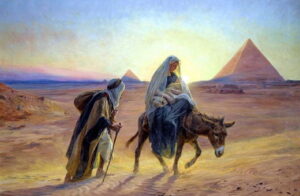 First Reading First Letter of John 1, 5-10.2,1-2
First Reading First Letter of John 1, 5-10.2,1-2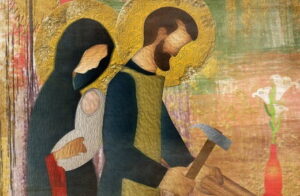 First Reading Book of Genesis 15, 1-6.21, 1-3
First Reading Book of Genesis 15, 1-6.21, 1-3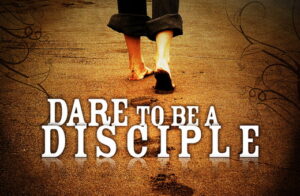 First Reading Acts of the Apostles 6, 8-10.7,54-59
First Reading Acts of the Apostles 6, 8-10.7,54-59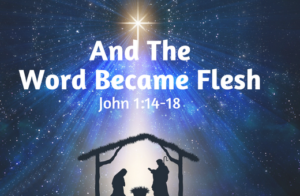 First Reading Book of Isaiah 52, 7-10.
First Reading Book of Isaiah 52, 7-10.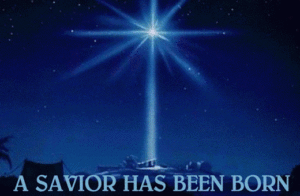 First Reading Book of Isaiah 9, 1-6.
First Reading Book of Isaiah 9, 1-6.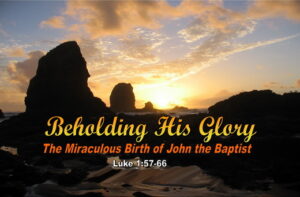 First Reading Book of Malachi 3, 1-4.23-24
First Reading Book of Malachi 3, 1-4.23-24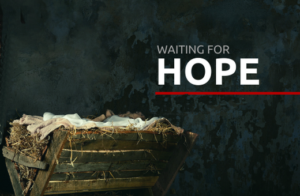 First Reading 1st book of Samuel 1, 24-28.
First Reading 1st book of Samuel 1, 24-28.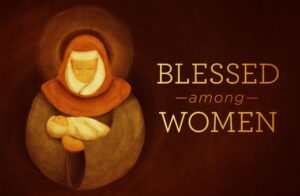 First Reading Song of Songs 2, 8-14
First Reading Song of Songs 2, 8-14 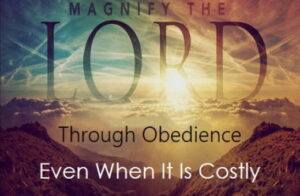 First Reading 2nd book of Samuel 7, 1-5.8b-12.14a.16
First Reading 2nd book of Samuel 7, 1-5.8b-12.14a.16 First Reading Book of Judges 13, 2-7.24-25a
First Reading Book of Judges 13, 2-7.24-25a First Reading Book of Jeremiah 23, 5-8.
First Reading Book of Jeremiah 23, 5-8.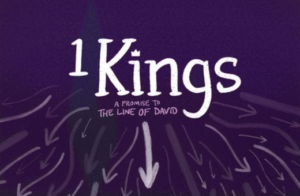 First Reading Book of Genesis 49, 2.8-10
First Reading Book of Genesis 49, 2.8-10 First Reading Book of Isaiah 45, 6b-8.18.21b-25
First Reading Book of Isaiah 45, 6b-8.18.21b-25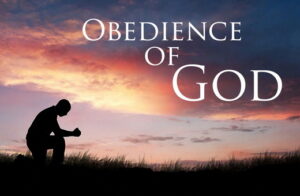
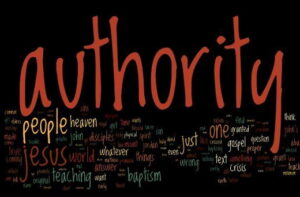 First Reading Book of Numbers 24, 2-7.15-17a.
First Reading Book of Numbers 24, 2-7.15-17a.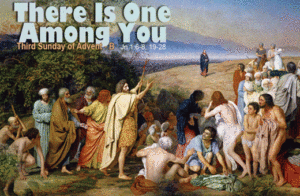 First Reading Book of Isaiah 61, 1-2a.10-11
First Reading Book of Isaiah 61, 1-2a.10-11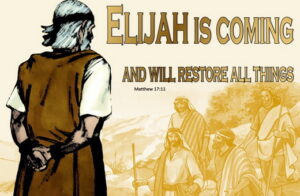 First reading Ecclesiasticus 48:1-4, 9-12
First reading Ecclesiasticus 48:1-4, 9-12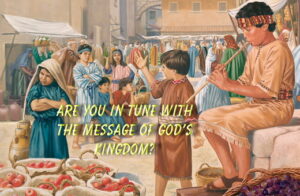 First Reading Book of Isaiah 48, 17-19
First Reading Book of Isaiah 48, 17-19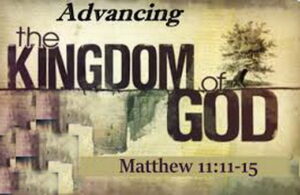 First Reading Book of Isaiah 41, 13-20
First Reading Book of Isaiah 41, 13-20
 First Reading Book of Genesis 3, 9-15.20
First Reading Book of Genesis 3, 9-15.20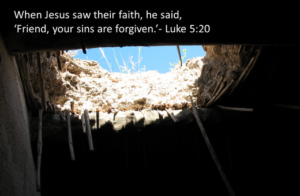 First Reading Book of Isaiah 35, 1-10
First Reading Book of Isaiah 35, 1-10 First Reading Book of Isaiah 40, 1-5.9-11
First Reading Book of Isaiah 40, 1-5.9-11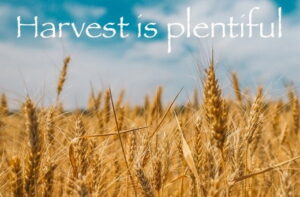 First Reading Book of Isaiah 30, 19-21.23-26
First Reading Book of Isaiah 30, 19-21.23-26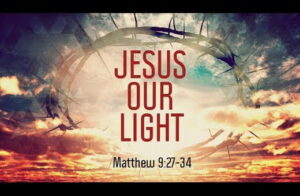 First Reading Book of Isaiah 29, 17-24
First Reading Book of Isaiah 29, 17-24 First Reading Book of Isaiah 26, 1-6
First Reading Book of Isaiah 26, 1-6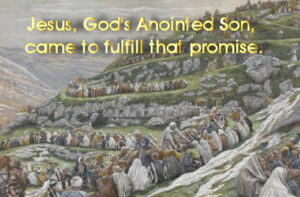 First Reading Book of Isaiah 25, 6-10a
First Reading Book of Isaiah 25, 6-10a First Reading Isaiah 11:1-10
First Reading Isaiah 11:1-10 Tranditionally on the Sunday after Christmas we celebrate the feast of the Holy Family.
Tranditionally on the Sunday after Christmas we celebrate the feast of the Holy Family.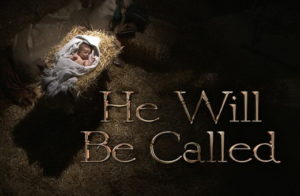 Christian families not only belong to the Church, their lifestyle is a living out of the Christian vision: the vision of unconditional love in a truly sharing community.
Christian families not only belong to the Church, their lifestyle is a living out of the Christian vision: the vision of unconditional love in a truly sharing community. Jewish weddings involved three stages. First, there was the engagement. This was often prearranged by the parents or a matchmaker while the couple were still young children. Marriages were primarily seen as the union of families and the continuing of the family line. They were not primarily unions of love, as we expect today. Of course, in the course of time husband and wife could become deeply bonded by a genuine love and caring for each other. But it was procreation, especially the bearing of sons, that was the first priority. So we see in Old Testament times how cursed women felt who could not bear sons for their husband and his family.
Jewish weddings involved three stages. First, there was the engagement. This was often prearranged by the parents or a matchmaker while the couple were still young children. Marriages were primarily seen as the union of families and the continuing of the family line. They were not primarily unions of love, as we expect today. Of course, in the course of time husband and wife could become deeply bonded by a genuine love and caring for each other. But it was procreation, especially the bearing of sons, that was the first priority. So we see in Old Testament times how cursed women felt who could not bear sons for their husband and his family.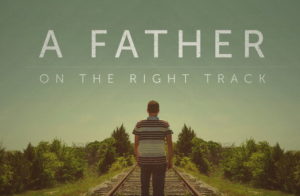 Before Jesus leaves his disciples at the Ascension, his last words (in Matthew’s Gospel) are: “I am with you always – to the very end of time” . Right down to the present, Jesus continues to be Emmanuel. And that is why we continue to celebrate the birth of Jesus 2,000 years on. Through his Body, the Church, the Christian community, Jesus continues to be visibly present in word and action. This Eucharist is our sacramental celebration of that presence, a presence in every single one of us here.
Before Jesus leaves his disciples at the Ascension, his last words (in Matthew’s Gospel) are: “I am with you always – to the very end of time” . Right down to the present, Jesus continues to be Emmanuel. And that is why we continue to celebrate the birth of Jesus 2,000 years on. Through his Body, the Church, the Christian community, Jesus continues to be visibly present in word and action. This Eucharist is our sacramental celebration of that presence, a presence in every single one of us here.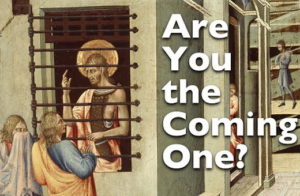 The Mass text and readings today are full of joy, especially the Entrance Song, the Opening Prayer and the First Reading from Isaiah.
The Mass text and readings today are full of joy, especially the Entrance Song, the Opening Prayer and the First Reading from Isaiah.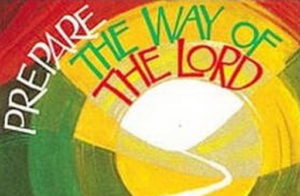 John was strong. He was a man of integrity. He was not one of the rich and famous. He was no pop star – all sound and no substance. He would never have made a glamorous icon for Hello magazine. Yet many people went out to hear him, to be challenged by him, to have their lives radically changed by his words.
John was strong. He was a man of integrity. He was not one of the rich and famous. He was no pop star – all sound and no substance. He would never have made a glamorous icon for Hello magazine. Yet many people went out to hear him, to be challenged by him, to have their lives radically changed by his words.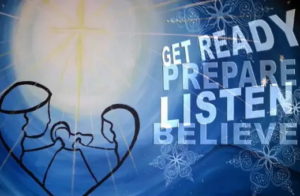 In today’s Mass in the context of Advent and Christmas. There is a real challenge for us to identify with this programme in word and action. Strange as it may seem, God expects our co-operation in carrying it out.
In today’s Mass in the context of Advent and Christmas. There is a real challenge for us to identify with this programme in word and action. Strange as it may seem, God expects our co-operation in carrying it out. We are probably well into preparations for the celebration of Christmas. But what preparations have I made for the time afterwards, for the year that is ahead? Will Jesus be really part of my life? Will he really be entering my life in a special way at this time? Are his concerns my concerns? Namely, a desire that I be of service to others, that I work with others to build a better society, founded on love and justice and an equitable sharing of resources.
We are probably well into preparations for the celebration of Christmas. But what preparations have I made for the time afterwards, for the year that is ahead? Will Jesus be really part of my life? Will he really be entering my life in a special way at this time? Are his concerns my concerns? Namely, a desire that I be of service to others, that I work with others to build a better society, founded on love and justice and an equitable sharing of resources.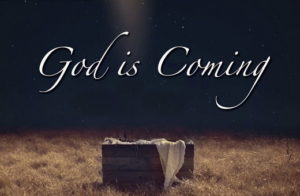 Many of us are like the people mentioned in today’s Gospel: “Before the flood they were eating and drinking, marrying and giving in marriage, until the day Noah entered the ark, and they knew nothing till the flood came and swept them all away…” These people were doing very ordinary things. Exactly the same things that we do. But they were so busy doing them that they failed to give any thought to where their lives were ultimately leading and what was the goal of that life.
Many of us are like the people mentioned in today’s Gospel: “Before the flood they were eating and drinking, marrying and giving in marriage, until the day Noah entered the ark, and they knew nothing till the flood came and swept them all away…” These people were doing very ordinary things. Exactly the same things that we do. But they were so busy doing them that they failed to give any thought to where their lives were ultimately leading and what was the goal of that life.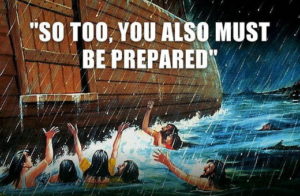 Instead, we need to develop our relations with God and with our brothers and sisters based on a caring and unconditional love for all. We need to learn how to find God, to find Jesus in every person, in every experience. We need to respect every person as the image of God. We are to love our neighbours as ourselves, to love everyone just as Jesus loved us.
Instead, we need to develop our relations with God and with our brothers and sisters based on a caring and unconditional love for all. We need to learn how to find God, to find Jesus in every person, in every experience. We need to respect every person as the image of God. We are to love our neighbours as ourselves, to love everyone just as Jesus loved us. For this feast of Christ the King of the Universe, on this last Sunday of the liturgical year, the Church proposes to us a Gospel that is violent, wild, impassioned. The Kingship of Christ has been disputed from its earliest days: shortly after he had appeared in this world, Christ the King was already being rejected and persecuted! After the Magi asked King Herod: “Where is the King of the Jews who has just been born?” , that merciless despot massacred hundreds of little children: the first martyrs of the kingship of Christ!
For this feast of Christ the King of the Universe, on this last Sunday of the liturgical year, the Church proposes to us a Gospel that is violent, wild, impassioned. The Kingship of Christ has been disputed from its earliest days: shortly after he had appeared in this world, Christ the King was already being rejected and persecuted! After the Magi asked King Herod: “Where is the King of the Jews who has just been born?” , that merciless despot massacred hundreds of little children: the first martyrs of the kingship of Christ!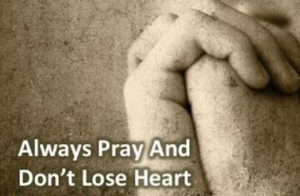 Thus, one of the two criminals nailed to the crosses on either side of Jesus recognized that what he suffered at that moment was just: “We are receiving the due reward of our deeds.” He admitted to having done evil, but the acceptance of his punishment proves that he was repentant and that he hoped from the bottom of his heart to obtain the forgiveness of God… So he addressed himself to Jesus, whom he recognized as King of the Jews, and said to him: “Jesus, remember me when you come into your kingdom!” This “good thief”, known by the name of Saint Dismas, already does justice to the Kingdom of God and, with all his heart, under the influence of the Holy Spirit, calls for the Return of the Lord in Glory!
Thus, one of the two criminals nailed to the crosses on either side of Jesus recognized that what he suffered at that moment was just: “We are receiving the due reward of our deeds.” He admitted to having done evil, but the acceptance of his punishment proves that he was repentant and that he hoped from the bottom of his heart to obtain the forgiveness of God… So he addressed himself to Jesus, whom he recognized as King of the Jews, and said to him: “Jesus, remember me when you come into your kingdom!” This “good thief”, known by the name of Saint Dismas, already does justice to the Kingdom of God and, with all his heart, under the influence of the Holy Spirit, calls for the Return of the Lord in Glory!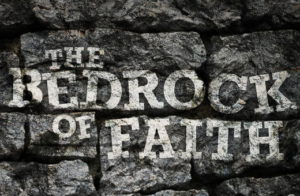 Today, the Church celebrates the thirty-third Sunday of the year. Soon it will be the end of the liturgical year: next Sunday, we will celebrate the feast of Christ the King, and in two weeks, we will begin liturgical year 2008. Now, the liturgical year forms a complete cycle, a time during which the Church relives the entire history of Salvation in Jesus Christ. So, since we are at the end of the present cycle, today’s readings speak to us of the end of human history and of the Return of the Lord at the end of time.
Today, the Church celebrates the thirty-third Sunday of the year. Soon it will be the end of the liturgical year: next Sunday, we will celebrate the feast of Christ the King, and in two weeks, we will begin liturgical year 2008. Now, the liturgical year forms a complete cycle, a time during which the Church relives the entire history of Salvation in Jesus Christ. So, since we are at the end of the present cycle, today’s readings speak to us of the end of human history and of the Return of the Lord at the end of time.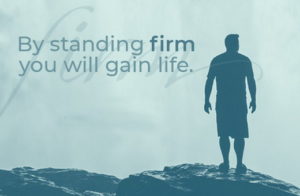 The words of the Lord apply to every age and to every persecution that the Church has had to undergo throughout the ages. But as for the final struggle, the final battle, that which we call the “agony”, it truly seems, according to the words of the Lord, that this conflict will take place on the level of ideas and words, and not so much on that of physical violence, even if some people will die. Indeed, Jesus assures us: “But not a hair will not fall from your head.” Thus, the elect of God, those who will have confidence in the Lord and his Holy Spirit, will be engaged in a spiritual and intellectual contest – one could even call it psychological warfare – from which they will emerge victorious thanks to the very Wisdom of God, in which they will then share.
The words of the Lord apply to every age and to every persecution that the Church has had to undergo throughout the ages. But as for the final struggle, the final battle, that which we call the “agony”, it truly seems, according to the words of the Lord, that this conflict will take place on the level of ideas and words, and not so much on that of physical violence, even if some people will die. Indeed, Jesus assures us: “But not a hair will not fall from your head.” Thus, the elect of God, those who will have confidence in the Lord and his Holy Spirit, will be engaged in a spiritual and intellectual contest – one could even call it psychological warfare – from which they will emerge victorious thanks to the very Wisdom of God, in which they will then share. Five days before his Resurrection from the dead, Jesus is questioned by members of the sect of the Sadducees, men who may have been religious but who did not believe in the resurrection of the body. Jesus, the Savior of men, had just resurrected Lazarus a few days earlier, saying on that occasion: “I am the resurrection and the life!” This signifies that the Resurrection was very much on Jesus’ mind: he was already living it! These Sadducees had chosen a very bad time to try to deny the resurrection… Or rather, the Evil One, the Devil, had chosen a very good occasion to try to discourage the Savior by whom he – the enemy of human nature, the angel of darkness and of eternal death – was about to be defeated…
Five days before his Resurrection from the dead, Jesus is questioned by members of the sect of the Sadducees, men who may have been religious but who did not believe in the resurrection of the body. Jesus, the Savior of men, had just resurrected Lazarus a few days earlier, saying on that occasion: “I am the resurrection and the life!” This signifies that the Resurrection was very much on Jesus’ mind: he was already living it! These Sadducees had chosen a very bad time to try to deny the resurrection… Or rather, the Evil One, the Devil, had chosen a very good occasion to try to discourage the Savior by whom he – the enemy of human nature, the angel of darkness and of eternal death – was about to be defeated… Jesus quotes God’s words to Moses: “I am the God of your father, the God of Abraham, the God of Isaac, and the God of Jacob.” Jesus quotes these words, not only in order to try to convince the Sadducees, but above all to express his desire for his own Resurrection, which will take place in five days… Jesus is three days away from his Passion and death: thinking of his coming Resurrection is, for him, the greatest of consolations! But saying and proclaiming it also strengthens his confidence in the Omnipotence of his Father, who is in Heaven!
Jesus quotes God’s words to Moses: “I am the God of your father, the God of Abraham, the God of Isaac, and the God of Jacob.” Jesus quotes these words, not only in order to try to convince the Sadducees, but above all to express his desire for his own Resurrection, which will take place in five days… Jesus is three days away from his Passion and death: thinking of his coming Resurrection is, for him, the greatest of consolations! But saying and proclaiming it also strengthens his confidence in the Omnipotence of his Father, who is in Heaven! The episode recounted by Saint Luke in this Sunday’s Gospel takes place shortly before the Passion of the Lord. After going to Jericho, Jesus would continue on to Bethany and then to Jerusalem, entering that city in triumph on Palm Sunday. Jesus had a well-established reputation: he was thought to be the great Prophet that everyone awaited, the Messiah! So a multitude of people rushed to Jericho when Jesus went there. There were many people there, so many in fact that those who were of small stature, like Zacchaeus, a publican or tax-collector, could not see this Jesus about whom one heard so much: “He sought to see who Jesus was, but could not, on account of the crowd, because he was small of stature.”
The episode recounted by Saint Luke in this Sunday’s Gospel takes place shortly before the Passion of the Lord. After going to Jericho, Jesus would continue on to Bethany and then to Jerusalem, entering that city in triumph on Palm Sunday. Jesus had a well-established reputation: he was thought to be the great Prophet that everyone awaited, the Messiah! So a multitude of people rushed to Jericho when Jesus went there. There were many people there, so many in fact that those who were of small stature, like Zacchaeus, a publican or tax-collector, could not see this Jesus about whom one heard so much: “He sought to see who Jesus was, but could not, on account of the crowd, because he was small of stature.” Zacchaeus was a sinner… Who is not a sinner? Who has never been one? Only the Most Blessed Virgin Mary has never sinned. So, when Jesus says: “the Son of man came to seek and to save the lost,” does this mean that Jesus did not come to earth for Mary? Certainly not. Jesus came into the world first for Mary – for she was the first, in time, to benefit from the presence of the Savior – and then for all other men and women. But Mary, included in time, far from rejecting sinners, forms but a single body with them, with us! Mary, conceived without sin, is the Mother of all men: she has, with all sinners, a unique link, one that renders her solidary with everyone!
Zacchaeus was a sinner… Who is not a sinner? Who has never been one? Only the Most Blessed Virgin Mary has never sinned. So, when Jesus says: “the Son of man came to seek and to save the lost,” does this mean that Jesus did not come to earth for Mary? Certainly not. Jesus came into the world first for Mary – for she was the first, in time, to benefit from the presence of the Savior – and then for all other men and women. But Mary, included in time, far from rejecting sinners, forms but a single body with them, with us! Mary, conceived without sin, is the Mother of all men: she has, with all sinners, a unique link, one that renders her solidary with everyone!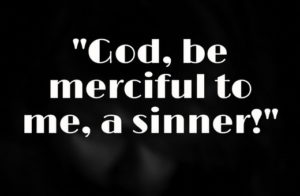 This is a well-known parable: that of the Pharisee and the publican! Everyone can recognize himself in one of these two characters. But in which? In the Pharisee, or the publican? This is the question we ask ourselves today. If we see ourselves in the publican, then I strongly suspect that we are false publicans and, alas, true Pharisees… For it is not a question of how WE see ourselves, what WE think of ourselves, how WE justify ourselves, but rather of what we are in the eyes of God. It is, in fact, God who justifies man, and not man who justifies himself.
This is a well-known parable: that of the Pharisee and the publican! Everyone can recognize himself in one of these two characters. But in which? In the Pharisee, or the publican? This is the question we ask ourselves today. If we see ourselves in the publican, then I strongly suspect that we are false publicans and, alas, true Pharisees… For it is not a question of how WE see ourselves, what WE think of ourselves, how WE justify ourselves, but rather of what we are in the eyes of God. It is, in fact, God who justifies man, and not man who justifies himself.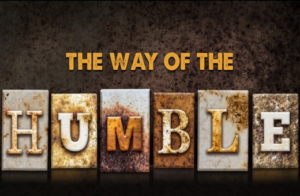 The humble man is a true man, the humble woman is a true woman. May we have such men and women to govern the world – all countries, regions, cities and towns! For these men and women would be true lights for the entire world, capable of sometimes acting in ways that are heroic and impartial, capable of doing “good works” for the benefit of all humanity. True and remarkable personalities, men and women who can serve as role models for their fellow citizens – this is what today’s world needs so much!
The humble man is a true man, the humble woman is a true woman. May we have such men and women to govern the world – all countries, regions, cities and towns! For these men and women would be true lights for the entire world, capable of sometimes acting in ways that are heroic and impartial, capable of doing “good works” for the benefit of all humanity. True and remarkable personalities, men and women who can serve as role models for their fellow citizens – this is what today’s world needs so much!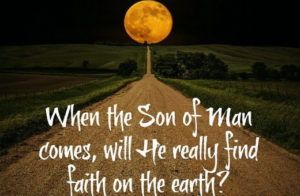 Jesus says that we “ought always to pray and not lose heart.” This is not a command we are obliged to obey: it is advice. When we have nothing to do, let us pray! There are many times throughout the day when we are unoccupied: if we drive a car, there are many times when we must stop – which would ordinarily threaten our patience – and these are favourable times to pray; if we travel by bus or subway, then too we have free time in which to pray! He who is clever can always find time for anything he wants to do: so then why not dedicate this cleverness to finding time for prayer? It is not necessary to say long prayers: indeed, many very short prayers are worth a long one!
Jesus says that we “ought always to pray and not lose heart.” This is not a command we are obliged to obey: it is advice. When we have nothing to do, let us pray! There are many times throughout the day when we are unoccupied: if we drive a car, there are many times when we must stop – which would ordinarily threaten our patience – and these are favourable times to pray; if we travel by bus or subway, then too we have free time in which to pray! He who is clever can always find time for anything he wants to do: so then why not dedicate this cleverness to finding time for prayer? It is not necessary to say long prayers: indeed, many very short prayers are worth a long one! On the eve of his Passion, Jesus said to Simon Peter: “I have prayed for you that your faith may not fail.” This, to some extent, is an answer to the question asked by the Lord: “When the Son of man comes, will he find faith on earth?” For Peter and the Church are one: the same unique Mystery, that of the Mystical Body of Christ. Yes, Jesus will find faith on earth when he returns, for he PRAYED for Simon Peter, and thus also for the entire Church! But, the key to the problem is always the same: PRAYER!
On the eve of his Passion, Jesus said to Simon Peter: “I have prayed for you that your faith may not fail.” This, to some extent, is an answer to the question asked by the Lord: “When the Son of man comes, will he find faith on earth?” For Peter and the Church are one: the same unique Mystery, that of the Mystical Body of Christ. Yes, Jesus will find faith on earth when he returns, for he PRAYED for Simon Peter, and thus also for the entire Church! But, the key to the problem is always the same: PRAYER!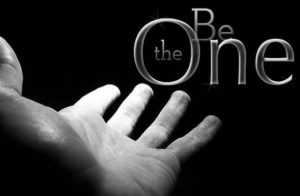 God created man in his image and likeness . The Lord gave man a body and a soul, in order that, through these two elements, of which he is composed, man might truly be the creature closest to God, and, at the same time, the summary of all creation. For, in the universe the Lord created in his Love, there are, at one extreme, material beings which are always composite and multiple; and at the other extreme, spiritual beings – the angels – which are always simple and unique. Thus, in man, God joined together that which is multiple – in his body – and that which is unique – in his soul. And thus, the Lord created in man a being that resembles him, since, in his infinite Love, God is multiple divine Persons, eternally united to each other.
God created man in his image and likeness . The Lord gave man a body and a soul, in order that, through these two elements, of which he is composed, man might truly be the creature closest to God, and, at the same time, the summary of all creation. For, in the universe the Lord created in his Love, there are, at one extreme, material beings which are always composite and multiple; and at the other extreme, spiritual beings – the angels – which are always simple and unique. Thus, in man, God joined together that which is multiple – in his body – and that which is unique – in his soul. And thus, the Lord created in man a being that resembles him, since, in his infinite Love, God is multiple divine Persons, eternally united to each other.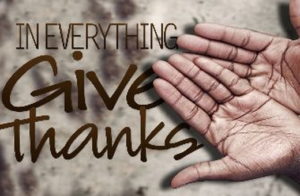 This is a lesson for all of us, a lesson of vigilance and gratitude towards divine Providence. The path of spiritual life, represented by the road taken by the ten lepers, is a difficult path, one that is sometimes filled with obstacles. Only he who is vigilant follows the right way, which is Christ . Moreover, this Way is the only one that saves: “And he said to him, «Rise and go your way; your faith has made you well.» ” On the Way of Salvation, everything matters: it is our entire person, both body and soul, that must give thanks to God. We should not follow Jesus from afar: we must be very close to him, in our faith, our hope, our charity, but also in our body, just like Mary, a strong woman who stood at the foot of the Cross! The Savior of men is not a being who is absent and distant from us: he is here, nearby, so close that he comes into us at each Eucharist!
This is a lesson for all of us, a lesson of vigilance and gratitude towards divine Providence. The path of spiritual life, represented by the road taken by the ten lepers, is a difficult path, one that is sometimes filled with obstacles. Only he who is vigilant follows the right way, which is Christ . Moreover, this Way is the only one that saves: “And he said to him, «Rise and go your way; your faith has made you well.» ” On the Way of Salvation, everything matters: it is our entire person, both body and soul, that must give thanks to God. We should not follow Jesus from afar: we must be very close to him, in our faith, our hope, our charity, but also in our body, just like Mary, a strong woman who stood at the foot of the Cross! The Savior of men is not a being who is absent and distant from us: he is here, nearby, so close that he comes into us at each Eucharist! Today we have a rather short Gospel. But this text has the advantage of providing us with a complete lesson on faith and on our relation with God. For, what is faith if not the supernatural virtue through which eternal life is already begun in us ? Indeed, through faith, we already share in the very life of God: we live in communion with God.
Today we have a rather short Gospel. But this text has the advantage of providing us with a complete lesson on faith and on our relation with God. For, what is faith if not the supernatural virtue through which eternal life is already begun in us ? Indeed, through faith, we already share in the very life of God: we live in communion with God. Indeed, Jesus has just said: “If you had faith as a grain of mustard seed, you could say to this sycamine tree, ‘Be rooted up, and be planted in the sea,’ and it would obey you.” Now, this would be a miracle, an exemption from the laws of nature: if a tree would cast itself into the sea, or if a mountain would suddenly move from one place to another by itself, due solely to the fact that we believed that God could do this, then there is no doubt that this would not be a natural act, but rather an act of God. If we do what God wants, then God does what we want!
Indeed, Jesus has just said: “If you had faith as a grain of mustard seed, you could say to this sycamine tree, ‘Be rooted up, and be planted in the sea,’ and it would obey you.” Now, this would be a miracle, an exemption from the laws of nature: if a tree would cast itself into the sea, or if a mountain would suddenly move from one place to another by itself, due solely to the fact that we believed that God could do this, then there is no doubt that this would not be a natural act, but rather an act of God. If we do what God wants, then God does what we want!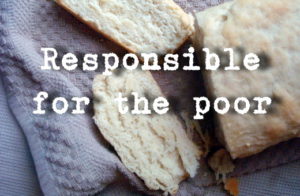 For us Christians, often as deeply infected with these ideas as anyone, there is another distortion as well. Our way of living our faith can be very individualistic and self-centred. The emphasis is on personal salvation (“saving my soul”) and that is achieved by being a morally good person. Morally good means avoiding actions which are ethically wrong, such as, failing to worship God in the “official” way, committing violent actions against others, behaving in a sexually immoral way (we coyly use the word “impure”), stealing things from people, gossiping maliciously about others, being jealous, envious, angry, resentful… and so on. Seldom in confession do people say: “I was not a loving person” but that they broke rules and disappointed themselves. Seldom do people confess the harm that their sins caused in others. I have never heard a person confess to cheating on taxes, although this is one of the chief ways in which people fail to express solidarity for the less well-off in their community.
For us Christians, often as deeply infected with these ideas as anyone, there is another distortion as well. Our way of living our faith can be very individualistic and self-centred. The emphasis is on personal salvation (“saving my soul”) and that is achieved by being a morally good person. Morally good means avoiding actions which are ethically wrong, such as, failing to worship God in the “official” way, committing violent actions against others, behaving in a sexually immoral way (we coyly use the word “impure”), stealing things from people, gossiping maliciously about others, being jealous, envious, angry, resentful… and so on. Seldom in confession do people say: “I was not a loving person” but that they broke rules and disappointed themselves. Seldom do people confess the harm that their sins caused in others. I have never heard a person confess to cheating on taxes, although this is one of the chief ways in which people fail to express solidarity for the less well-off in their community.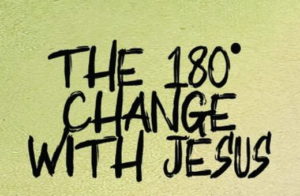 The rich man made no move whatever to share what he had at the table. He could have done so at either of two levels. First, he could have seen to it that the poor man had enough to eat and he might even have gone further and “donated” medical treatment. This is the level of “charity”, the level most of us feel good about doing. But it is not yet the Gospel.
The rich man made no move whatever to share what he had at the table. He could have done so at either of two levels. First, he could have seen to it that the poor man had enough to eat and he might even have gone further and “donated” medical treatment. This is the level of “charity”, the level most of us feel good about doing. But it is not yet the Gospel.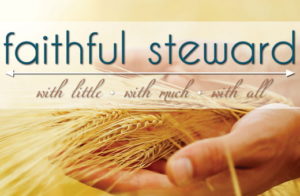 Jesus teaches his disciples: he pursues his catechesis through the use of a new parable, one which he will use to direct their minds to the realities of Heaven; and this he will accomplish by starting with the terrestrial realities to which we are most attached: money and profit of all kinds. “There was a rich man who had a steward… He said to him, Turn in the account of your stewardship…” At the end of our life, the Lord will also say to each one of us: “Turn in the account of your stewardship! I filled you with grace and talents of all kinds, what did you do with them? It is time!” Or rather, the Lord will say, “There is no more time! Henceforth you will no longe…”
Jesus teaches his disciples: he pursues his catechesis through the use of a new parable, one which he will use to direct their minds to the realities of Heaven; and this he will accomplish by starting with the terrestrial realities to which we are most attached: money and profit of all kinds. “There was a rich man who had a steward… He said to him, Turn in the account of your stewardship…” At the end of our life, the Lord will also say to each one of us: “Turn in the account of your stewardship! I filled you with grace and talents of all kinds, what did you do with them? It is time!” Or rather, the Lord will say, “There is no more time! Henceforth you will no longe…”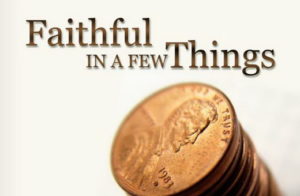 We have to forgive everyone who has offended us! For, in this way, we will make friends: “Make friends for yourselves by means of unrighteous mammon…” Forgiveness produces the unity of all the believers in Christ and, through this unity, the unity of all men and women on earth! There is still time! It is not too late to forgive the person who offended us! At this moment, it is still not too late, but the day will come, perhaps very soon, when there will be no more forgiveness possible… Then it will be too late; it will be the moment of eternity, when it will be necessary that we turn in the account of our stewardship! On that day, we will no longer be able to find unrighteous mammon: we will be without it, for there will be no more forgiveness! “Make friends for yourselves by means of unrighteous mammon, so that when it fails they may receive you into the eternal habitations.”
We have to forgive everyone who has offended us! For, in this way, we will make friends: “Make friends for yourselves by means of unrighteous mammon…” Forgiveness produces the unity of all the believers in Christ and, through this unity, the unity of all men and women on earth! There is still time! It is not too late to forgive the person who offended us! At this moment, it is still not too late, but the day will come, perhaps very soon, when there will be no more forgiveness possible… Then it will be too late; it will be the moment of eternity, when it will be necessary that we turn in the account of our stewardship! On that day, we will no longer be able to find unrighteous mammon: we will be without it, for there will be no more forgiveness! “Make friends for yourselves by means of unrighteous mammon, so that when it fails they may receive you into the eternal habitations.”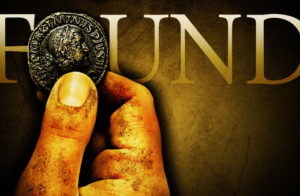 “When the time had fully come, God sent forth his Son, born of woman…” With these few words, Saint Paul summarizes God’s Work for the men and women he created in his Love: God sent his Son… This sending, this mission had been prepared a long time beforehand, ever since Adam and Eve, unfortunately, sinned against the Lord. During the time of preparation, God already sent his grace, a grace that was not yet that of Jesus the Savior, but a grace that made it possible for men to faithfully await the promised Messiah. Finally there came the fullness of time, the hour when the preparation was complete and when the Messiah was finally to be sent to save all the men and women of the earth.
“When the time had fully come, God sent forth his Son, born of woman…” With these few words, Saint Paul summarizes God’s Work for the men and women he created in his Love: God sent his Son… This sending, this mission had been prepared a long time beforehand, ever since Adam and Eve, unfortunately, sinned against the Lord. During the time of preparation, God already sent his grace, a grace that was not yet that of Jesus the Savior, but a grace that made it possible for men to faithfully await the promised Messiah. Finally there came the fullness of time, the hour when the preparation was complete and when the Messiah was finally to be sent to save all the men and women of the earth.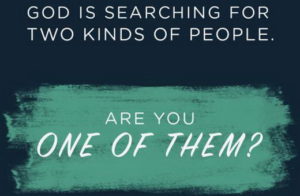 God is truly good, He is infinitely merciful! The Lord unceasingly waits for the sinner with compassion, lavishing upon him his all-powerful grace in order to help him on the way to conversion. He even sends him an angel to watch over him: his guardian angel! The mission of this angel, of this spiritual being, is to safeguard and to facilitate the transmission of the grace of God to the man or woman the angel has in his care. It is thus completely natural that the angels would express joy when a sinner converts himself by accepting the grace of God and rejecting all attachment to sin: “There is joy before the angels of God over one sinner who repents.”
God is truly good, He is infinitely merciful! The Lord unceasingly waits for the sinner with compassion, lavishing upon him his all-powerful grace in order to help him on the way to conversion. He even sends him an angel to watch over him: his guardian angel! The mission of this angel, of this spiritual being, is to safeguard and to facilitate the transmission of the grace of God to the man or woman the angel has in his care. It is thus completely natural that the angels would express joy when a sinner converts himself by accepting the grace of God and rejecting all attachment to sin: “There is joy before the angels of God over one sinner who repents.” Jesus is on the road, going from village to village to proclaim the coming of the Kingdom of God. For the Kingdom of God had come: Jesus, the Son of God, is here! The fullness of time is accomplished: God has sent his Son, born of a woman ! Wonder of wonders! Everyone who had been able to get close to the Lord had witnessed many miracles, and healings without number: truly, all are amazed! One might think one were already in the time of the Resurrection of bodies, that time when there is no more time, for it will be the end of time, that ultimate moment where the Glory of God will appear in all its splendor!
Jesus is on the road, going from village to village to proclaim the coming of the Kingdom of God. For the Kingdom of God had come: Jesus, the Son of God, is here! The fullness of time is accomplished: God has sent his Son, born of a woman ! Wonder of wonders! Everyone who had been able to get close to the Lord had witnessed many miracles, and healings without number: truly, all are amazed! One might think one were already in the time of the Resurrection of bodies, that time when there is no more time, for it will be the end of time, that ultimate moment where the Glory of God will appear in all its splendor!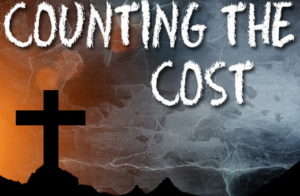 This is what Jesus wants to make us understand through the examples or parables he tells us today. Both the man who wants to build a tower and the man who wants to go to war must act with prudence, a prudence that must lead them to reflect and to envisage what might happen to them if they follow the route they are considering. He who wants to build a tower must foresee the need for sufficient money to complete his construction, and he who wants to go to war must foresee the need for enough men to defeat his enemy. The same must be true for the Christian who wants to go to Heaven and be with Christ, and who wants, by this very fact, to avoid hell: to do this, the Christian must prepare himself and be ready, in a boundless love of God, in holy hope, in firm faith, for the only thing he can foresee is precisely that the Lord will come for him at the very moment that was unforeseen…
This is what Jesus wants to make us understand through the examples or parables he tells us today. Both the man who wants to build a tower and the man who wants to go to war must act with prudence, a prudence that must lead them to reflect and to envisage what might happen to them if they follow the route they are considering. He who wants to build a tower must foresee the need for sufficient money to complete his construction, and he who wants to go to war must foresee the need for enough men to defeat his enemy. The same must be true for the Christian who wants to go to Heaven and be with Christ, and who wants, by this very fact, to avoid hell: to do this, the Christian must prepare himself and be ready, in a boundless love of God, in holy hope, in firm faith, for the only thing he can foresee is precisely that the Lord will come for him at the very moment that was unforeseen…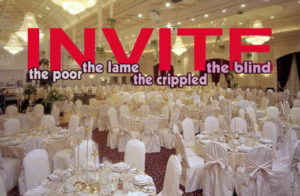 Jesus passes through a village; and after he had taught the people there, a man asks him: “Lord, will those who are saved be few?” Jesus had probably mentioned in his teaching the fact that those who had acted in a good manner during their life would be saved, while others, who had acted in a bad manner, would be condemned. After this man had thought a little about what Jesus had just said, he began to wonder if many would be damned and few would be saved, owing to the fact that, when one thinks about it, one realizes that few people act in a truly good manner during their life on earth, and, alas, many people do evil and offend God, without ever asking him to forgive them all their misdeeds…
Jesus passes through a village; and after he had taught the people there, a man asks him: “Lord, will those who are saved be few?” Jesus had probably mentioned in his teaching the fact that those who had acted in a good manner during their life would be saved, while others, who had acted in a bad manner, would be condemned. After this man had thought a little about what Jesus had just said, he began to wonder if many would be damned and few would be saved, owing to the fact that, when one thinks about it, one realizes that few people act in a truly good manner during their life on earth, and, alas, many people do evil and offend God, without ever asking him to forgive them all their misdeeds… The next part of the discourse of Jesus deals, first of all, with the rejection of the Jewish People, which, for the most part, did not convert to Christianity. This rejection made it possible for the pagan Nations to enter the Church and thus to take for themselves the place that had been left vacant by those who were the first to be called: “And behold, some are last who will be first, and some are first who will be last.” But what is most important in Jesus’ discourse is the firmness and irrevocability of the following saying of the Lord: “When once the householder has risen up and shut the door, you will begin to stand outside and to knock at the door, saying, ‘Lord, open to us.’ He will answer you, ‘I do not know where you come from.’ ” For the gate is definitively closed…
The next part of the discourse of Jesus deals, first of all, with the rejection of the Jewish People, which, for the most part, did not convert to Christianity. This rejection made it possible for the pagan Nations to enter the Church and thus to take for themselves the place that had been left vacant by those who were the first to be called: “And behold, some are last who will be first, and some are first who will be last.” But what is most important in Jesus’ discourse is the firmness and irrevocability of the following saying of the Lord: “When once the householder has risen up and shut the door, you will begin to stand outside and to knock at the door, saying, ‘Lord, open to us.’ He will answer you, ‘I do not know where you come from.’ ” For the gate is definitively closed…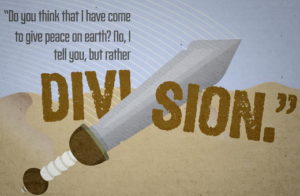 John the Baptist, announcing to the Jewish People the coming of the Savior, said: “I baptize you with water; but he who is mightier than I is coming, the thong of whose sandals I am not worthy to untie; he will baptize you with the Holy Spirit and with fire. His winnowing fork is in his hand, to clear his threshing floor, and to gather the wheat into his granary, but the chaff he will burn with unquenchable fire.”
John the Baptist, announcing to the Jewish People the coming of the Savior, said: “I baptize you with water; but he who is mightier than I is coming, the thong of whose sandals I am not worthy to untie; he will baptize you with the Holy Spirit and with fire. His winnowing fork is in his hand, to clear his threshing floor, and to gather the wheat into his granary, but the chaff he will burn with unquenchable fire.” The murder of Abel by Cain demonstrates that humanity’s very first family dissension originated in jealousy, but it was jealousy of a spiritual order, the most terrible jealousy there is! Indeed, Cain was vexed by the fact that God had regard for Abel’s offering but did not have regard for his. Now, Abel’s offering was already a sign of faith in the promise of the Messiah who was to come! Thus, Christ was truly the cause of the first family dissension…
The murder of Abel by Cain demonstrates that humanity’s very first family dissension originated in jealousy, but it was jealousy of a spiritual order, the most terrible jealousy there is! Indeed, Cain was vexed by the fact that God had regard for Abel’s offering but did not have regard for his. Now, Abel’s offering was already a sign of faith in the promise of the Messiah who was to come! Thus, Christ was truly the cause of the first family dissension…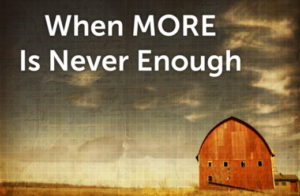 Jesus was teaching the crowd when someone interrupted him, saying, “Teacher, bid my brother divide the inheritance with me.” Here, Jesus was presented with a family dispute, in order that he might resolve it. But Jesus does not want to be bothered with this dispute. Why not? Precisely because it is a family dispute. Now, who is a member of the family of Jesus? Jesus had already told us: “My mother and my brothers are those who hear the word of God and do it.” The family of Jesus is made up of all those whom the Father adopted as sons and daughters, for these people listen to the Word, which is his Son. Jesus has but a single concern throughout his life: his own family, his brothers, his sisters, all those for whom Mary, his own Mother, became their Mother in the Holy Spirit!
Jesus was teaching the crowd when someone interrupted him, saying, “Teacher, bid my brother divide the inheritance with me.” Here, Jesus was presented with a family dispute, in order that he might resolve it. But Jesus does not want to be bothered with this dispute. Why not? Precisely because it is a family dispute. Now, who is a member of the family of Jesus? Jesus had already told us: “My mother and my brothers are those who hear the word of God and do it.” The family of Jesus is made up of all those whom the Father adopted as sons and daughters, for these people listen to the Word, which is his Son. Jesus has but a single concern throughout his life: his own family, his brothers, his sisters, all those for whom Mary, his own Mother, became their Mother in the Holy Spirit!
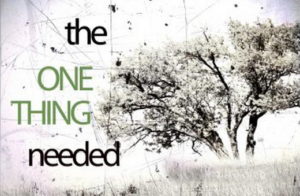 In the prologue of his Gospel on the Word of Life, Saint John tells us: “From his fulness have we all received, grace upon grace. For the law was given through Moses; grace and truth came through Jesus Christ.” This is also what Saint Luke tells us today when he reports the visit of Jesus to a village, this village being none other than Bethany, where Lazarus and his two sisters, Martha and Mary, live. For, when Jesus visits someone, it is to give that person a gift, the most beautiful one there is: the gift of his grace, the source of eternal life!
In the prologue of his Gospel on the Word of Life, Saint John tells us: “From his fulness have we all received, grace upon grace. For the law was given through Moses; grace and truth came through Jesus Christ.” This is also what Saint Luke tells us today when he reports the visit of Jesus to a village, this village being none other than Bethany, where Lazarus and his two sisters, Martha and Mary, live. For, when Jesus visits someone, it is to give that person a gift, the most beautiful one there is: the gift of his grace, the source of eternal life! In today’s first reading, we heard the story of Abraham, who was visited at his home by three men, images and figures of the Most Holy Trinity coming to dwell in the hearts of the just. Now, something important happened which was the fruit of this visit: the announcement of the birth of a son, a year at most after this meeting between Abraham and the three men . This means that he or she who receives a visit from God, and who believes in him, will also receive the promise that he or she will give birth to a child, this being understood in a spiritual sense. In other words, all those who receive the gift of God’s grace can hope, one day, to truly become the sons and daughters of God! The grace of God is never received in vain: it is like a spring from which pours forth water for eternal life!
In today’s first reading, we heard the story of Abraham, who was visited at his home by three men, images and figures of the Most Holy Trinity coming to dwell in the hearts of the just. Now, something important happened which was the fruit of this visit: the announcement of the birth of a son, a year at most after this meeting between Abraham and the three men . This means that he or she who receives a visit from God, and who believes in him, will also receive the promise that he or she will give birth to a child, this being understood in a spiritual sense. In other words, all those who receive the gift of God’s grace can hope, one day, to truly become the sons and daughters of God! The grace of God is never received in vain: it is like a spring from which pours forth water for eternal life!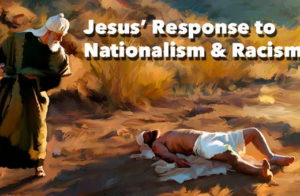 Jesus, during his life on earth, just like his disciples of today and yesterday, was subjected to trial and interrogation concerning his teaching. For Jesus always appeared in the eyes of his contemporaries to be a Teacher, and even the Teacher par excellence. Even in the most complete ignominy, Christ appeared to be he who knows all, for he is God: “Truly this was a son of God,” exclaimed the centurion present at the foot of the Cross of Jesus . Today as yesterday, ever since the day of Pentecost, the Church is also regarded as she who possesses the Truth, which is Christ himself. Thus, it is also to the Church that this question is posed: “What shall I do to inherit eternal life?”
Jesus, during his life on earth, just like his disciples of today and yesterday, was subjected to trial and interrogation concerning his teaching. For Jesus always appeared in the eyes of his contemporaries to be a Teacher, and even the Teacher par excellence. Even in the most complete ignominy, Christ appeared to be he who knows all, for he is God: “Truly this was a son of God,” exclaimed the centurion present at the foot of the Cross of Jesus . Today as yesterday, ever since the day of Pentecost, the Church is also regarded as she who possesses the Truth, which is Christ himself. Thus, it is also to the Church that this question is posed: “What shall I do to inherit eternal life?” Indeed, it is clear that Jesus highly praises the charity of the Good Samaritan: certainly, it is an act which saves this Samaritan from damnation, just as it saves the wounded man from an undoubtedly cruel death. Jesus says so to the lawyer, after telling the story of the parable: “Go and do likewise.” But what, in fact, was the act of the Good Samaritan? Did he obey the Law, with which he was in contradiction, given that he was a “Samaritan”? Did he hear the preaching of Jesus, who is one of the Jews with whom the Samaritan would avoid having any relations? No, neither of these is the case. In fact, the Good Samaritan listened to his conscience! He acted righteously, he followed his good conscience, and it is this that established him on the path of eternal Life! The proof of this is that he said to the landlord: “Take care of him; and whatever more you spend, I will repay you when I come back.”
Indeed, it is clear that Jesus highly praises the charity of the Good Samaritan: certainly, it is an act which saves this Samaritan from damnation, just as it saves the wounded man from an undoubtedly cruel death. Jesus says so to the lawyer, after telling the story of the parable: “Go and do likewise.” But what, in fact, was the act of the Good Samaritan? Did he obey the Law, with which he was in contradiction, given that he was a “Samaritan”? Did he hear the preaching of Jesus, who is one of the Jews with whom the Samaritan would avoid having any relations? No, neither of these is the case. In fact, the Good Samaritan listened to his conscience! He acted righteously, he followed his good conscience, and it is this that established him on the path of eternal Life! The proof of this is that he said to the landlord: “Take care of him; and whatever more you spend, I will repay you when I come back.”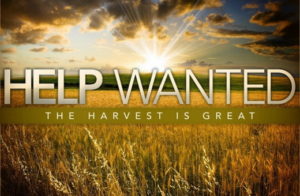 Jesus is the messenger of the Father: he is the beloved Son, the one in whom the Father put all his love! Jesus is he who comes to bring to the world all of God’s love for men! For love wants to propagate itself always further and further: all love – and God is love – is in God from all eternity, but he can and always wants to pour himself out into the creatures whom he calls to participation in his own life! And therefore Jesus, who is God, has no other desire than that of seeing the love of God spread out more and more across the earth, like a devouring fire: «I came to cast fire upon the earth; and would that it were already kindled!»
Jesus is the messenger of the Father: he is the beloved Son, the one in whom the Father put all his love! Jesus is he who comes to bring to the world all of God’s love for men! For love wants to propagate itself always further and further: all love – and God is love – is in God from all eternity, but he can and always wants to pour himself out into the creatures whom he calls to participation in his own life! And therefore Jesus, who is God, has no other desire than that of seeing the love of God spread out more and more across the earth, like a devouring fire: «I came to cast fire upon the earth; and would that it were already kindled!» Saint Paul said it, with these famous words: «If I have prophetic powers, and understand all mysteries and all knowledge, and if I have all faith, so as to remove mountains, but have not love, I am nothing.» Yes! Even though evil spirits would submit to the disciples of Christ, if these disciples don’t have the love of God in them, it would serve no purpose. There is therefore only one thing that is worthwhile and for which one must rejoice: «that your names are written in heaven,» said Jesus. That is to say, we should rejoice for the gifts which the Lord has given us only insofar as we are assured, by God’s grace, that the Lord is waiting us in heaven.
Saint Paul said it, with these famous words: «If I have prophetic powers, and understand all mysteries and all knowledge, and if I have all faith, so as to remove mountains, but have not love, I am nothing.» Yes! Even though evil spirits would submit to the disciples of Christ, if these disciples don’t have the love of God in them, it would serve no purpose. There is therefore only one thing that is worthwhile and for which one must rejoice: «that your names are written in heaven,» said Jesus. That is to say, we should rejoice for the gifts which the Lord has given us only insofar as we are assured, by God’s grace, that the Lord is waiting us in heaven. First Reading 1 John 2:18-21
First Reading 1 John 2:18-21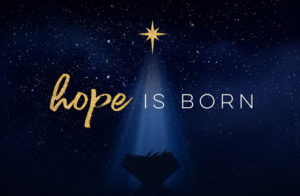 First Reading 1 John 2:12-17
First Reading 1 John 2:12-17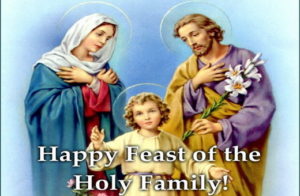 First Reading Ecclesiasticus 3:2-6,12-14
First Reading Ecclesiasticus 3:2-6,12-14 First Reading 1 John 1:5-2:2
First Reading 1 John 1:5-2:2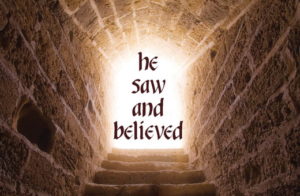 First Reading 1 John 1:1-4
First Reading 1 John 1:1-4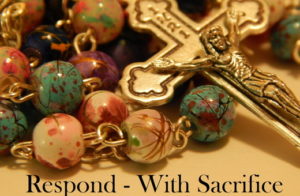 First Reading Acts 6:8-10,7:54-59
First Reading Acts 6:8-10,7:54-59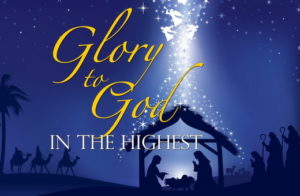 First Reading Isaiah 62:1-5
First Reading Isaiah 62:1-5 First Reading 2 Samuel 7:1-5,8-12,14,16
First Reading 2 Samuel 7:1-5,8-12,14,16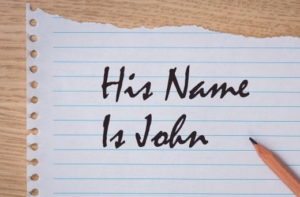 First Reading Malachi 3:1-4,23-24
First Reading Malachi 3:1-4,23-24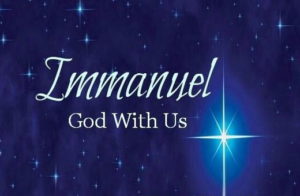 First Reading Isaiah 7:10-14
First Reading Isaiah 7:10-14 First Reading Song of Songs 2:8-14
First Reading Song of Songs 2:8-14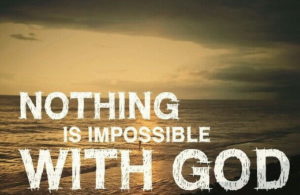 First Reading Isaiah 7:10-14
First Reading Isaiah 7:10-14  First Reading Judges 13:2-7,24-25
First Reading Judges 13:2-7,24-25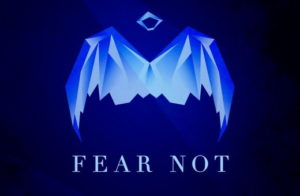 First Reading Jeremiah 23:5-8
First Reading Jeremiah 23:5-8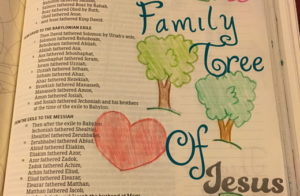 First Reading Genesis 49:2,8-10
First Reading Genesis 49:2,8-10 First Reading Numbers 24:2-7,15-17
First Reading Numbers 24:2-7,15-17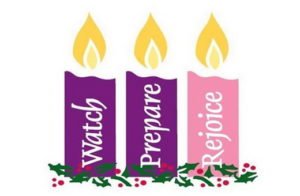 First Reading Isaiah 35:1-6,10
First Reading Isaiah 35:1-6,10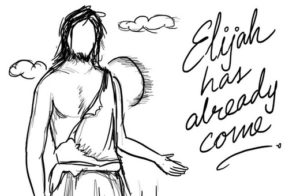 First Reading Ecclesiasticus 48:1-4,9-12
First Reading Ecclesiasticus 48:1-4,9-12  First Reading Isaiah 48:17-19
First Reading Isaiah 48:17-19 First Reading Isaiah 41:13-20
First Reading Isaiah 41:13-20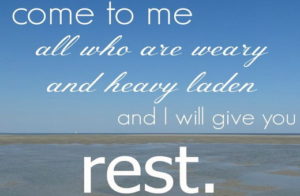 First Reading Isaiah 40:25-31
First Reading Isaiah 40:25-31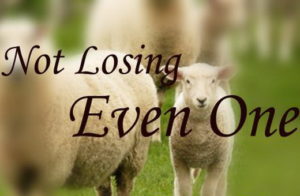 First Reading Isaiah 40:1-11
First Reading Isaiah 40:1-11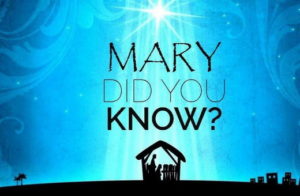 First Reading Genesis 3:9-15,20
First Reading Genesis 3:9-15,20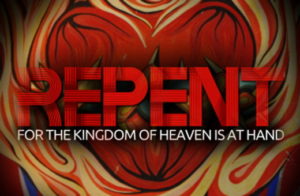 First Reading Isaiah 11:1-10
First Reading Isaiah 11:1-10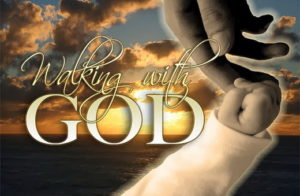 First Reading Isaiah 30:19-21,23-26
First Reading Isaiah 30:19-21,23-26 First Reading Isaiah 29:17-24
First Reading Isaiah 29:17-24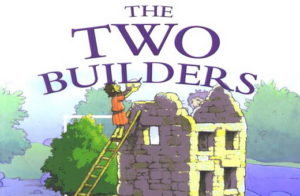 First Reading Isaiah 26:1-6
First Reading Isaiah 26:1-6 First Reading Isaiah 25:6-10
First Reading Isaiah 25:6-10 First Reading Isaiah 11:1-10
First Reading Isaiah 11:1-10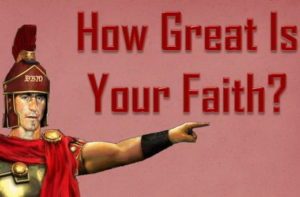 First Reading Isaiah 4:2-6
First Reading Isaiah 4:2-6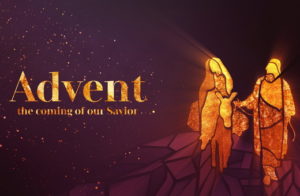 First Reading Isaiah 2:1-5
First Reading Isaiah 2:1-5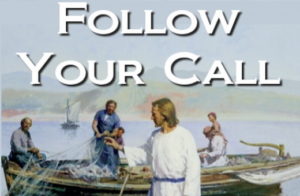 First Reading Romans 10:9-18
First Reading Romans 10:9-18 First Reading Daniel 7:2-14
First Reading Daniel 7:2-14 First Reading Daniel 6:12-28
First Reading Daniel 6:12-28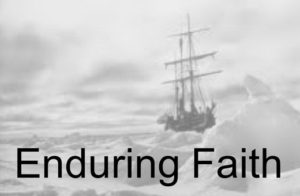 First Reading Daniel 5:1-6,13-14,16-17,23-28
First Reading Daniel 5:1-6,13-14,16-17,23-28 First Reading Daniel 2:31-45
First Reading Daniel 2:31-45 First Reading Daniel 1:1-6,8-20
First Reading Daniel 1:1-6,8-20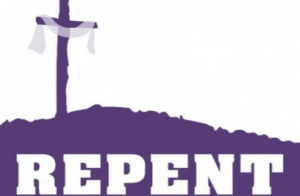 First Reading 2 Samuel 5:1-3
First Reading 2 Samuel 5:1-3 First Reading 1 Maccabees 6:1-13
First Reading 1 Maccabees 6:1-13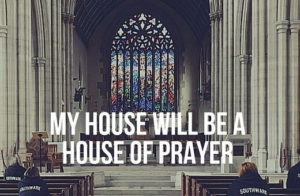 First Reading 1 Maccabees 4:36-37,52-59
First Reading 1 Maccabees 4:36-37,52-59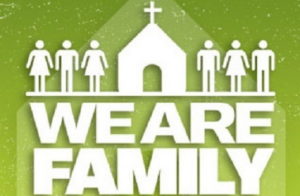 First Reading Zechariah 2:14-17
First Reading Zechariah 2:14-17 First Reading 2 Maccabees 7:1,20-31
First Reading 2 Maccabees 7:1,20-31 First Reading 1 Maccabees 1:10-15,41-43,54-57,62-64
First Reading 1 Maccabees 1:10-15,41-43,54-57,62-64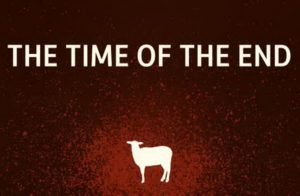 First Reading Malachi 3:19-20
First Reading Malachi 3:19-20 First Reading Wisdom 18:14-16,19:6-9
First Reading Wisdom 18:14-16,19:6-9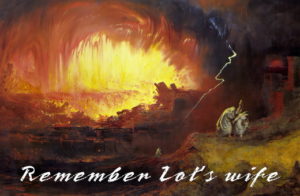 First Reading Wisdom 13:1-9
First Reading Wisdom 13:1-9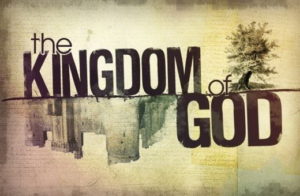 First Reading Wisdom 7:22-8:1
First Reading Wisdom 7:22-8:1 First Reading Wisdom 6:1-11
First Reading Wisdom 6:1-11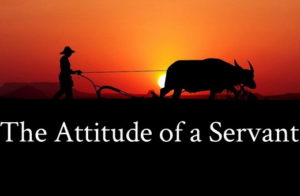 First Reading Wisdom 2:23-3:9
First Reading Wisdom 2:23-3:9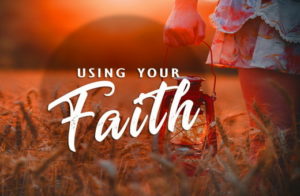 First Reading Wisdom 1:1-7
First Reading Wisdom 1:1-7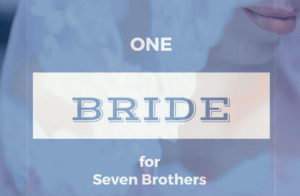 First Reading 2 Maccabees 7:1-2,9-14
First Reading 2 Maccabees 7:1-2,9-14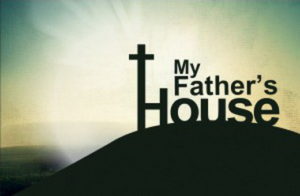 First Reading Ezekiel 47:1-2,8-9,12
First Reading Ezekiel 47:1-2,8-9,12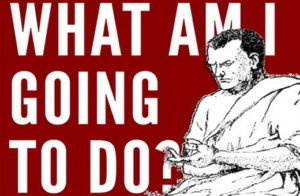 First Reading Romans 15:14-21
First Reading Romans 15:14-21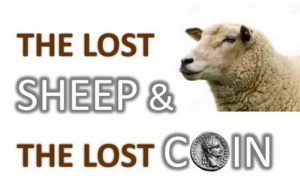
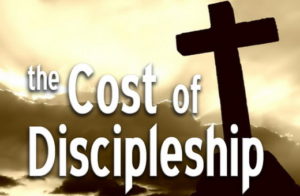 First Reading Romans 13:8-10
First Reading Romans 13:8-10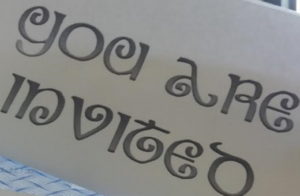 First Reading Romans 12:5-16
First Reading Romans 12:5-16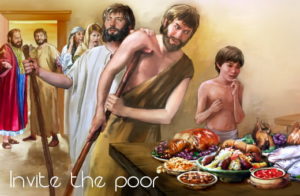 First Reading Romans 11:29-36
First Reading Romans 11:29-36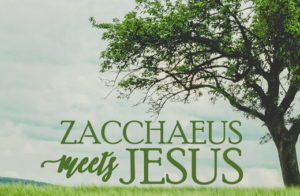 First Reading Wisdom 11:22-12:2
First Reading Wisdom 11:22-12:2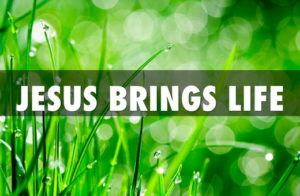 First Reading Wisdom 3:1-9
First Reading Wisdom 3:1-9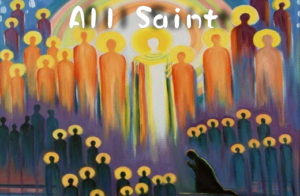 First Reading Book of Revelation 7,2-4.9-14
First Reading Book of Revelation 7,2-4.9-14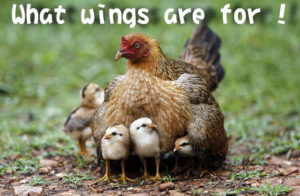 First Reading Romans 8:31-39
First Reading Romans 8:31-39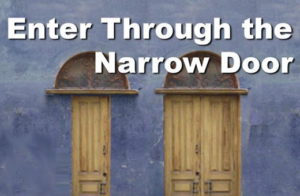 First Reading Letter to the Romans 8,26-30
First Reading Letter to the Romans 8,26-30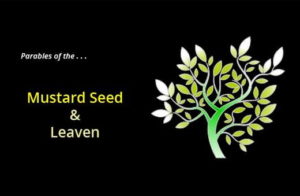 First Reading Romans 8:18-25
First Reading Romans 8:18-25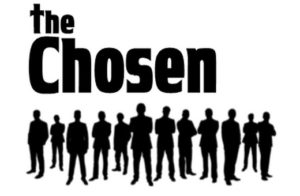 First Reading Ephesians 2:19-22
First Reading Ephesians 2:19-22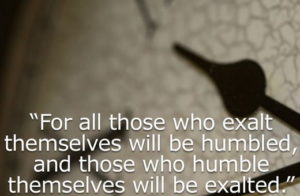 First Reading Ecclesiasticus 35:12-14, 16-19
First Reading Ecclesiasticus 35:12-14, 16-19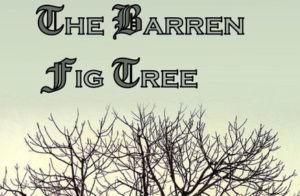 First Reading Romans 8:1-11
First Reading Romans 8:1-11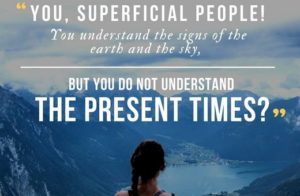 First Reading Romans 7:18-25
First Reading Romans 7:18-25 First Reading Romans 6:19-23
First Reading Romans 6:19-23 First Reading Romans 6:12-18
First Reading Romans 6:12-18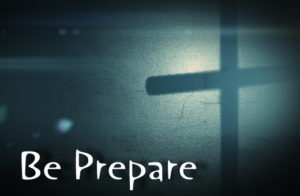 First Reading Romans 5:12,15,17-21
First Reading Romans 5:12,15,17-21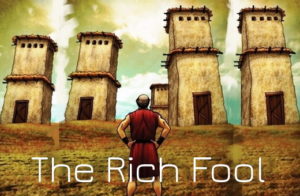 First Reading Romans 4:20-25
First Reading Romans 4:20-25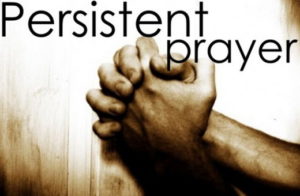
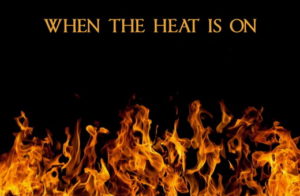 First Reading Romans 4:13,16-18
First Reading Romans 4:13,16-18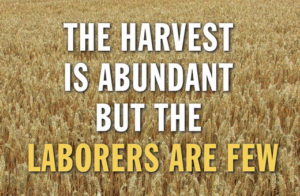 First Reading 2 Timothy 4:10-17
First Reading 2 Timothy 4:10-17 First Reading Romans 3:21-30
First Reading Romans 3:21-30 First Reading Romans 2:1-11
First Reading Romans 2:1-11 First Reading Romans 1:16-25
First Reading Romans 1:16-25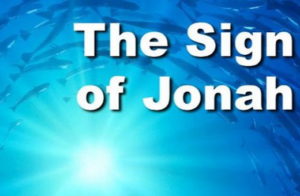 First Reading Romans 1:1-7
First Reading Romans 1:1-7 First Reading 2 Kings 5:14-17
First Reading 2 Kings 5:14-17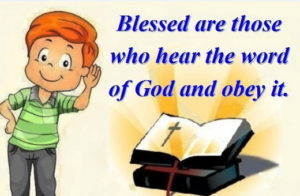 First Reading Joel 4:12-21
First Reading Joel 4:12-21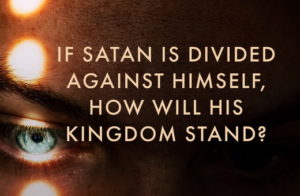 First Reading Joel 1:13-15,2:1-2
First Reading Joel 1:13-15,2:1-2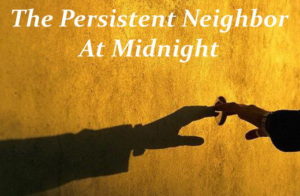 First Reading Malachi 3:13-20
First Reading Malachi 3:13-20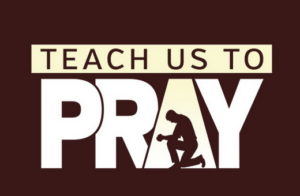 First Reading Jonah 4:1-11
First Reading Jonah 4:1-11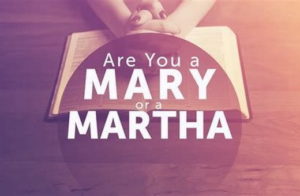 First Reading Jonah 3:1-10
First Reading Jonah 3:1-10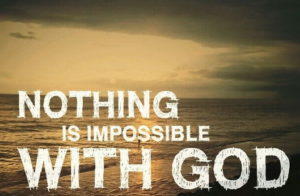 First Reading Acts 1:12-14
First Reading Acts 1:12-14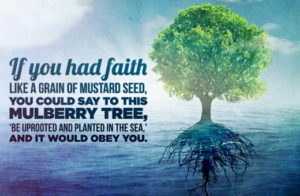 First Reading Habakkuk 1:2-3,2:2-4
First Reading Habakkuk 1:2-3,2:2-4 First Reading Baruch 4:5-12,27-29
First Reading Baruch 4:5-12,27-29 First Reading Baruch 1:15-22
First Reading Baruch 1:15-22 First Reading Nehemiah 8:1-12
First Reading Nehemiah 8:1-12 First Reading Exodus 23:20-23
First Reading Exodus 23:20-23 First Reading Isaiah 66:10-14
First Reading Isaiah 66:10-14 First Reading Zechariah 8:1-8
First Reading Zechariah 8:1-8 First Reading Amos 6:1,4-7
First Reading Amos 6:1,4-7 First Reading Haggai 1:15-2:9
First Reading Haggai 1:15-2:9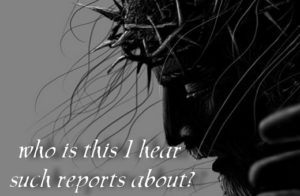 First Reading Haggai 1:1-8
First Reading Haggai 1:1-8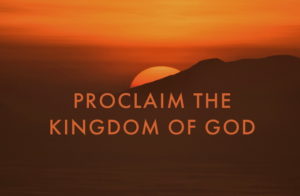 First Redaing Ezra 9:5-9
First Redaing Ezra 9:5-9 First Reading Ezra 6:7-8,12,14-20
First Reading Ezra 6:7-8,12,14-20 First Reading Ezra 1:1-6
First Reading Ezra 1:1-6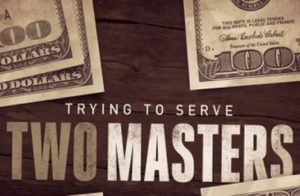 First Reading Amos 8:4-7
First Reading Amos 8:4-7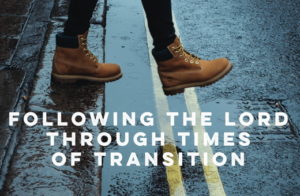 First Reading Ephesians 4:1-7,11-13
First Reading Ephesians 4:1-7,11-13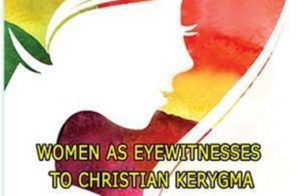 First Reading 1 Timothy 6:2-12
First Reading 1 Timothy 6:2-12 First Reading 1 Timothy 4:12-16
First Reading 1 Timothy 4:12-16 First Reading 1 Timothy 3:14-16
First Reading 1 Timothy 3:14-16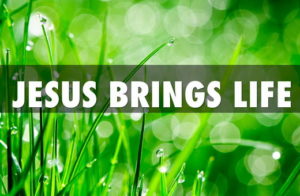 First Reading 1 Timothy 3:1-13
First Reading 1 Timothy 3:1-13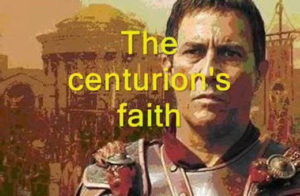 First Reading 1 Timothy 2:1-8
First Reading 1 Timothy 2:1-8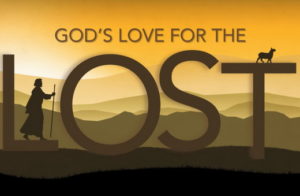 First Reading Exodus 32:7-11,13-14
First Reading Exodus 32:7-11,13-14 First Reading Numbers 21:4-9
First Reading Numbers 21:4-9 First Reading 1 Timothy 1:1-2,12-14
First Reading 1 Timothy 1:1-2,12-14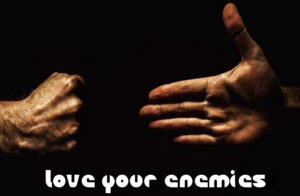 First Reading Colossians 3:12-17
First Reading Colossians 3:12-17 First Reading Colossians 3:1-11
First Reading Colossians 3:1-11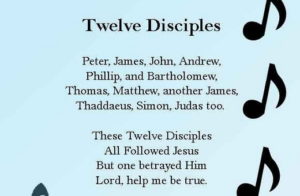 First Reading Colossians 2:6-15
First Reading Colossians 2:6-15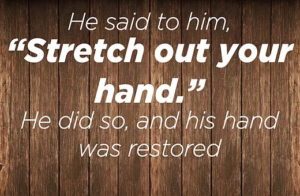 First Reading Colossians 1:24-2:3
First Reading Colossians 1:24-2:3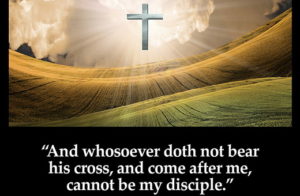 First Reading Wisdom 9:13-18
First Reading Wisdom 9:13-18 First Reading Colossians 1:21-23
First Reading Colossians 1:21-23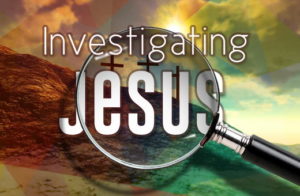 First Reading Colossians 1:15-20
First Reading Colossians 1:15-20 First Reading Colossians 1:9-14
First Reading Colossians 1:9-14 First Reading Colossians 1:1-8
First Reading Colossians 1:1-8 First Reading 1 Thessalonians 5:1-6,9-11
First Reading 1 Thessalonians 5:1-6,9-11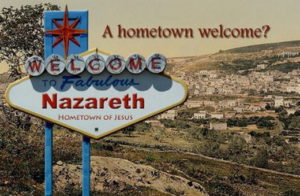 First Reading 1 Thes 4:13-18
First Reading 1 Thes 4:13-18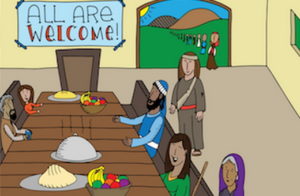 First Reading Book of Sirach 3,17-18.20.28-29.
First Reading Book of Sirach 3,17-18.20.28-29. You know yourselves, my brothers, that our visit to you has not proved ineffectual.
You know yourselves, my brothers, that our visit to you has not proved ineffectual. First Reading Isaiah 9:1-7
First Reading Isaiah 9:1-7 First Reading Judges 9:6-15
First Reading Judges 9:6-15 First Reading Judges 6:11-24
First Reading Judges 6:11-24 First Reading Jeremiah 38:4-6,8-10
First Reading Jeremiah 38:4-6,8-10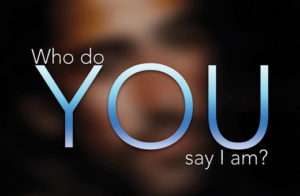 First Reading Book of Numbers 20,1-13
First Reading Book of Numbers 20,1-13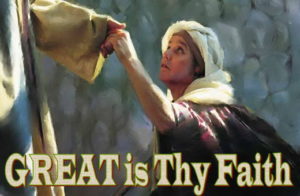 First Reading Numbers 13:1-2,25-14:1,26-29,34-35
First Reading Numbers 13:1-2,25-14:1,26-29,34-35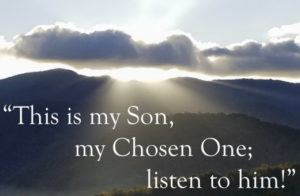 First Reading Daniel 7:9-10,13-14
First Reading Daniel 7:9-10,13-14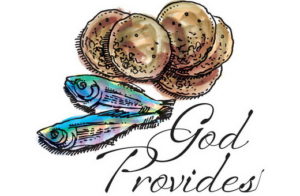 First Reading Numbers 11:4-15
First Reading Numbers 11:4-15 First Reading Ecclesiastes 1:2,2:21-23
First Reading Ecclesiastes 1:2,2:21-23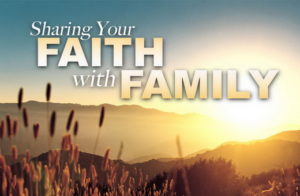 First Reading Leviticus 23:1,4-11,15-16,27,34-37
First Reading Leviticus 23:1,4-11,15-16,27,34-37 First Reading Exodus 40:16-21,34-38
First Reading Exodus 40:16-21,34-38 This is a rather banal event: Jesus sends two or three disciples before him in order to prepare the place of his rest for the night. But this event, though banal, has a very important significance: it has an eschatological sense, that is to say a sense which concerns the realities of the world to come. “He set his face to go to Jerusalem.” Jesus orients himself directly toward the holy city, Jerusalem, the terrestrial city that is the sign and the symbol of the celestial city, the city of the Great King of the Universe! Saint John, in his Revelation, saw the city of Heaven and it appeared to him as the city of Jerusalem: “I saw the holy city, new Jerusalem, coming down out of heaven from God…”
This is a rather banal event: Jesus sends two or three disciples before him in order to prepare the place of his rest for the night. But this event, though banal, has a very important significance: it has an eschatological sense, that is to say a sense which concerns the realities of the world to come. “He set his face to go to Jerusalem.” Jesus orients himself directly toward the holy city, Jerusalem, the terrestrial city that is the sign and the symbol of the celestial city, the city of the Great King of the Universe! Saint John, in his Revelation, saw the city of Heaven and it appeared to him as the city of Jerusalem: “I saw the holy city, new Jerusalem, coming down out of heaven from God…” ” Another said, «I will follow you, Lord; but let me first say farewell to those at my home.» Jesus said to him, «No one who puts his hand to the plow and looks back is fit for the kingdom of God.» “
” Another said, «I will follow you, Lord; but let me first say farewell to those at my home.» Jesus said to him, «No one who puts his hand to the plow and looks back is fit for the kingdom of God.» “ God takes care of us through his Providence! In order that the Sacrament of the Body and Blood of his Son might be worthily honored throughout the world, God did not hesitate to employ the services of a simple nun, whose life was filled with trials of all kinds, but also, above all, with graces without number! God makes use of poor and humble means in order to make his glory shine forth and to manifest to the men of this world his immense Love! The Providence of God does not do anything ostentatiously: it provides for a simple, almost trivial, means, but one that will serve man in accomplishing great things for the Glory of God! And thus it is with the Sacrament of the Eucharist: on every day made by God, there is a priest to repeat, among you, at the altar of the Lord, the words with which Jesus makes himself present under the sensible signs of the bread and wine, the bread and wine that Divine Providence itself places in our hands…
God takes care of us through his Providence! In order that the Sacrament of the Body and Blood of his Son might be worthily honored throughout the world, God did not hesitate to employ the services of a simple nun, whose life was filled with trials of all kinds, but also, above all, with graces without number! God makes use of poor and humble means in order to make his glory shine forth and to manifest to the men of this world his immense Love! The Providence of God does not do anything ostentatiously: it provides for a simple, almost trivial, means, but one that will serve man in accomplishing great things for the Glory of God! And thus it is with the Sacrament of the Eucharist: on every day made by God, there is a priest to repeat, among you, at the altar of the Lord, the words with which Jesus makes himself present under the sensible signs of the bread and wine, the bread and wine that Divine Providence itself places in our hands… Full of compassion and benevolence for these admirable people, who had faith and hope in the eternal Life that he had come to proclaim to them, Jesus lifts up his eyes to heaven and blesses the loaves and the two fish. As he looks towards the Father, Jesus already sees all those who will one day be at his side in the Kingdom, and he prays for them. It is in this spirit that the Lord multiplies the loaves and the fish by blessing them… Everyone ate until they were full, and what remained of the food filled twelve baskets. One basket for each apostle! It is as if Jesus had said to his disciples: “Do not be afraid! I am watching over you! Providence is with you! Faithfully carry out your mission – which is my mission – and I will provide for all your needs!”
Full of compassion and benevolence for these admirable people, who had faith and hope in the eternal Life that he had come to proclaim to them, Jesus lifts up his eyes to heaven and blesses the loaves and the two fish. As he looks towards the Father, Jesus already sees all those who will one day be at his side in the Kingdom, and he prays for them. It is in this spirit that the Lord multiplies the loaves and the fish by blessing them… Everyone ate until they were full, and what remained of the food filled twelve baskets. One basket for each apostle! It is as if Jesus had said to his disciples: “Do not be afraid! I am watching over you! Providence is with you! Faithfully carry out your mission – which is my mission – and I will provide for all your needs!”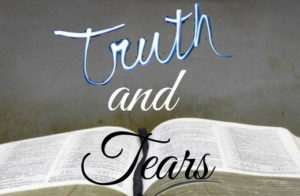 Each time we make the sign of the cross, as we did at the beginning of this celebration, we say: “In the name of the Father, and of the Son, and of the Holy Spirit.” But do we truly understand what we are saying? I do not believe so… The reason for this is that the Father, the Son, and the Holy Spirit we invoke constitute what we must call a Mystery: the Mystery of the Most Holy Trinity. Now, a mystery is precisely something that one does not understand. This does not mean that we are unable to express anything at all concerning this reality; on the contrary, we are able, thanks to what Jesus told us, to describe this mystery a little and to grasp it through comparisons and images.
Each time we make the sign of the cross, as we did at the beginning of this celebration, we say: “In the name of the Father, and of the Son, and of the Holy Spirit.” But do we truly understand what we are saying? I do not believe so… The reason for this is that the Father, the Son, and the Holy Spirit we invoke constitute what we must call a Mystery: the Mystery of the Most Holy Trinity. Now, a mystery is precisely something that one does not understand. This does not mean that we are unable to express anything at all concerning this reality; on the contrary, we are able, thanks to what Jesus told us, to describe this mystery a little and to grasp it through comparisons and images. We, too, when we give thanks (render grace) to the Lord when it enters into us under the species of the bread and wine, we prove to him all of our love, and the grace of God becomes, for us, “charity”! All of us are then but one Body of Christ in the Love of God! As Saint Paul says in today’s epistle: “Hope does not disappoint us, because God’s love has been poured into our hearts through the Holy Spirit which has been given to us.”
We, too, when we give thanks (render grace) to the Lord when it enters into us under the species of the bread and wine, we prove to him all of our love, and the grace of God becomes, for us, “charity”! All of us are then but one Body of Christ in the Love of God! As Saint Paul says in today’s epistle: “Hope does not disappoint us, because God’s love has been poured into our hearts through the Holy Spirit which has been given to us.” How is this possible? Is it true? Do we not see, on the contrary, that evil reigns everywhere around us? Is the world not filled with violence, lies, and impurity? How then can the world be at the service of God, who is Spirit? Precisely for the simple reason that God is Spirit. That which is spirit cannot be seen. Thus we do not see, with the eyes of the body, in what manner the world belongs to God, who is Spirit. What captures our attention is the evil that we do see.
How is this possible? Is it true? Do we not see, on the contrary, that evil reigns everywhere around us? Is the world not filled with violence, lies, and impurity? How then can the world be at the service of God, who is Spirit? Precisely for the simple reason that God is Spirit. That which is spirit cannot be seen. Thus we do not see, with the eyes of the body, in what manner the world belongs to God, who is Spirit. What captures our attention is the evil that we do see. In the Eucharistic celebration, the words of the Lord on the evening of Easter take on a universal meaning, a dimension which extends to all the People of God. For, while only bishops and priests can forgive sins in the name of the Lord, on the other hand, any Christian can take part in the Eucharistic Sacrifice and offer himself with Christ for the Church and for the Redemption of the world, according to the instruction of Saint Peter, who said: “Come to him, to that living stone, rejected by men but in God’s sight chosen and precious; and like living stones be yourselves built into a spiritual house, to be a holy priesthood, to offer spiritual sacrifices acceptable to God through Jesus Christ.”
In the Eucharistic celebration, the words of the Lord on the evening of Easter take on a universal meaning, a dimension which extends to all the People of God. For, while only bishops and priests can forgive sins in the name of the Lord, on the other hand, any Christian can take part in the Eucharistic Sacrifice and offer himself with Christ for the Church and for the Redemption of the world, according to the instruction of Saint Peter, who said: “Come to him, to that living stone, rejected by men but in God’s sight chosen and precious; and like living stones be yourselves built into a spiritual house, to be a holy priesthood, to offer spiritual sacrifices acceptable to God through Jesus Christ.” The words of this Sunday’s Gospel were spoken by Jesus just before his first departure to Heaven: the “departure” that he accomplished on the wood of the Cross. Jesus teaches his disciples, he prepares them for the coming separation; above all, he prepares them for a better future! For his “departure” will be beneficial to all! But, in order for this future to be better, there is a condition: we must love Jesus! If we love Jesus, then the Father will enter into us, and the Son as well, and also the Holy Spirit! “If a man loves me, he will keep my word, and my Father will love him, and we will come to him and make our home with him.”
The words of this Sunday’s Gospel were spoken by Jesus just before his first departure to Heaven: the “departure” that he accomplished on the wood of the Cross. Jesus teaches his disciples, he prepares them for the coming separation; above all, he prepares them for a better future! For his “departure” will be beneficial to all! But, in order for this future to be better, there is a condition: we must love Jesus! If we love Jesus, then the Father will enter into us, and the Son as well, and also the Holy Spirit! “If a man loves me, he will keep my word, and my Father will love him, and we will come to him and make our home with him.”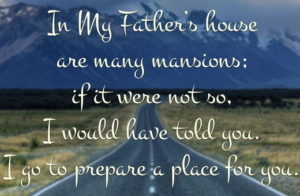 Ever since the day of Pentecost, the Holy Spirit is here, on earth, to guide the Church of God in order that the message of Christ might be faithfully preserved and transmitted, from generation to generation, by means of both the Holy Scriptures and the Eucharist. Founded on the faith of the Apostles, the Christians of every age, like you and me, are called by the Holy Spirit to put their faith in the words of the Lord. Then, the Father will come, and Jesus with him: all will be but one in God and the Peace of the Lord will reign everywhere! “Peace I leave with you; my peace I give to you; not as the world gives do I give to you. Let not your hearts be troubled, neither let them be afraid.”
Ever since the day of Pentecost, the Holy Spirit is here, on earth, to guide the Church of God in order that the message of Christ might be faithfully preserved and transmitted, from generation to generation, by means of both the Holy Scriptures and the Eucharist. Founded on the faith of the Apostles, the Christians of every age, like you and me, are called by the Holy Spirit to put their faith in the words of the Lord. Then, the Father will come, and Jesus with him: all will be but one in God and the Peace of the Lord will reign everywhere! “Peace I leave with you; my peace I give to you; not as the world gives do I give to you. Let not your hearts be troubled, neither let them be afraid.”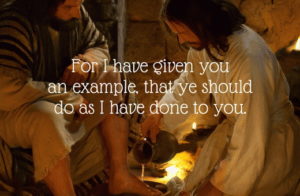 The “new life” that the Scripture speaks of is also referred to as “conversion”, a turning round. It means a radical change of vision, of our priorities in life. It means new attitudes, new values, new standards of relating with God and with people and indeed with our whole living environment of which we are a synergistic part.
The “new life” that the Scripture speaks of is also referred to as “conversion”, a turning round. It means a radical change of vision, of our priorities in life. It means new attitudes, new values, new standards of relating with God and with people and indeed with our whole living environment of which we are a synergistic part. The word “love”, of course, can lead to misunderstandings. The word is used by us mainly in contexts which imply deep affection, emotional attraction and a good feeling when the beloved is around or even just thought of. That is not quite the meaning of the word in this context.
The word “love”, of course, can lead to misunderstandings. The word is used by us mainly in contexts which imply deep affection, emotional attraction and a good feeling when the beloved is around or even just thought of. That is not quite the meaning of the word in this context.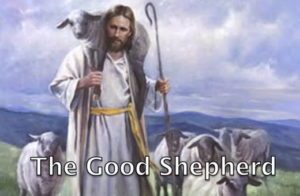 Today, the sheep of the Lord are the sheep of Peter, who continues to watch over his flock, acting in the person of his Successor: the Pope. Today, the risen Jesus is in Heaven, in the glory and splendor of the Father, he and the Father sending the Spirit of Love and Peace to the entire world. The Holy Spirit teaches all who truly allow themselves to be taught, he reminds them of all that Jesus said to his disciples while he lived on the earth: “The Holy Spirit, whom the Father will send in my name, he will teach you all things, and bring to your remembrance all that I have said to you.” But, in the benevolence of the Father, who loves Simon Peter as a son, the Holy Spirit teaches the sheep of Christ through the intermediary of Peter himself: the sheep of Christ, who are now the sheep of Peter, hear the voice of the Lord by listening to the breath of the Spirit, in obedience to the words of Peter and his Successors!
Today, the sheep of the Lord are the sheep of Peter, who continues to watch over his flock, acting in the person of his Successor: the Pope. Today, the risen Jesus is in Heaven, in the glory and splendor of the Father, he and the Father sending the Spirit of Love and Peace to the entire world. The Holy Spirit teaches all who truly allow themselves to be taught, he reminds them of all that Jesus said to his disciples while he lived on the earth: “The Holy Spirit, whom the Father will send in my name, he will teach you all things, and bring to your remembrance all that I have said to you.” But, in the benevolence of the Father, who loves Simon Peter as a son, the Holy Spirit teaches the sheep of Christ through the intermediary of Peter himself: the sheep of Christ, who are now the sheep of Peter, hear the voice of the Lord by listening to the breath of the Spirit, in obedience to the words of Peter and his Successors! Saint Augustine spoke in the following way to those in his care, as he held the Eucharist in his hands: “Be what you see, and receive what you are.” In saying this, he associated the concept of the Body of Christ with the concept of the Mystical Body of Christ: the Church. “Be what you see”: become similar to Christ whom you see under the appearances of bread and wine. “Receive what you are”: receive the Eucharist in order to be – even more so – the Body of Christ, receive what you already are to a certain extent: the Church. Saint Augustine, and Saint Peter before him, could also have said: “No one shall snatch them out of my hand.” For both of them held in their hand the Body of Christ, but also his Mystical Body: the Church! Both of them could have said in all truth, in the past as in the present: “No one shall snatch them out of my hand.” For, in holding the Eucharist, they had in their hand the sheep of the Lord!
Saint Augustine spoke in the following way to those in his care, as he held the Eucharist in his hands: “Be what you see, and receive what you are.” In saying this, he associated the concept of the Body of Christ with the concept of the Mystical Body of Christ: the Church. “Be what you see”: become similar to Christ whom you see under the appearances of bread and wine. “Receive what you are”: receive the Eucharist in order to be – even more so – the Body of Christ, receive what you already are to a certain extent: the Church. Saint Augustine, and Saint Peter before him, could also have said: “No one shall snatch them out of my hand.” For both of them held in their hand the Body of Christ, but also his Mystical Body: the Church! Both of them could have said in all truth, in the past as in the present: “No one shall snatch them out of my hand.” For, in holding the Eucharist, they had in their hand the sheep of the Lord!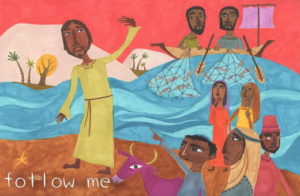 Christ’s passage through death and resurrection manifests itself in that, despite the great quantity of fish taken, the net did not break after the resurrection , whereas it did before the resurrection. At the time of the first miraculous catch of fish, Jesus had said to Simon Peter: “Do not be afraid; henceforth you will be catching men.” The Lord thus compared men and women, of all races and nations, to the fish that Peter had just caught. This comparison was such that, from the earliest years of Christianity, the symbol of the fish was the secret means of signifying one«s membership in Christ. From age to age, this comparison would endure, even in the name of the ring used by the Pope to seal his decrees and ordinances: the Ring of the Fisherman.
Christ’s passage through death and resurrection manifests itself in that, despite the great quantity of fish taken, the net did not break after the resurrection , whereas it did before the resurrection. At the time of the first miraculous catch of fish, Jesus had said to Simon Peter: “Do not be afraid; henceforth you will be catching men.” The Lord thus compared men and women, of all races and nations, to the fish that Peter had just caught. This comparison was such that, from the earliest years of Christianity, the symbol of the fish was the secret means of signifying one«s membership in Christ. From age to age, this comparison would endure, even in the name of the ring used by the Pope to seal his decrees and ordinances: the Ring of the Fisherman. Jesus announces to Peter that he will die crucified, like him. But what does this matter? Jesus is with him! The risen Jesus lives and remains in him, through his Holy Spirit! Already, throughout his life, Peter carries his cross and dies each day upon that wood of torment, but it is in the joy that comes from the Spirit that he fulfills the task entrusted to him by the Lord: that of being a fisher of men! It is true that it is a heavy burden, but what a noble and glorious one!
Jesus announces to Peter that he will die crucified, like him. But what does this matter? Jesus is with him! The risen Jesus lives and remains in him, through his Holy Spirit! Already, throughout his life, Peter carries his cross and dies each day upon that wood of torment, but it is in the joy that comes from the Spirit that he fulfills the task entrusted to him by the Lord: that of being a fisher of men! It is true that it is a heavy burden, but what a noble and glorious one!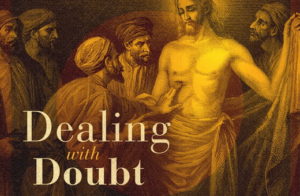 Jesus twice said to his disciples: “Peace be with you!” The Lord did not come to earth to punish us: it is only at the end of time that he will return to earth to judge all men, rewarding the just, and punishing the guilty. But for now, we are in the time of mercy! Now is the time of peace and reconciliation! Or, at least, it is for all those who truly desire the peace and mercy of God. For if Jesus came to reconcile all in him, he nonetheless allows us to freely receive or refuse the grace of his forgiveness. This grace is always offered to us. Moreover, the Lord gave the Apostles, on the evening of Easter, the gift of the Holy Spirit in order that, from age to age, from generation to generation, the forgiveness of God might always be available in the Church. This forgiveness is what we call the sacrament of penance, or reconciliation.
Jesus twice said to his disciples: “Peace be with you!” The Lord did not come to earth to punish us: it is only at the end of time that he will return to earth to judge all men, rewarding the just, and punishing the guilty. But for now, we are in the time of mercy! Now is the time of peace and reconciliation! Or, at least, it is for all those who truly desire the peace and mercy of God. For if Jesus came to reconcile all in him, he nonetheless allows us to freely receive or refuse the grace of his forgiveness. This grace is always offered to us. Moreover, the Lord gave the Apostles, on the evening of Easter, the gift of the Holy Spirit in order that, from age to age, from generation to generation, the forgiveness of God might always be available in the Church. This forgiveness is what we call the sacrament of penance, or reconciliation.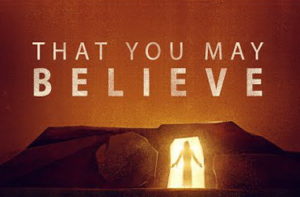 How then can Thomas be the sign of the mercy of God if we are not similar to him? Quite simply, because we can see the Lord Jesus without seeing him. A paradox? Yes, but the Gospel is full of paradoxes. What enables us to see the Lord? The answer is simple: our baptism! Let us recall what took place during the baptism of Saul, he who persecuted the Christians, but who would become the Great Apostle to the Nations: Saint Paul. “Ananias departed and entered the house. And laying his hands on him he said, «Brother Saul, the Lord Jesus who appeared to you on the road by which you came, has sent me that you may regain your sight and be filled with the Holy Spirit.» And immediately something like scales fell from his eyes and he regained his sight. Then he rose and was baptized.”
How then can Thomas be the sign of the mercy of God if we are not similar to him? Quite simply, because we can see the Lord Jesus without seeing him. A paradox? Yes, but the Gospel is full of paradoxes. What enables us to see the Lord? The answer is simple: our baptism! Let us recall what took place during the baptism of Saul, he who persecuted the Christians, but who would become the Great Apostle to the Nations: Saint Paul. “Ananias departed and entered the house. And laying his hands on him he said, «Brother Saul, the Lord Jesus who appeared to you on the road by which you came, has sent me that you may regain your sight and be filled with the Holy Spirit.» And immediately something like scales fell from his eyes and he regained his sight. Then he rose and was baptized.” The message of Easter is first communicated by the empty tomb. The death of Jesus was an observable and observed fact by both friends and enemies. No one saw the resurrection. It did not involve resuscitation of a corpse.
The message of Easter is first communicated by the empty tomb. The death of Jesus was an observable and observed fact by both friends and enemies. No one saw the resurrection. It did not involve resuscitation of a corpse.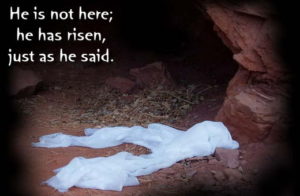 How are we to share in all of this? In the reading from 1 Corinthians today we are reminded how at the Jewish Passover the Jews were expected to throw out all the old, leavened bread and to prepare new, unleavened bread. The fermentation caused by the leaven, the yeast, was seen as a kind of corruption. As Paul says, “You must know how even a small amount of yeast is enough to leaven [i.e. corrupt] all the dough”. (Remember the parable Jesus told about a small amount of leaven penetrating the whole batch of dough?)
How are we to share in all of this? In the reading from 1 Corinthians today we are reminded how at the Jewish Passover the Jews were expected to throw out all the old, leavened bread and to prepare new, unleavened bread. The fermentation caused by the leaven, the yeast, was seen as a kind of corruption. As Paul says, “You must know how even a small amount of yeast is enough to leaven [i.e. corrupt] all the dough”. (Remember the parable Jesus told about a small amount of leaven penetrating the whole batch of dough?)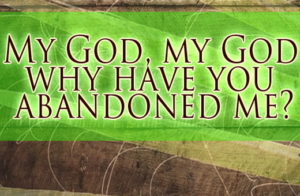 In a way the real key to Holy Week is given in today’s Second Reading, which seems to be a hymn, incorporated by Paul in his letter to the Christians at Philippi, in northern Greece. It expresses the “mind,” the thinking of Jesus, a “mind” which Paul urges us to have also if we want to identify fully with Jesus as disciples. “Let the same mind be in you that was in Christ Jesus.” The key word in the passage is “emptied.” This kenosis (kenwsis), or emptying, is at the heart of Jesus’ experience during his Passion.
In a way the real key to Holy Week is given in today’s Second Reading, which seems to be a hymn, incorporated by Paul in his letter to the Christians at Philippi, in northern Greece. It expresses the “mind,” the thinking of Jesus, a “mind” which Paul urges us to have also if we want to identify fully with Jesus as disciples. “Let the same mind be in you that was in Christ Jesus.” The key word in the passage is “emptied.” This kenosis (kenwsis), or emptying, is at the heart of Jesus’ experience during his Passion.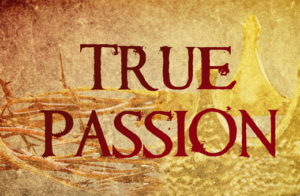 Jesus, for his part, does not strike back, he does not scold, he does not accuse or blame. He begs his Father to forgive those who “do not know what they are doing.”Jesus seems to be the victim but all through he is, in fact, the master. He is master of the situation because he is master of himself.
Jesus, for his part, does not strike back, he does not scold, he does not accuse or blame. He begs his Father to forgive those who “do not know what they are doing.”Jesus seems to be the victim but all through he is, in fact, the master. He is master of the situation because he is master of himself. Who is without sin? Who has never failed in his duty as a son or daughter towards his spiritual father, the Pope? Nobody is perfect. Even the pope is not perfect: he is only the image, the half-visible resemblance of the one Father who is perfect and who reigns in Heaven! But this does not take away from the fact that we are all his sons or daughters if we proclaim our faith in God the Trinity. For Jesus himself declared that the Spirit of the Father was in Simon Peter, the first pope. “Flesh and blood has not revealed this to you, but my father who is in heaven.” Now, in the person of the pope, it is Simon Peter’s own authority that is exercised and which we are called to recognize…
Who is without sin? Who has never failed in his duty as a son or daughter towards his spiritual father, the Pope? Nobody is perfect. Even the pope is not perfect: he is only the image, the half-visible resemblance of the one Father who is perfect and who reigns in Heaven! But this does not take away from the fact that we are all his sons or daughters if we proclaim our faith in God the Trinity. For Jesus himself declared that the Spirit of the Father was in Simon Peter, the first pope. “Flesh and blood has not revealed this to you, but my father who is in heaven.” Now, in the person of the pope, it is Simon Peter’s own authority that is exercised and which we are called to recognize… he time of grace has finally arrived: “When he came to himself…” The grace of conversion makes this young man understand what it is to be a son, and consequently, what it is to be a father; for there is no son without a father, and there is no father without a son… “I am no longer worthy to be called your son…” This is something that we too can say, with the grace of God: we not longer merit to be called your sons… For the grace of God is an interior light which enlightens us and shows us, on the one hand, the ugliness of our sin, and on the other hand, the beauty of He who is the supreme Good: God, Beauty par excellence!
he time of grace has finally arrived: “When he came to himself…” The grace of conversion makes this young man understand what it is to be a son, and consequently, what it is to be a father; for there is no son without a father, and there is no father without a son… “I am no longer worthy to be called your son…” This is something that we too can say, with the grace of God: we not longer merit to be called your sons… For the grace of God is an interior light which enlightens us and shows us, on the one hand, the ugliness of our sin, and on the other hand, the beauty of He who is the supreme Good: God, Beauty par excellence! Does God kill people?
Does God kill people? Does God love some people more?
Does God love some people more? There are objects and people in our lives that we have become so accustomed to that we take them for granted. For example, we are so used to electricity that we assume that everything in our homes will always have the necessary power. And then a hurricane hits. And we lose power for hours. The refrigerator doesn’t work. You can’t cook anything unless you have an outdoor grill, not really useful in a rain storm. The air conditioner isn’t working, and its getting hot in the house. Worst still, there’s no TV, God forbid! The same thing with relationships. We are so accustomed to our loved ones always being at home that we enter into a bit of a shock when a child goes to college. Or far worse, someone we care for dies. Then we really feel rotten for taking their presence for granted.
There are objects and people in our lives that we have become so accustomed to that we take them for granted. For example, we are so used to electricity that we assume that everything in our homes will always have the necessary power. And then a hurricane hits. And we lose power for hours. The refrigerator doesn’t work. You can’t cook anything unless you have an outdoor grill, not really useful in a rain storm. The air conditioner isn’t working, and its getting hot in the house. Worst still, there’s no TV, God forbid! The same thing with relationships. We are so accustomed to our loved ones always being at home that we enter into a bit of a shock when a child goes to college. Or far worse, someone we care for dies. Then we really feel rotten for taking their presence for granted. 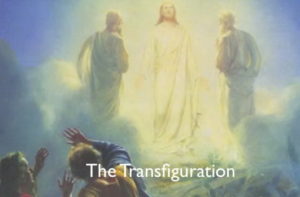 We have to nourish our spiritual lives, our relationship to God. We have to feed our spiritual life the food of union with God. The spiritual must conquer in our lives. If we become spiritual, then we can fulfill the call to evangelize the world.
We have to nourish our spiritual lives, our relationship to God. We have to feed our spiritual life the food of union with God. The spiritual must conquer in our lives. If we become spiritual, then we can fulfill the call to evangelize the world.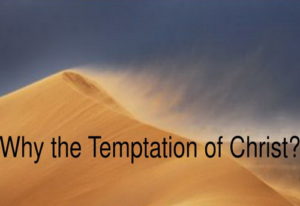 The world, the Kingdom that Jesus came to build, has a different set of values altogether. And it is those values we will be considering all during Lent. Many Christians are chasing the idols of wealth, status and power just as fanatically as their non-Christian brothers and sisters. But, in fact, these are non-Christian, even anti-Christian, ambitions. They are not the way of Jesus, they are not the way of the Kingdom, nor indeed are they the way to a fully human, fully satisfying life for anyone.
The world, the Kingdom that Jesus came to build, has a different set of values altogether. And it is those values we will be considering all during Lent. Many Christians are chasing the idols of wealth, status and power just as fanatically as their non-Christian brothers and sisters. But, in fact, these are non-Christian, even anti-Christian, ambitions. They are not the way of Jesus, they are not the way of the Kingdom, nor indeed are they the way to a fully human, fully satisfying life for anyone.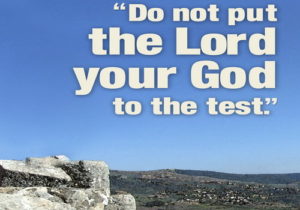 For us, too, the battle against evil never stops. The selfishness, the greed, the anger and hostility, the jealousy and resentment, above all the desire to have rather than to share, to control rather than to serve will continually dog us. We and our children are caught up in the competitive rat race without even knowing it. Our only success in life can be what we achieve in building not palaces or empires but in building a society that is more loving and just, based on the message of Jesus, a message of truth and integrity, of love and compassion, of freedom and peace.
For us, too, the battle against evil never stops. The selfishness, the greed, the anger and hostility, the jealousy and resentment, above all the desire to have rather than to share, to control rather than to serve will continually dog us. We and our children are caught up in the competitive rat race without even knowing it. Our only success in life can be what we achieve in building not palaces or empires but in building a society that is more loving and just, based on the message of Jesus, a message of truth and integrity, of love and compassion, of freedom and peace.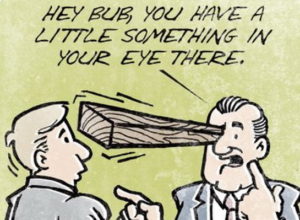 We have never seen Jesus, but we nonetheless believe in him, for, between his time and ours, there has been generation after generation of Christians, men and women, who, one after another, have faithfully transmitted to others, to everyone they met on the road of life, the message of Christ, who was sent to earth by the Father, in the Spirit. For nearly two thousand years, the same words of the Lord Jesus have been announced throughout the world by those who were chosen by Christ and who make up that great Mystery that is the Church!
We have never seen Jesus, but we nonetheless believe in him, for, between his time and ours, there has been generation after generation of Christians, men and women, who, one after another, have faithfully transmitted to others, to everyone they met on the road of life, the message of Christ, who was sent to earth by the Father, in the Spirit. For nearly two thousand years, the same words of the Lord Jesus have been announced throughout the world by those who were chosen by Christ and who make up that great Mystery that is the Church!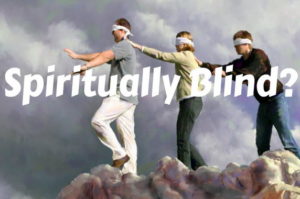 Saint Paul reminds us of this by saying: “Do you not know that all of us who have been baptized into Christ Jesus were baptized into his death?” For, today, in the time of the New Covenant, it is no longer the blood of animals that is poured out upon the people, but, mysteriously, through the sacraments of faith, the elect of God are plunged, immersed, into the Blood of Christ, that is, into that element which is at once a sign of life and a sign of death, a sign of life when it is in the body, and a sign of death when it escapes from that same body.
Saint Paul reminds us of this by saying: “Do you not know that all of us who have been baptized into Christ Jesus were baptized into his death?” For, today, in the time of the New Covenant, it is no longer the blood of animals that is poured out upon the people, but, mysteriously, through the sacraments of faith, the elect of God are plunged, immersed, into the Blood of Christ, that is, into that element which is at once a sign of life and a sign of death, a sign of life when it is in the body, and a sign of death when it escapes from that same body. Today’s Gospel follows what we read last Sunday. Jesus was speaking to us of true happiness: today he develops this topic, which is very dear to his heart, for he came into the world to teach us about nothing other than the happiness of Heaven, and to show us the way to achieve it by inaugurating on earth, already, the bliss of the elect of God.
Today’s Gospel follows what we read last Sunday. Jesus was speaking to us of true happiness: today he develops this topic, which is very dear to his heart, for he came into the world to teach us about nothing other than the happiness of Heaven, and to show us the way to achieve it by inaugurating on earth, already, the bliss of the elect of God. People have always mocked Christians for not behaving like everyone else… For here is something one hears quite often: “One must really be foolish to live according to precepts of the Gospel: ‘Love your enemies, do good, and lend without hoping to receive…” And, what is worse, it is not only non-Christians who speak this way: there are also Christians who thus criticize the Gospel. Would such people not be wolves who have entered the sheepfold?
People have always mocked Christians for not behaving like everyone else… For here is something one hears quite often: “One must really be foolish to live according to precepts of the Gospel: ‘Love your enemies, do good, and lend without hoping to receive…” And, what is worse, it is not only non-Christians who speak this way: there are also Christians who thus criticize the Gospel. Would such people not be wolves who have entered the sheepfold?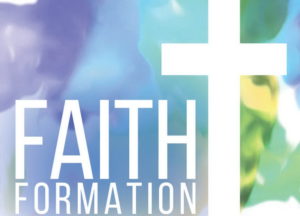 Jesus praises the poor in spirit, those who hunger for justice, those who weep, because they feel alone, without the wealth that would console them in this vale of tears, without the food that would make up for the injustice they have suffered… Assuredly, Jesus does not declare to be happy he to whom all good things flow – riches as well as friends and flatterers – but rather he who, through love of God and men, bears all these insults with faith, constancy and generosity. “Rejoice in that day, and leap for joy, for behold, your reward is great in heaven!”
Jesus praises the poor in spirit, those who hunger for justice, those who weep, because they feel alone, without the wealth that would console them in this vale of tears, without the food that would make up for the injustice they have suffered… Assuredly, Jesus does not declare to be happy he to whom all good things flow – riches as well as friends and flatterers – but rather he who, through love of God and men, bears all these insults with faith, constancy and generosity. “Rejoice in that day, and leap for joy, for behold, your reward is great in heaven!”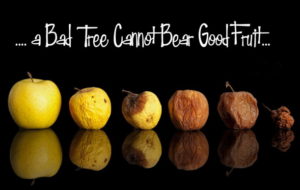 Jesus continuous to teach his disciples and, in his discourse, the word “happy” is now replaced by the word “woe”, “woe”, “woe”… There is no other word to describe the terrible reality of someone who does not follow the Way shown to us by the Master… What bitterness in these few words! Is the soul of the Lord not already filled with the repugnance he will feel on the eve of his Passion, in the garden of Gethsemane? Do we not already hear the cry of distress that Jesus shouted out on the cross of Calvary: “My God, my God, why hast thou forsaken me?”
Jesus continuous to teach his disciples and, in his discourse, the word “happy” is now replaced by the word “woe”, “woe”, “woe”… There is no other word to describe the terrible reality of someone who does not follow the Way shown to us by the Master… What bitterness in these few words! Is the soul of the Lord not already filled with the repugnance he will feel on the eve of his Passion, in the garden of Gethsemane? Do we not already hear the cry of distress that Jesus shouted out on the cross of Calvary: “My God, my God, why hast thou forsaken me?” Jesus is in Galilee, on the shore of the lake of Gennesaret, that is, the Sea of Galilee. He teaches the people who are gathered there and who are captivated by the discourse they heard. “The people pressed upon Jesus to hear the word of God.” For what Jesus says inflames spirits and hearts, it fills the mind with many thoughts and with ever more numerous unanswered questions… Jesus proclaims eternal Life, that Life which belongs to the heavenly Father; the Holy Spirit, as his mission, is to bring that Life to germination and make it bear fruit in the souls of the men and women of all time!
Jesus is in Galilee, on the shore of the lake of Gennesaret, that is, the Sea of Galilee. He teaches the people who are gathered there and who are captivated by the discourse they heard. “The people pressed upon Jesus to hear the word of God.” For what Jesus says inflames spirits and hearts, it fills the mind with many thoughts and with ever more numerous unanswered questions… Jesus proclaims eternal Life, that Life which belongs to the heavenly Father; the Holy Spirit, as his mission, is to bring that Life to germination and make it bear fruit in the souls of the men and women of all time!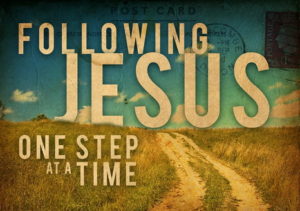 To Simon, Jesus’ command is truly surprising. Not only does Jesus not address spiritual words to Simon, but he gives him a command which goes against all he knows as a fisherman: Simon knows perfectly well that if he did not catch anything during the entire night, he will not catch anything now that the sun is up either… Truly, this is the summit of obedience! Jesus asks Simon to give up absolutely everything in order to do his will, the will of the Master of all things. But Simon received from Jesus a special grace and favor, that of his new name, which for him is already a power from on high… And Simon will cast the nets on the Lord’s command: “Master, we toiled all night and took nothing! But at your word I will let down the nets.”
To Simon, Jesus’ command is truly surprising. Not only does Jesus not address spiritual words to Simon, but he gives him a command which goes against all he knows as a fisherman: Simon knows perfectly well that if he did not catch anything during the entire night, he will not catch anything now that the sun is up either… Truly, this is the summit of obedience! Jesus asks Simon to give up absolutely everything in order to do his will, the will of the Master of all things. But Simon received from Jesus a special grace and favor, that of his new name, which for him is already a power from on high… And Simon will cast the nets on the Lord’s command: “Master, we toiled all night and took nothing! But at your word I will let down the nets.” The Gospel for this fourth Sunday of the year follows what we were reading last Sunday: Jesus is in Nazareth, his hometown, and he preaches in the synagogue. What the Lord is saying truly strikes his listeners, so much so that they are very surprised at the discourse given by someone they had once known and who, now, appears to them as another man, a man unlike any other, a man who surpasses all others, for, in fact, he is at once God and man: “They wondered at the gracious words which proceeded out of his mouth.”
The Gospel for this fourth Sunday of the year follows what we were reading last Sunday: Jesus is in Nazareth, his hometown, and he preaches in the synagogue. What the Lord is saying truly strikes his listeners, so much so that they are very surprised at the discourse given by someone they had once known and who, now, appears to them as another man, a man unlike any other, a man who surpasses all others, for, in fact, he is at once God and man: “They wondered at the gracious words which proceeded out of his mouth.” The Son of God came to earth and took on flesh in the womb of the Virgin Mary in order to save all men. But who has the greatest need for salvation? Is it not those who do not yet have any link to God, the True, the Only? The Jewish People had been elected by God to be his People: already, the fact of being Jewish established in them a certain link to God, a link of the corporeal order. Furthermore, he who was not Jewish lacked this link. But when the Son of God came to earth, he brought with him grace, a created divine good, which was capable of establishing between God and any man or woman a link of the spiritual order. “For the law was given through Moses; grace and truth came through Jesus Christ.”
The Son of God came to earth and took on flesh in the womb of the Virgin Mary in order to save all men. But who has the greatest need for salvation? Is it not those who do not yet have any link to God, the True, the Only? The Jewish People had been elected by God to be his People: already, the fact of being Jewish established in them a certain link to God, a link of the corporeal order. Furthermore, he who was not Jewish lacked this link. But when the Son of God came to earth, he brought with him grace, a created divine good, which was capable of establishing between God and any man or woman a link of the spiritual order. “For the law was given through Moses; grace and truth came through Jesus Christ.”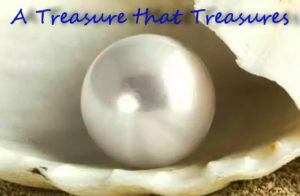 First Reading Exodus 34:29-35
First Reading Exodus 34:29-35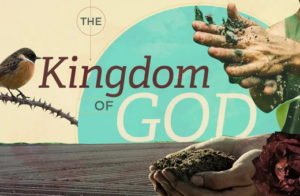 First Reading Exodus 33:7-11,34:5-9,28
First Reading Exodus 33:7-11,34:5-9,28 First Reading Exodus 32:15-24,30-34
First Reading Exodus 32:15-24,30-34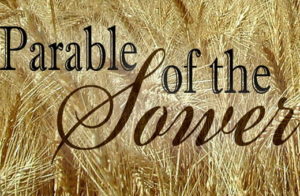 First Reading Exodus 16:1-5,9-15
First Reading Exodus 16:1-5,9-15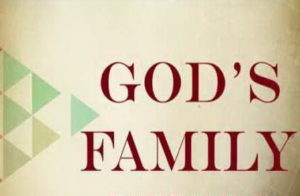 First Reading Exodus 14:21-15:1
First Reading Exodus 14:21-15:1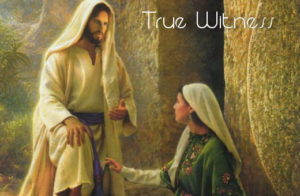
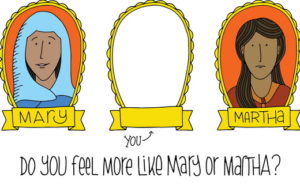 First Reading Genesis 18:1-10
First Reading Genesis 18:1-10 First Reading Exodus 12:37-42
First Reading Exodus 12:37-42  First Reading Exodus 11:10-12:14
First Reading Exodus 11:10-12:14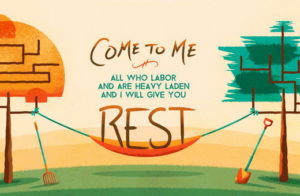 First Reading Exodus 3:13-20
First Reading Exodus 3:13-20 First Reading Exodus 3:1-6,9-12
First Reading Exodus 3:1-6,9-12 First Reading Exodus 2:1-15
First Reading Exodus 2:1-15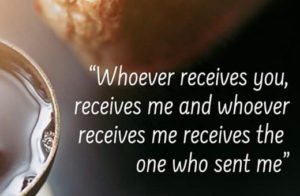 First Reading Exodus 1:8-14,22
First Reading Exodus 1:8-14,22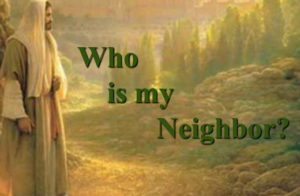 First Reading Deuteronomy 30:10-14
First Reading Deuteronomy 30:10-14 First Reading Genesis 49:29-33,50:15-26
First Reading Genesis 49:29-33,50:15-26 First Reading Genesis 46:1-7,28-30
First Reading Genesis 46:1-7,28-30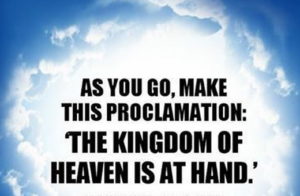 First Reading Genesis 44:18-21,23-29,45:1-5
First Reading Genesis 44:18-21,23-29,45:1-5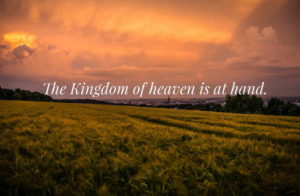 First Reading Genesis 41:55-57,42:5-7,17-24
First Reading Genesis 41:55-57,42:5-7,17-24 First Reading Genesis 32:23-33
First Reading Genesis 32:23-33 First Reading Genesis 28:10-22
First Reading Genesis 28:10-22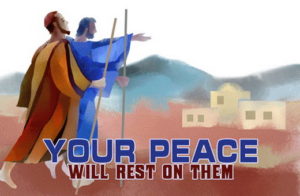 First Reading Isaiah 66:10-14
First Reading Isaiah 66:10-14 First Reading Genesis 27:1-5,15-29
First Reading Genesis 27:1-5,15-29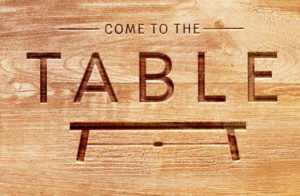 First Reading Genesis 23:1-4,19,24:1-8,62-67
First Reading Genesis 23:1-4,19,24:1-8,62-67 First Reading Genesis 22:1-19
First Reading Genesis 22:1-19 First Reading Ephesians 2:19-22
First Reading Ephesians 2:19-22 First Reading Genesis 19:15-29
First Reading Genesis 19:15-29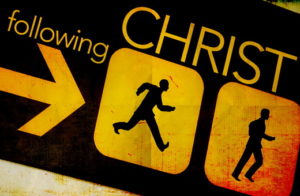 First Reading Genesis 18:16-33
First Reading Genesis 18:16-33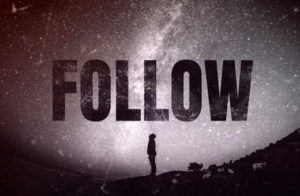 First Reading 1 Kings 19:16,19-21
First Reading 1 Kings 19:16,19-21 First Reading Acts 3:1-10
First Reading Acts 3:1-10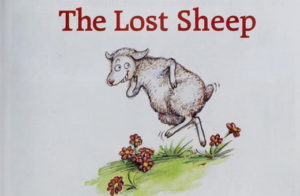 First Reading Ezekiel 34:11-16
First Reading Ezekiel 34:11-16 First Reading Genesis 16:1-12,15-16
First Reading Genesis 16:1-12,15-16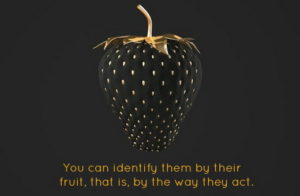 First Ready Genesis 15:1-12,17-18
First Ready Genesis 15:1-12,17-18 First Reading Genesis 13:2,5-18
First Reading Genesis 13:2,5-18 First Reading Jeremiah 1:4-10
First Reading Jeremiah 1:4-10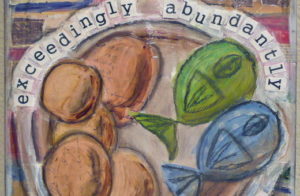 First Reading Genesis 14:18-20
First Reading Genesis 14:18-20 First Reading 2 Corinthians 12:1-10
First Reading 2 Corinthians 12:1-10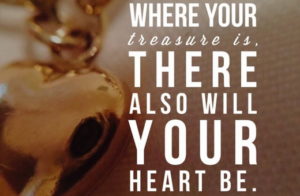 First Reading 2 Corinthians 11:18,21-30
First Reading 2 Corinthians 11:18,21-30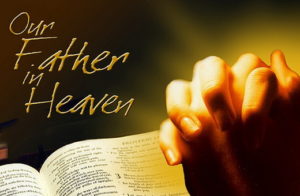 First Reading 2 Corinthians 11:1-11
First Reading 2 Corinthians 11:1-11 First Reading 2 Corinthians 9:6-11
First Reading 2 Corinthians 9:6-11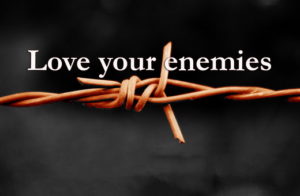 First Reading 2 Corinthians 8:1-9
First Reading 2 Corinthians 8:1-9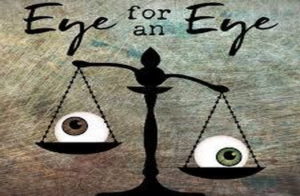 First Reading 2 Corinthians 6:1-10
First Reading 2 Corinthians 6:1-10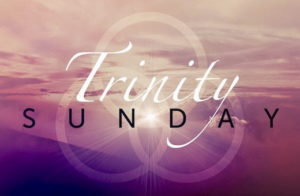 First Reading Proverbs 8:22-31
First Reading Proverbs 8:22-31 First Reading 2 Corinthians 5:14-21
First Reading 2 Corinthians 5:14-21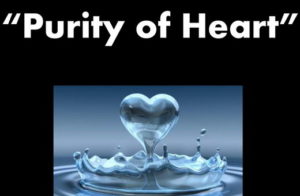
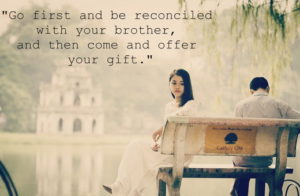 First Reading 2 Corinthians 3:15-4:1,3-6
First Reading 2 Corinthians 3:15-4:1,3-6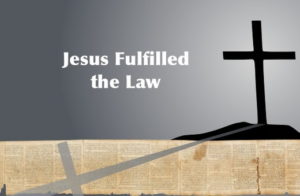 First Reading 2 Corinthians 3:4-11
First Reading 2 Corinthians 3:4-11 First Reading Acts 11:21-26,13:1-3
First Reading Acts 11:21-26,13:1-3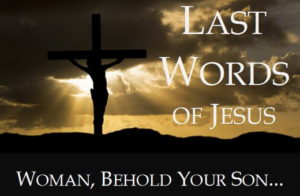 First Reading Genesis 3:9-15,20
First Reading Genesis 3:9-15,20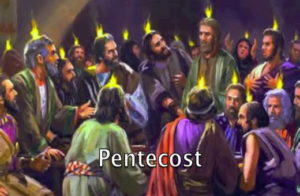 First Reading Genesis 11:1-9
First Reading Genesis 11:1-9 First Reading Acts 28:16-20,30-31
First Reading Acts 28:16-20,30-31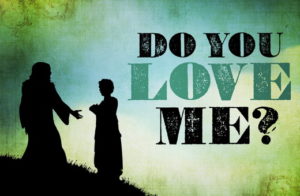 First Reading Acts 25:13-21
First Reading Acts 25:13-21 First Reading Acts 22:30,23:6-11
First Reading Acts 22:30,23:6-11 First Reading Acts 20:28-38
First Reading Acts 20:28-38 First Reading Acts 20:17-27
First Reading Acts 20:17-27 First Reading Acts 19:1-8
First Reading Acts 19:1-8 First Reading Acts 18:23-28
First Reading Acts 18:23-28 First Reading Zephaniah 3:14-18
First Reading Zephaniah 3:14-18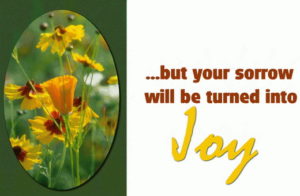 First Reading Acts 18:1-8
First Reading Acts 18:1-8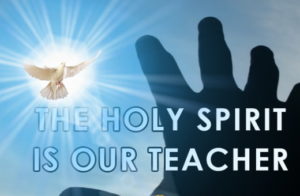 First Reading Acts 17:15,22-18:1
First Reading Acts 17:15,22-18:1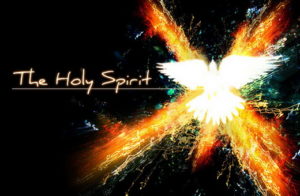 First Reading Acts 16:22-34
First Reading Acts 16:22-34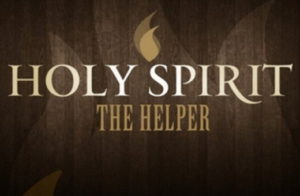 First Reading Acts 16:11-15
First Reading Acts 16:11-15 First Reading Acts 15:1-2,22-29
First Reading Acts 15:1-2,22-29 First Reading Acts 16:1-10
First Reading Acts 16:1-10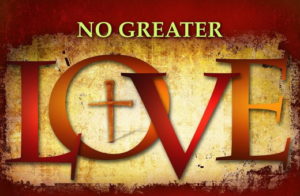 First Reading Act 15:21-31
First Reading Act 15:21-31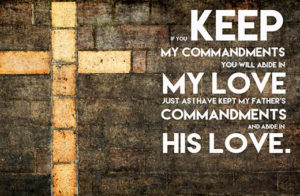 First Reading Acts 15:7-21
First Reading Acts 15:7-21 First Reading Acts 15:1-6
First Reading Acts 15:1-6 First Reading Acts 14:19-28
First Reading Acts 14:19-28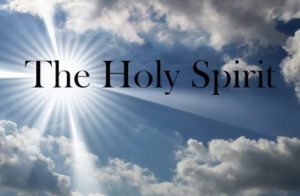 First Reading Acts 14:5-18
First Reading Acts 14:5-18 First Reading Acts 14:21-27
First Reading Acts 14:21-27 First Reading Acts 13:44-52
First Reading Acts 13:44-52 First Reading Acts 13:26-33
First Reading Acts 13:26-33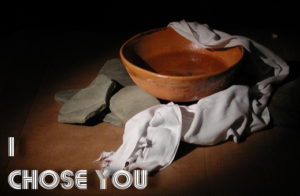 First Reading Acts 13:13-25
First Reading Acts 13:13-25 First Reading Acts 1:15-17,20-26
First Reading Acts 1:15-17,20-26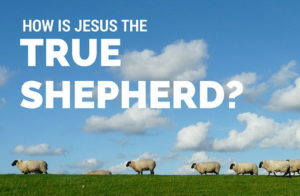 First Reading Acts 11:1-18
First Reading Acts 11:1-18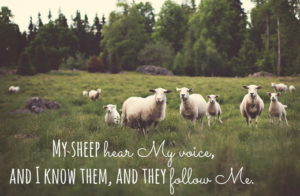 First Reading Acts 13:14,43-52
First Reading Acts 13:14,43-52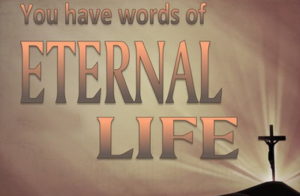 First Reading Acts 9:31-42
First Reading Acts 9:31-42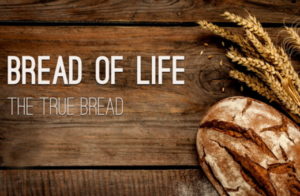 First Reading Acts 9:1-20
First Reading Acts 9:1-20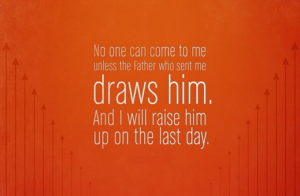 First Reading Acts 8:26-40
First Reading Acts 8:26-40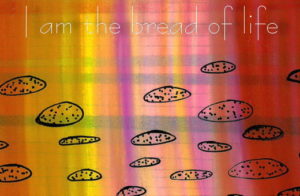 First Reading Acts 8:1-8
First Reading Acts 8:1-8 First Reading Acts 7:51-8:1
First Reading Acts 7:51-8:1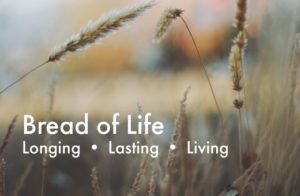 First Reading Acts 6:8-15
First Reading Acts 6:8-15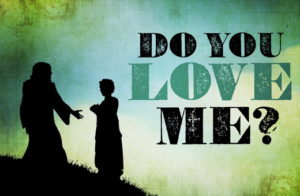 First Reading Acts 5:27-32,40-41
First Reading Acts 5:27-32,40-41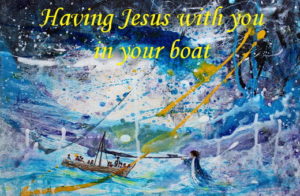 First Reading Acts 6:1-7
First Reading Acts 6:1-7 First Reading 1 Corinthians 15:1-8
First Reading 1 Corinthians 15:1-8 First Reading Acts 5:27-33
First Reading Acts 5:27-33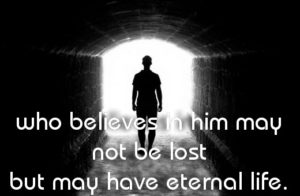 First Reading Acts 5:17-26
First Reading Acts 5:17-26 First Reading Acts 4:32-37
First Reading Acts 4:32-37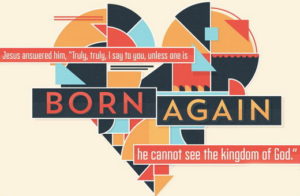 First Reading Acts 4:23-31
First Reading Acts 4:23-31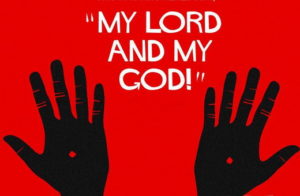 First Reading Acts 5:12-16
First Reading Acts 5:12-16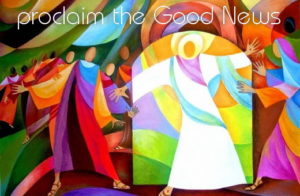 First Reading Acts 4:13-21
First Reading Acts 4:13-21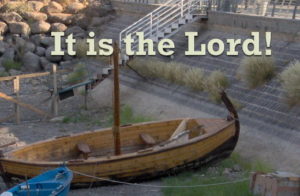 First Reading Acts 4:1-12
First Reading Acts 4:1-12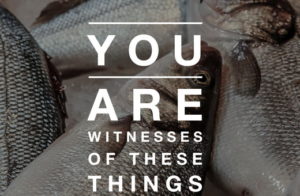 First Reading Acts 3:11-26
First Reading Acts 3:11-26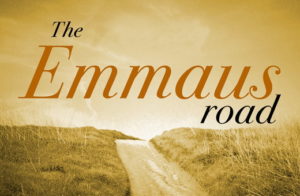 First Reading Acts 3:1-10
First Reading Acts 3:1-10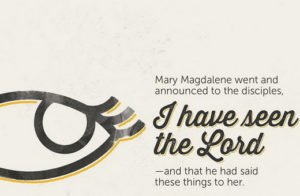 First Reading Acts 2:36-41
First Reading Acts 2:36-41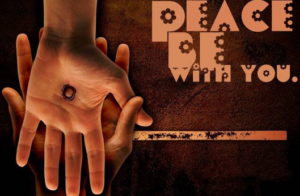 First Reading Acts 2:14,22-33
First Reading Acts 2:14,22-33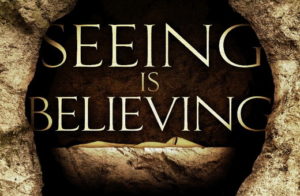 First Reading Acts 10:34,37-43
First Reading Acts 10:34,37-43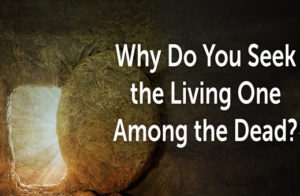 First Reading Genesis 1:26-31
First Reading Genesis 1:26-31 First Reading Isaiah 52:13-53:12
First Reading Isaiah 52:13-53:12 First Reading Exodus 12:1-8,11-14
First Reading Exodus 12:1-8,11-14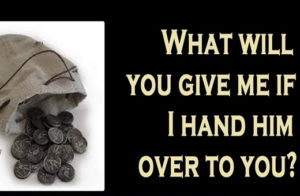 First Reading Isaiah 50:4-9
First Reading Isaiah 50:4-9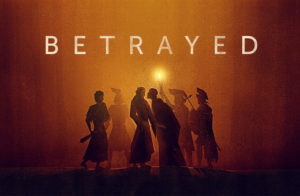 First Reading Isaiah 49:1-6
First Reading Isaiah 49:1-6 First Reading Isaiah 42:1-7
First Reading Isaiah 42:1-7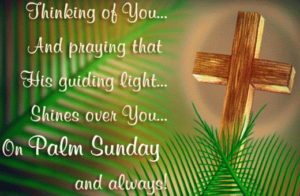 First Reading Isaiah 50:4-7
First Reading Isaiah 50:4-7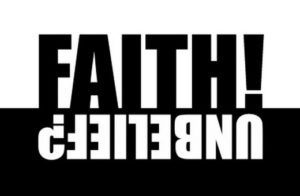 First Reading Ezekiel 37:21-28
First Reading Ezekiel 37:21-28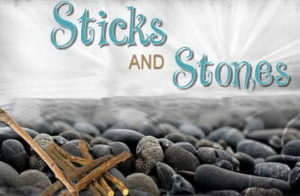 First Reading Jeremiah 20:10-13
First Reading Jeremiah 20:10-13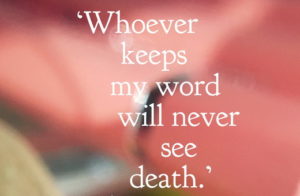 First Reading Genesis 17:3-9
First Reading Genesis 17:3-9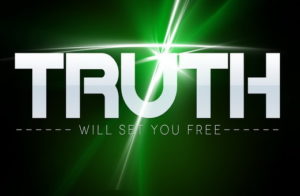 First Reading Daniel 3:14-20,24-25,28
First Reading Daniel 3:14-20,24-25,28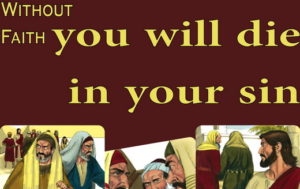 First Reading Numbers 21:4-9
First Reading Numbers 21:4-9 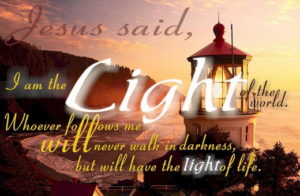 First Reading Daniel 13:41-62
First Reading Daniel 13:41-62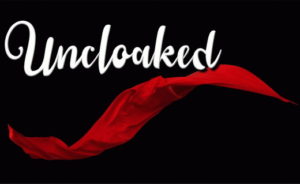 First Reading Wisdom 2:1,12-22
First Reading Wisdom 2:1,12-22 First Reading Exodus 32:7-14
First Reading Exodus 32:7-14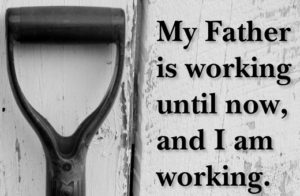 First Reading Isaiah 49:8-15
First Reading Isaiah 49:8-15 First Reading Ezekiel 47:1-9,12
First Reading Ezekiel 47:1-9,12 First Reading Isaiah 65:17-21
First Reading Isaiah 65:17-21